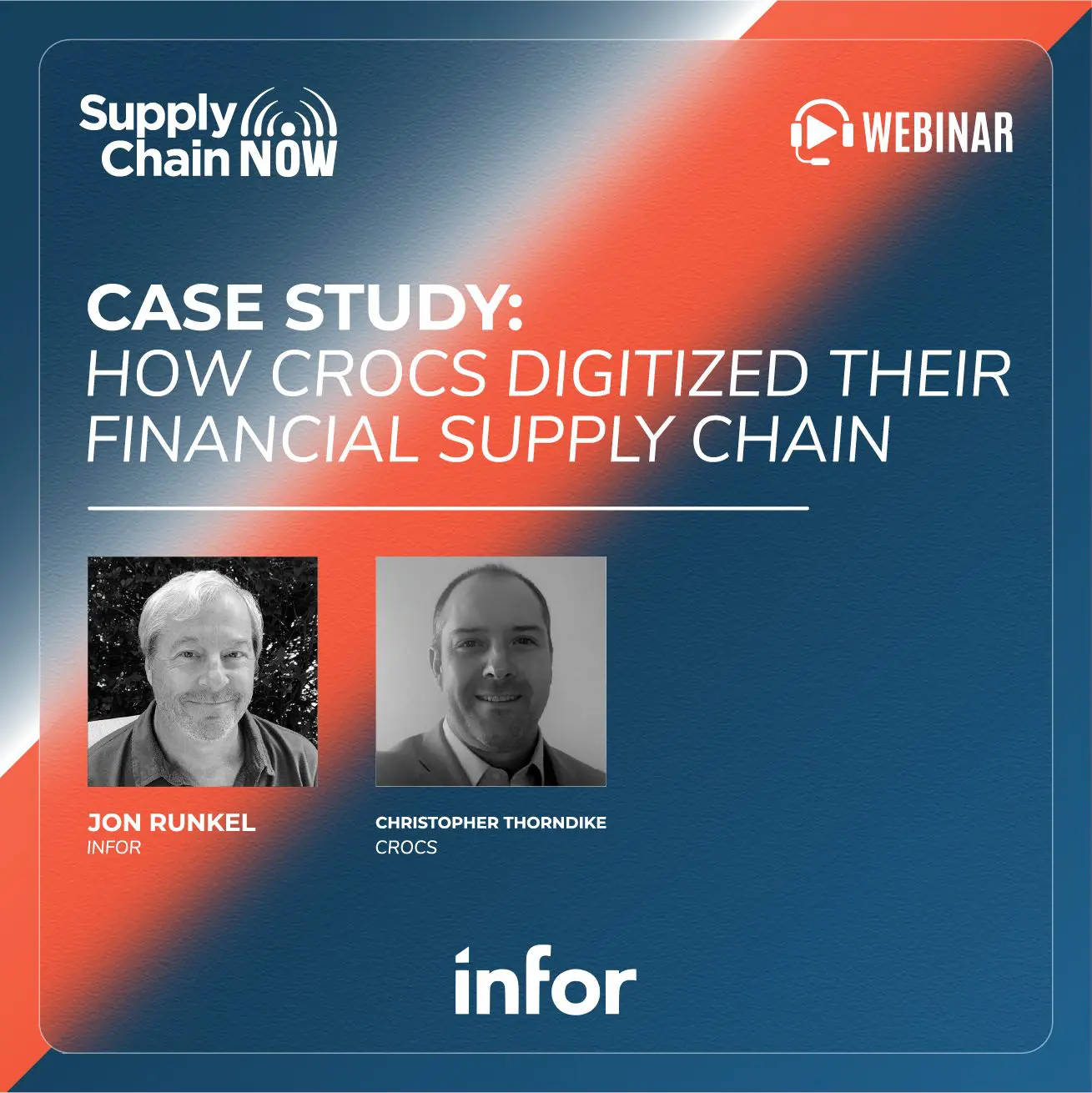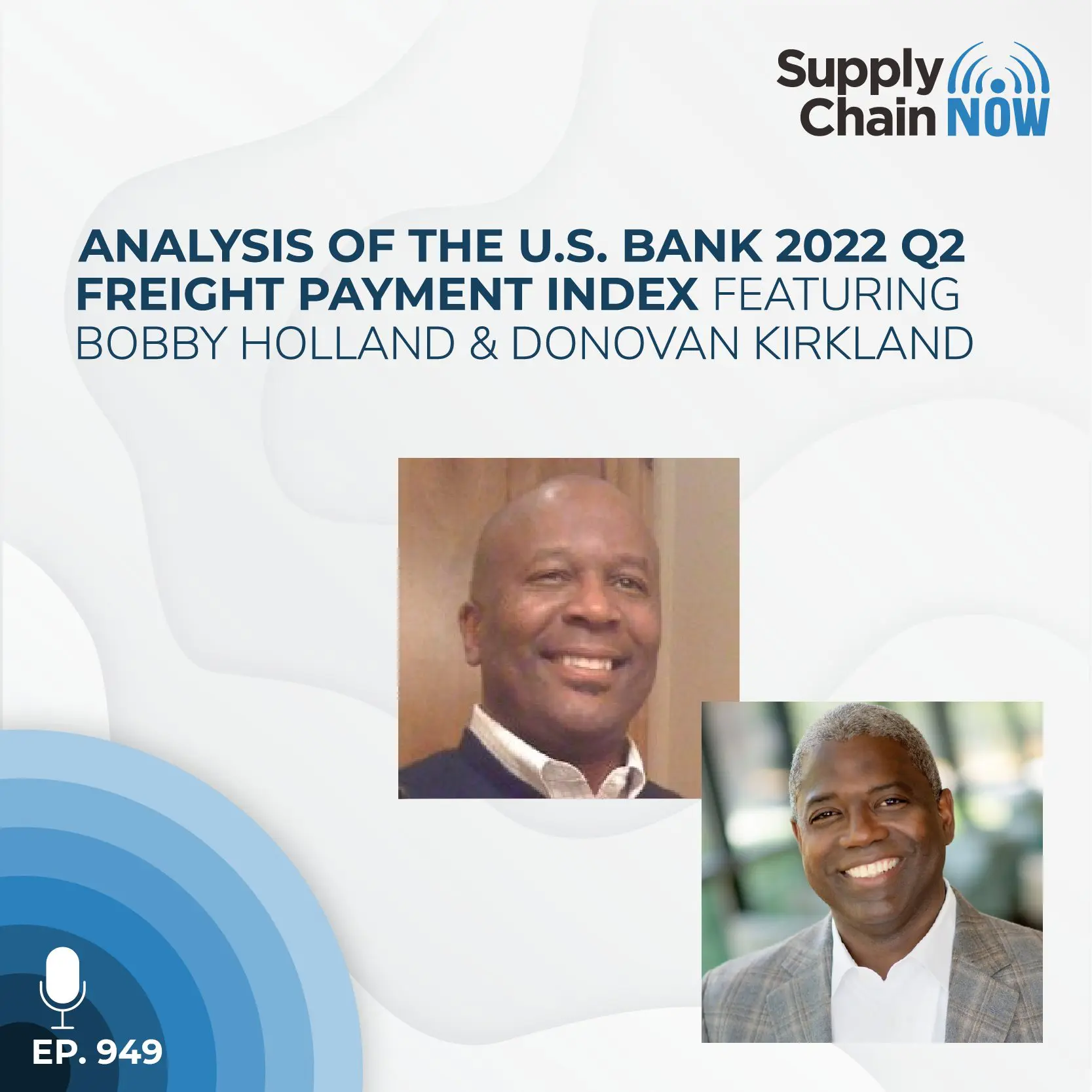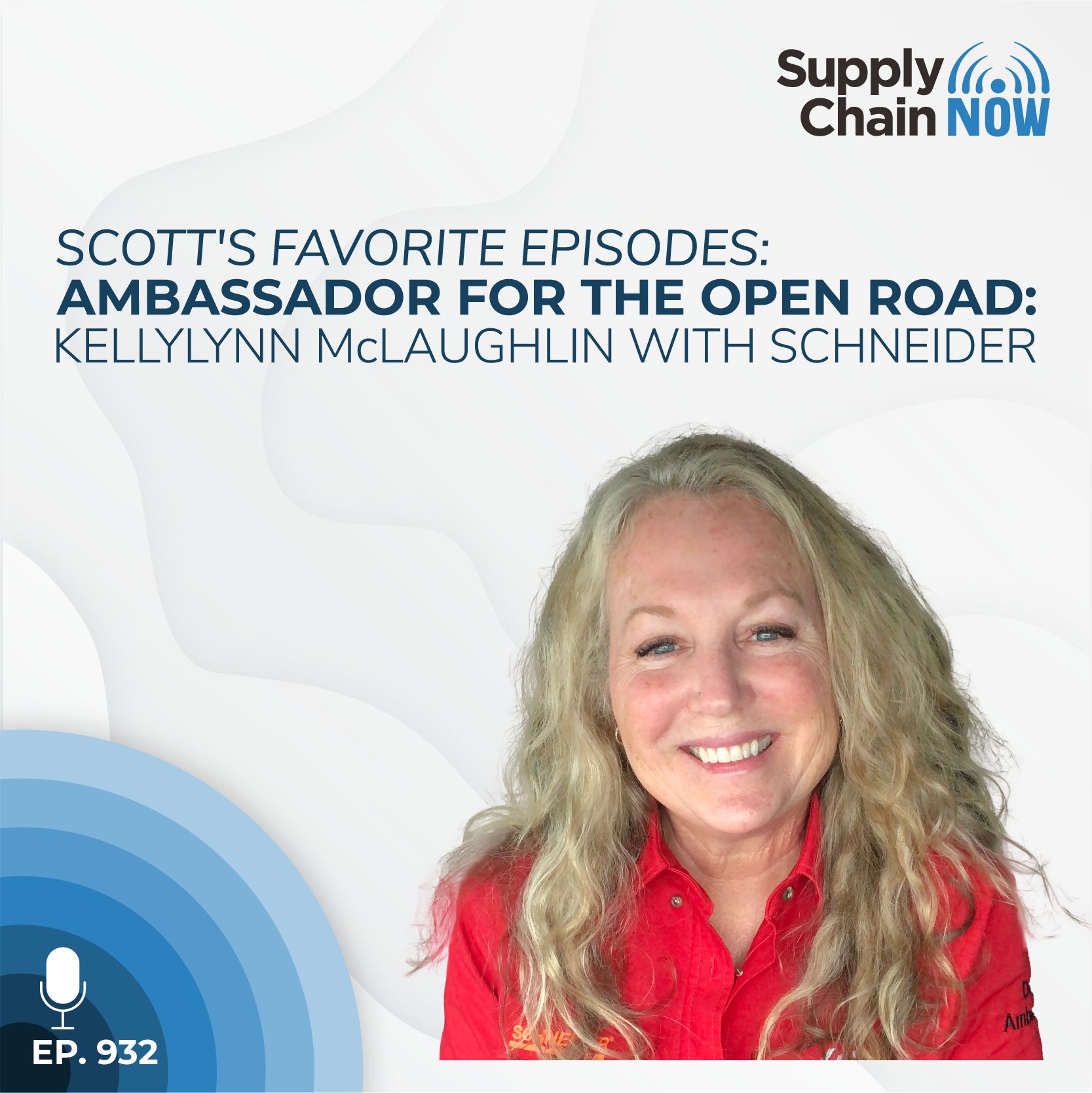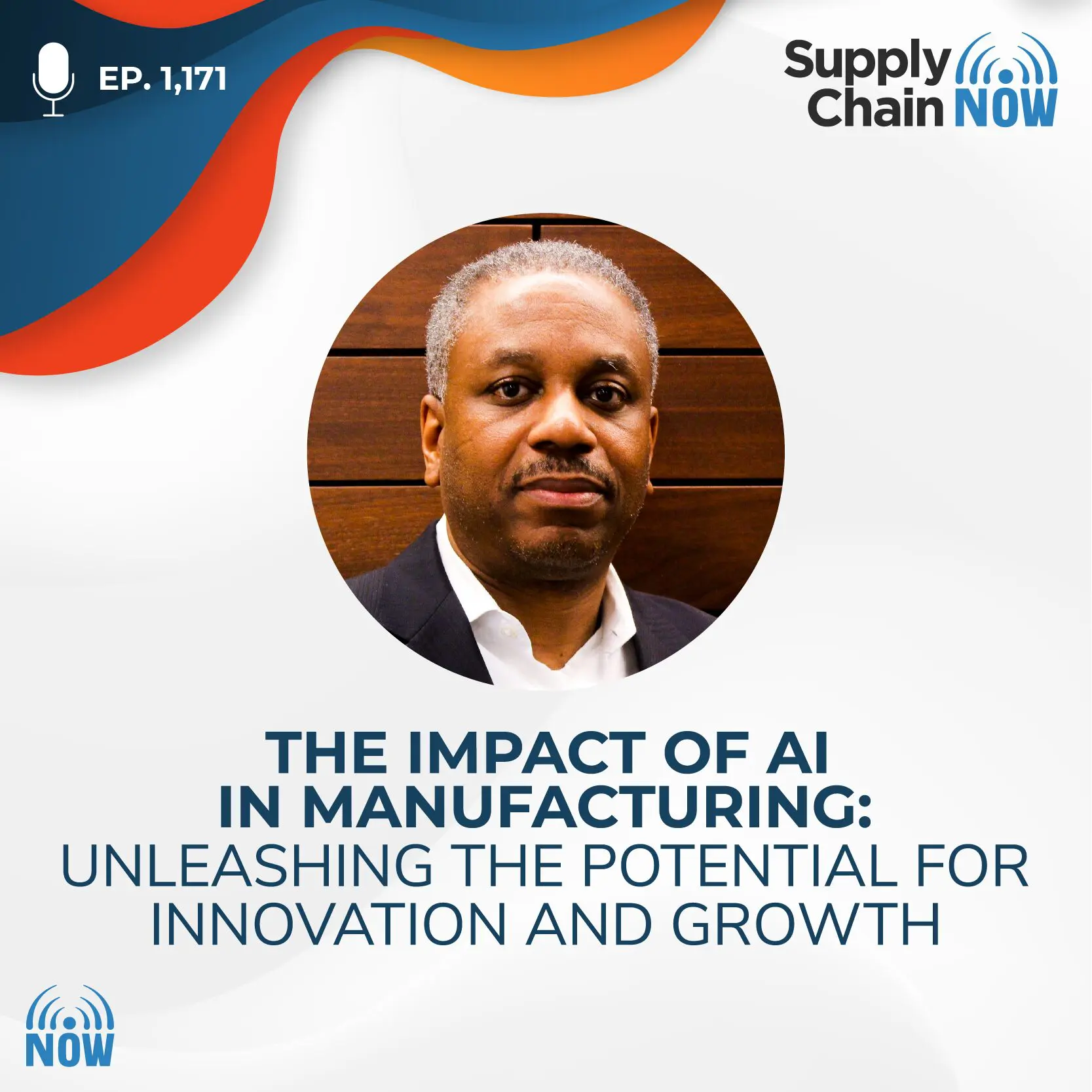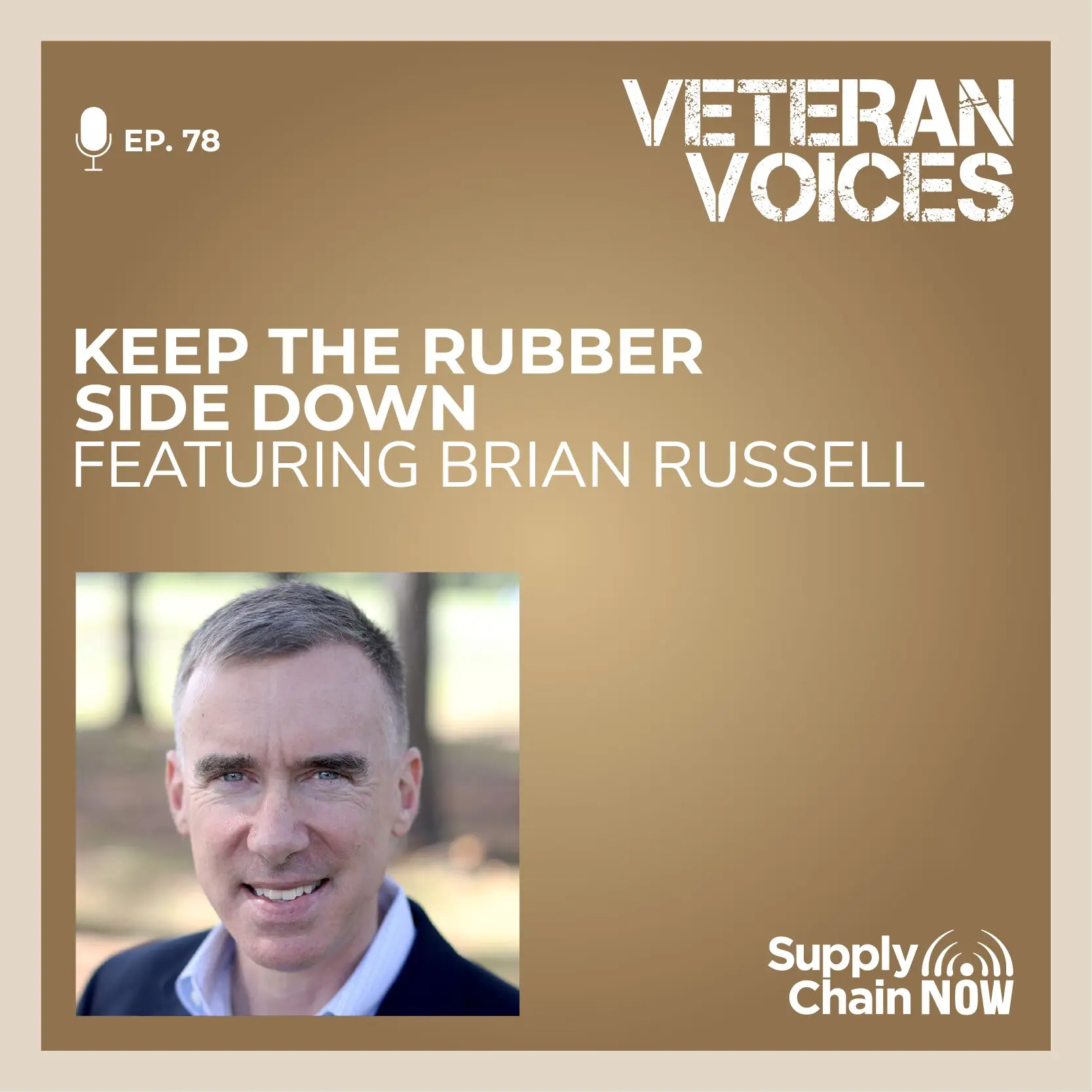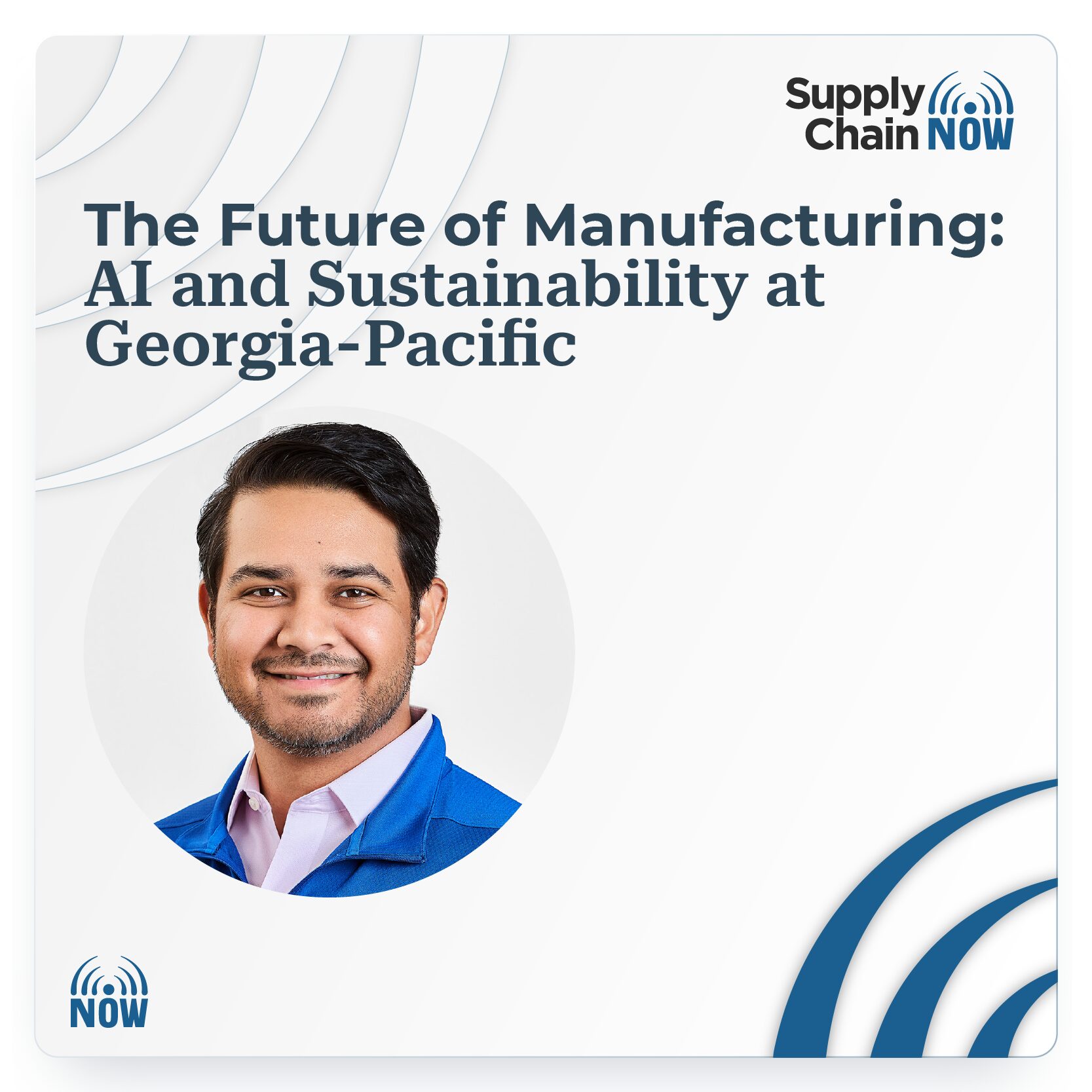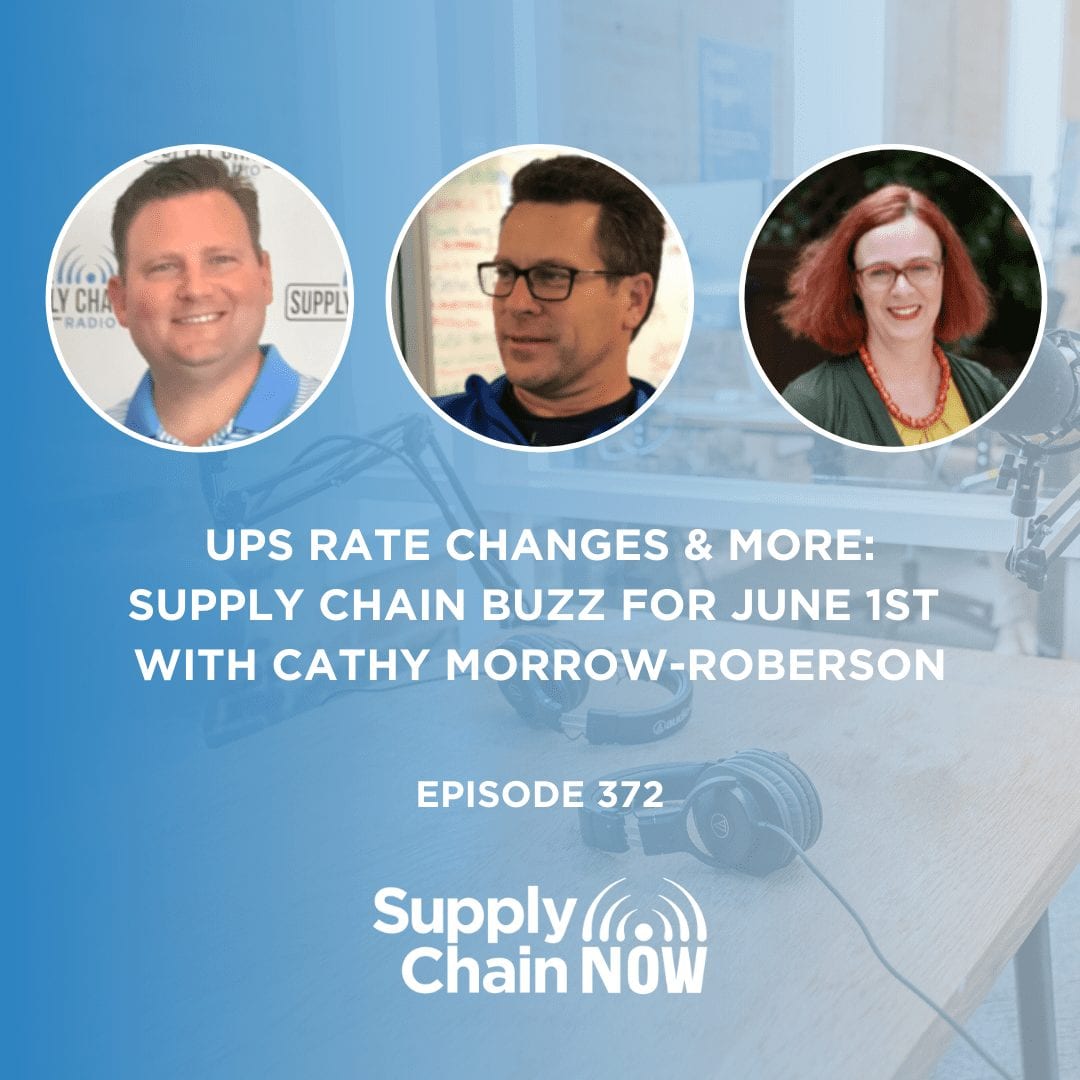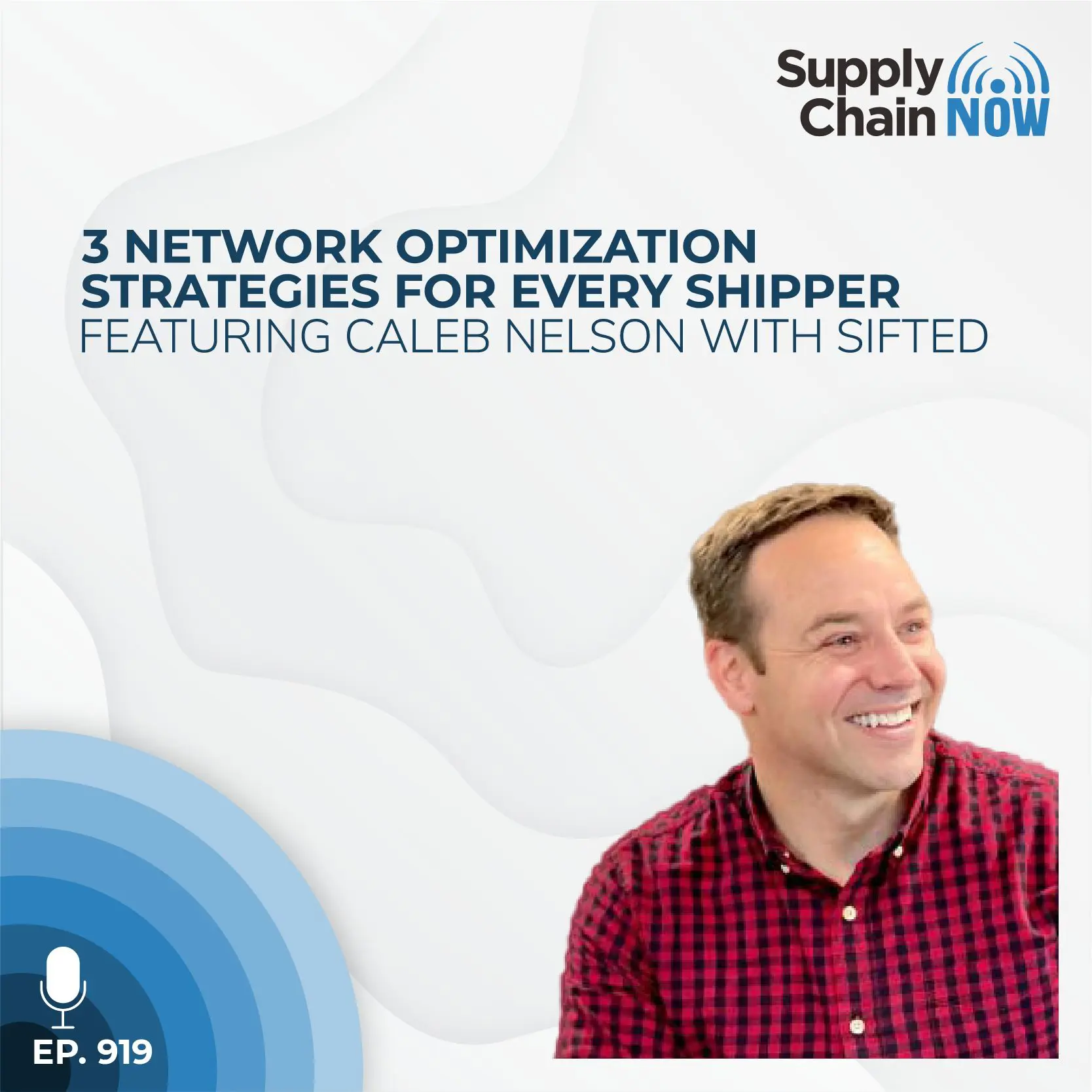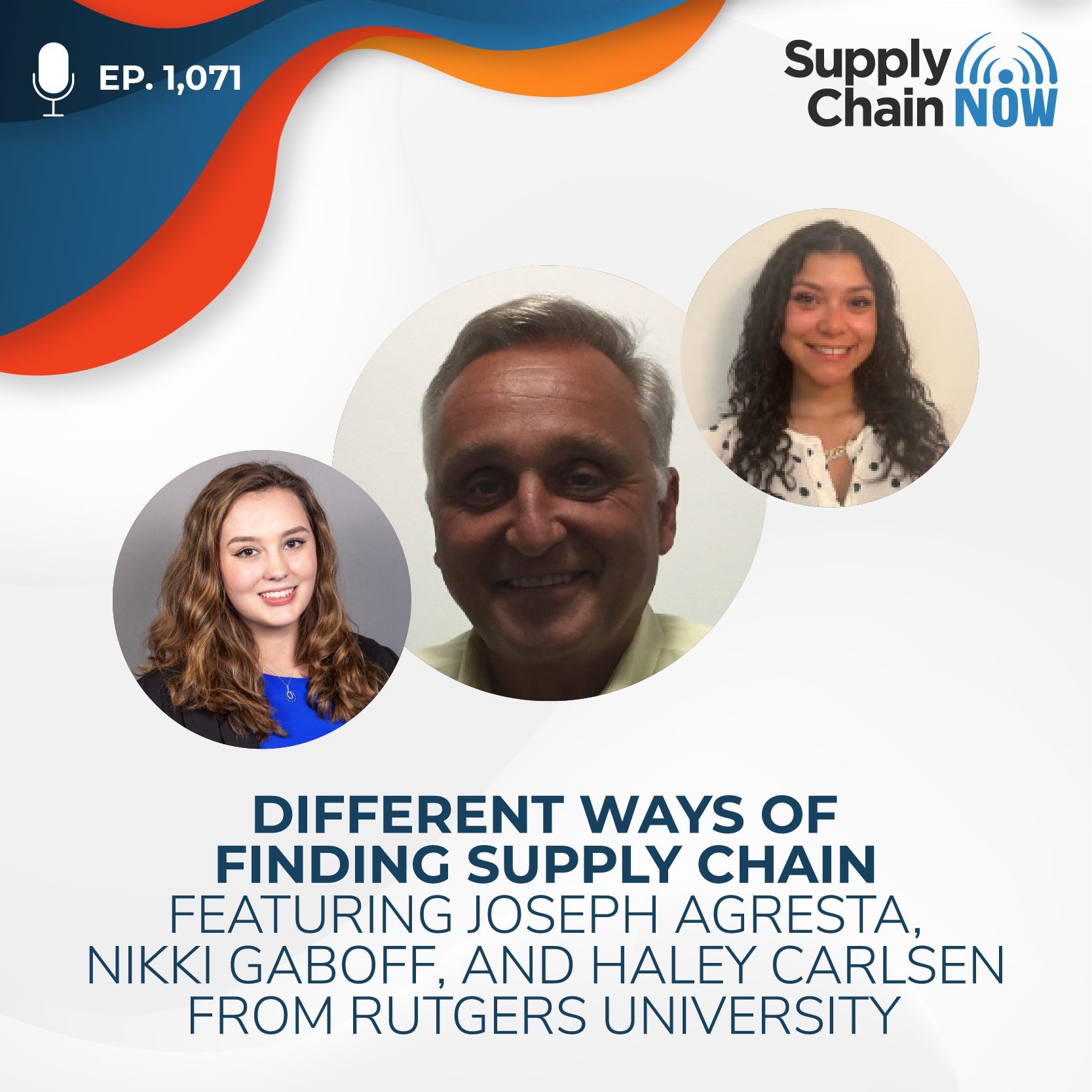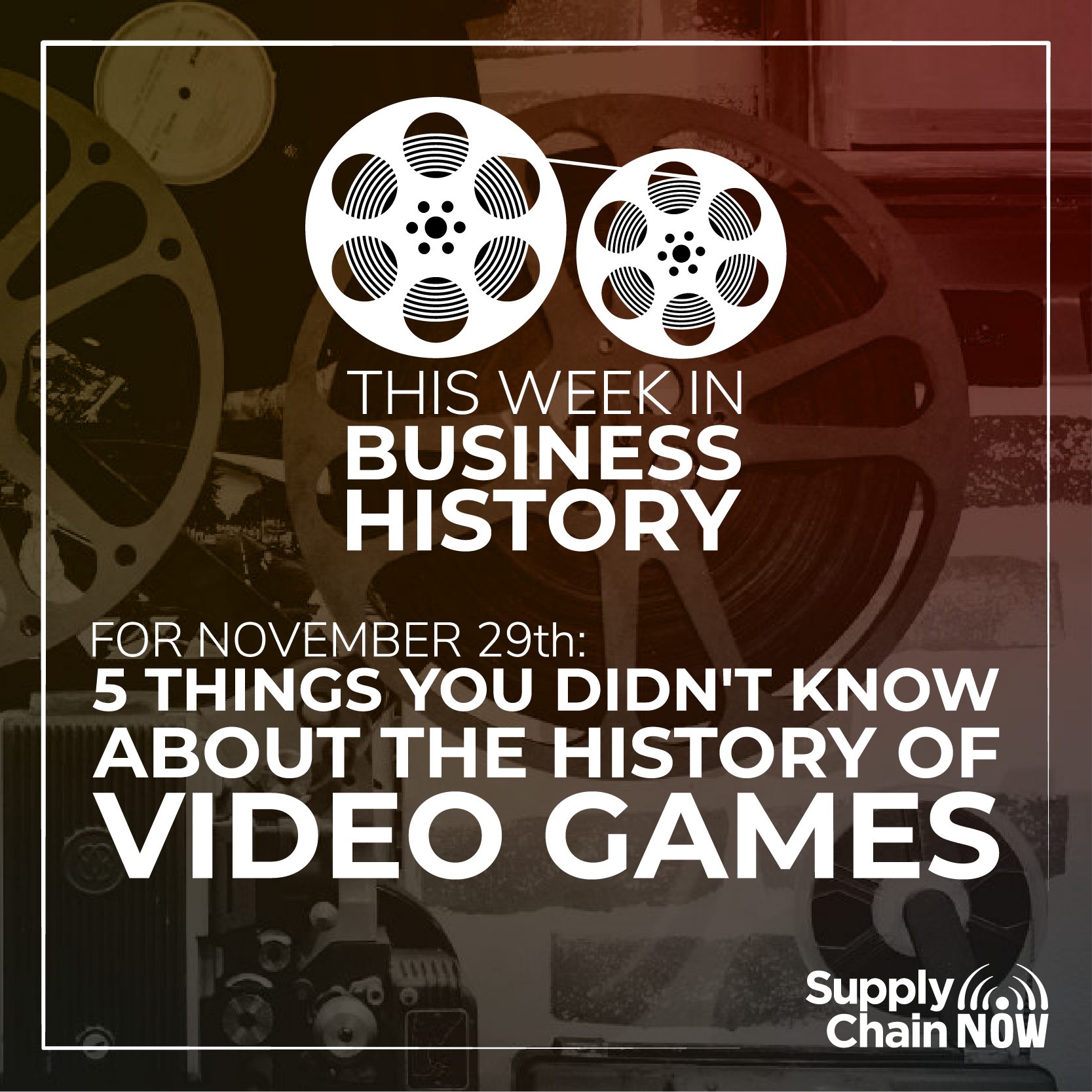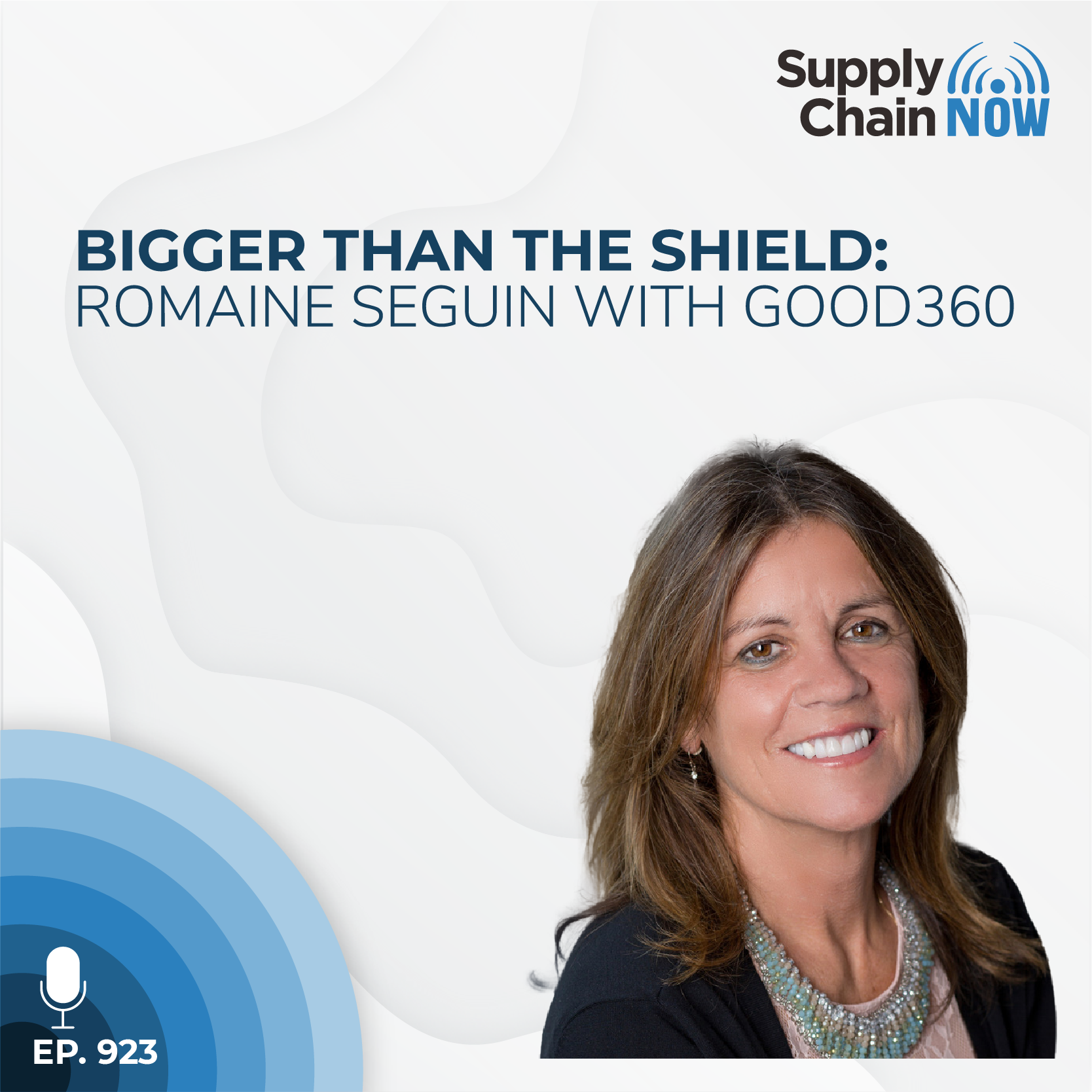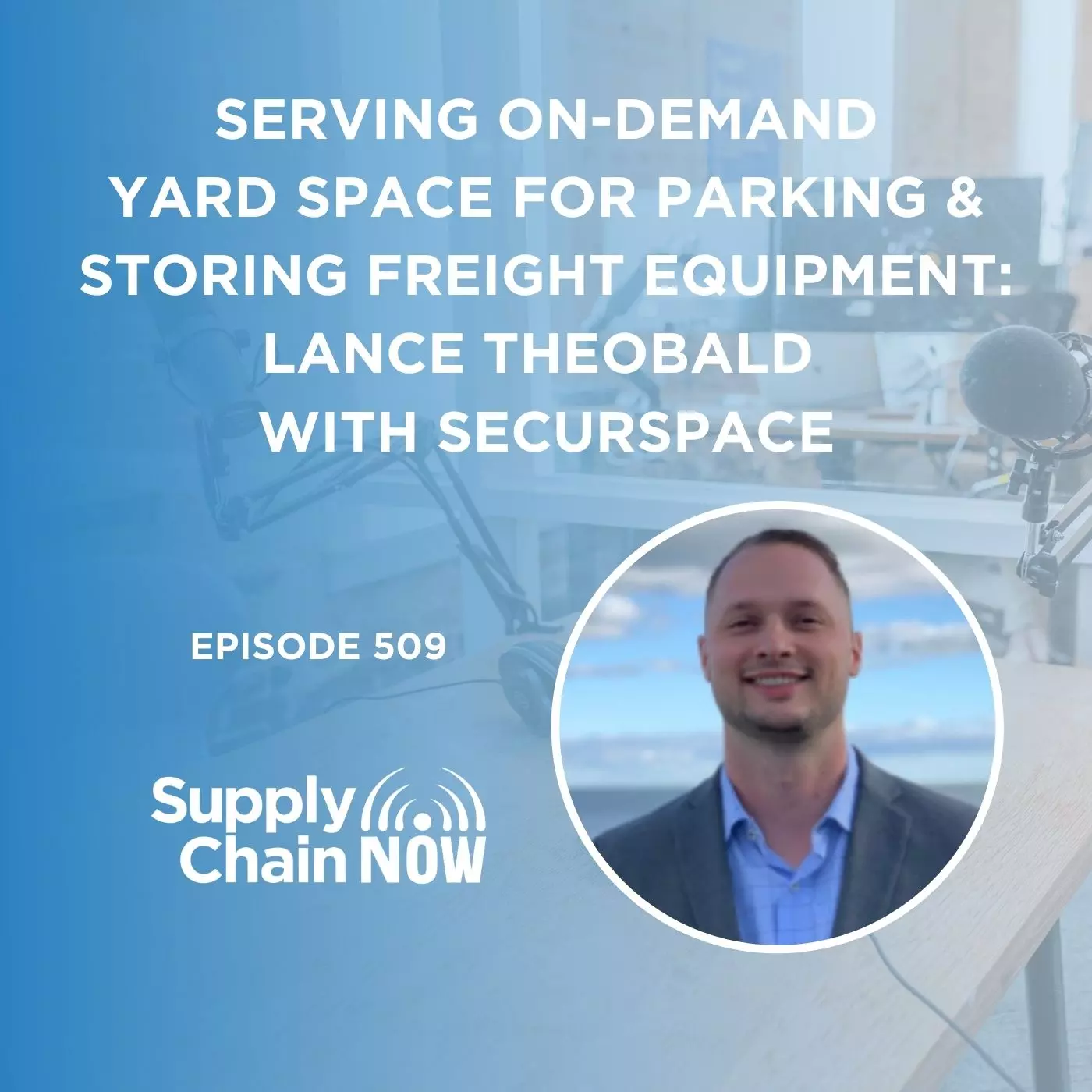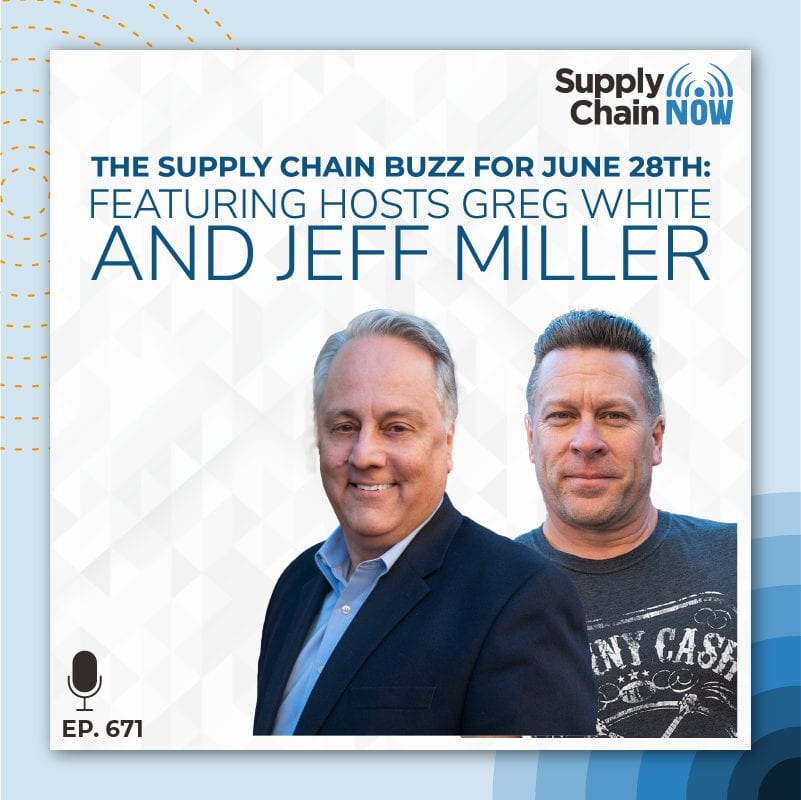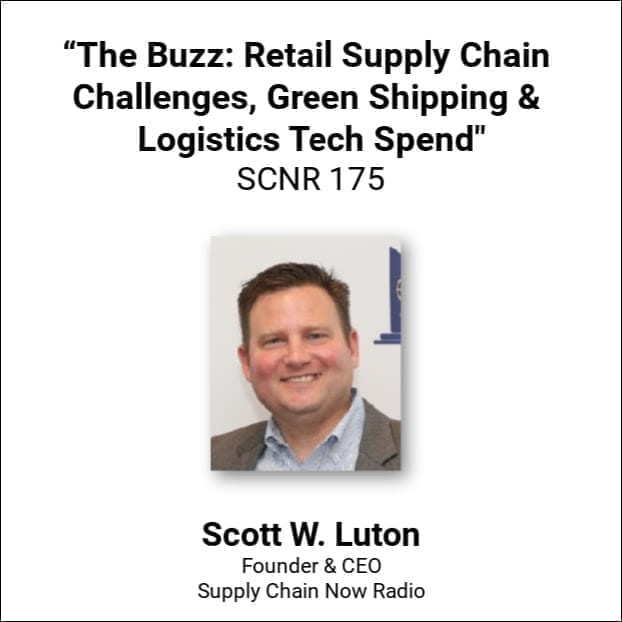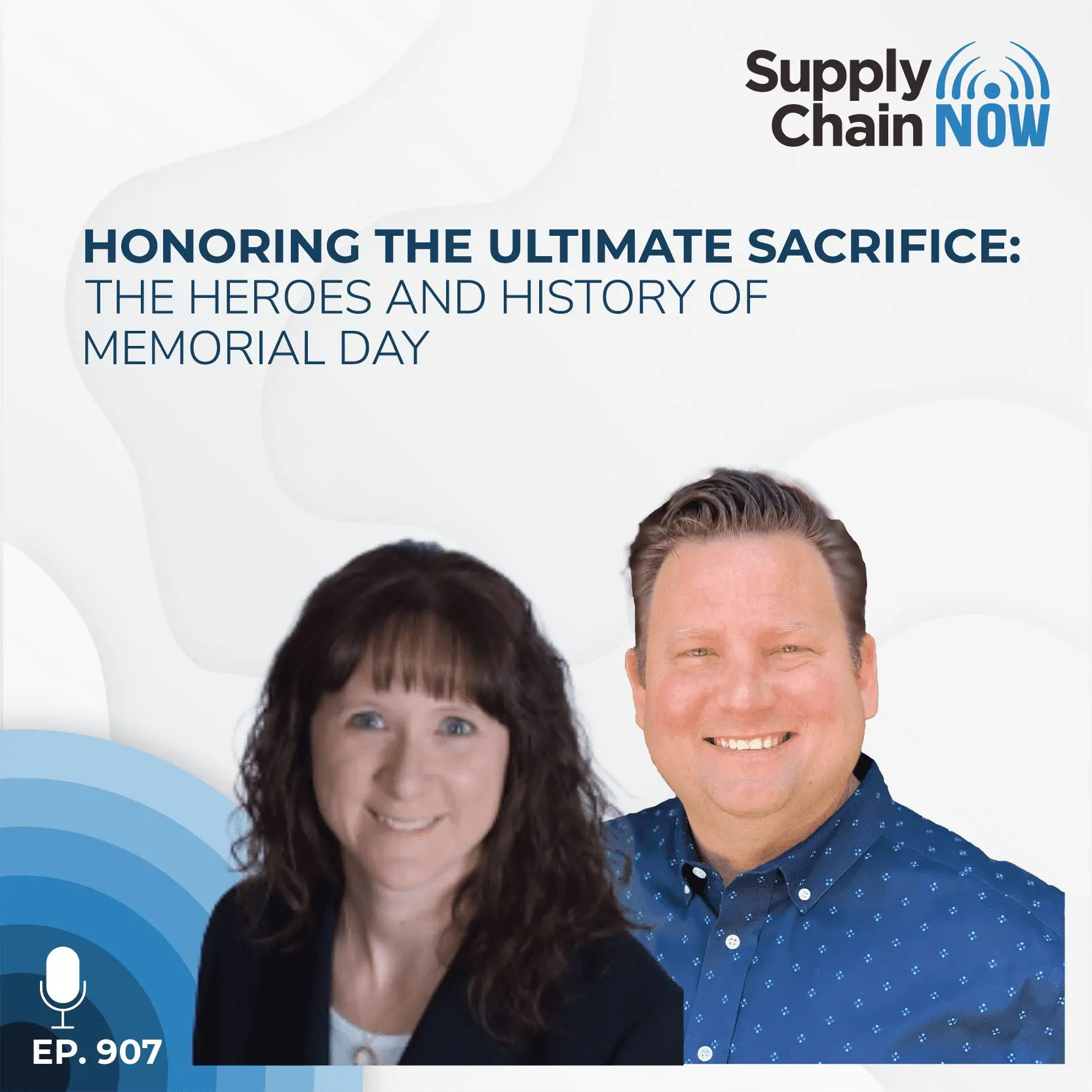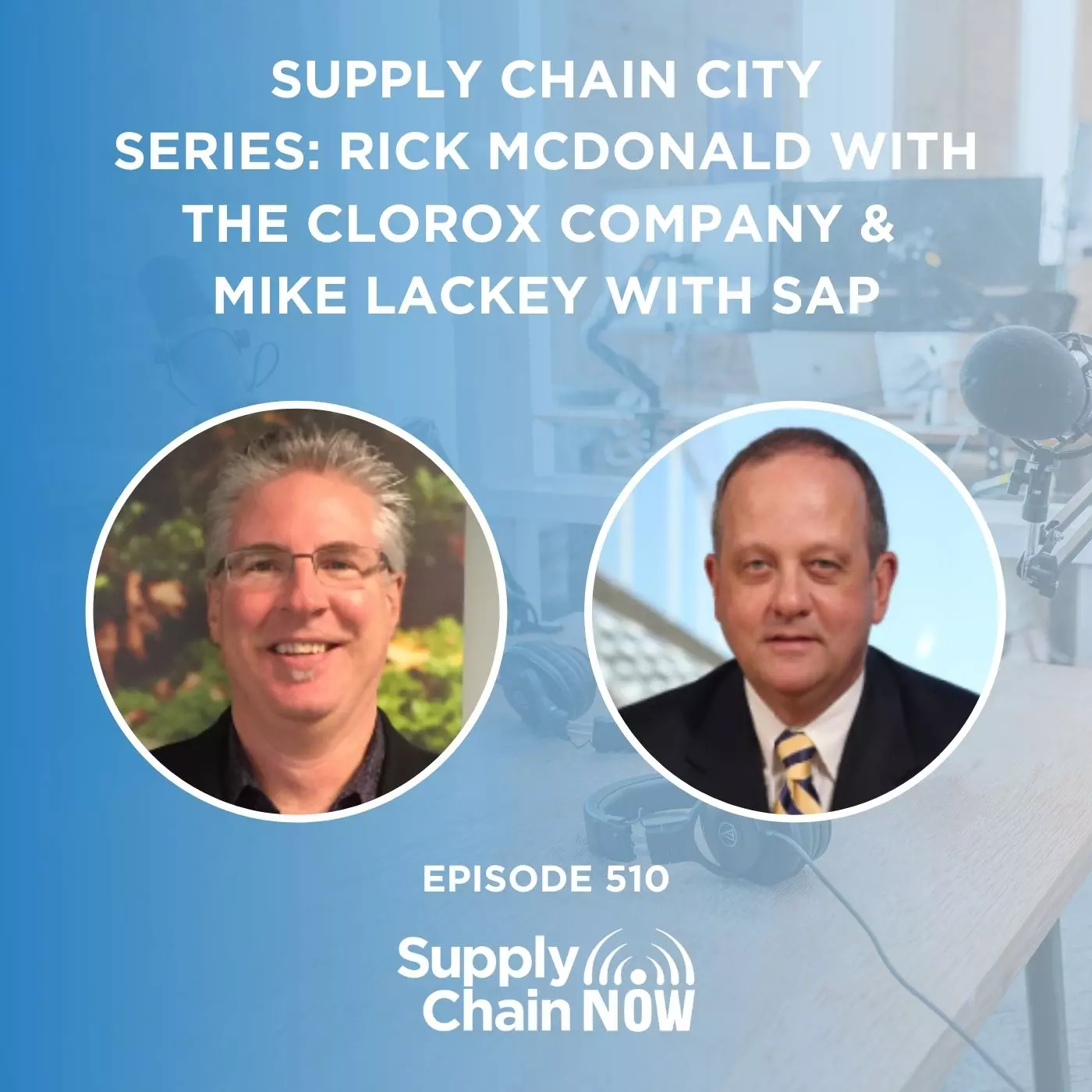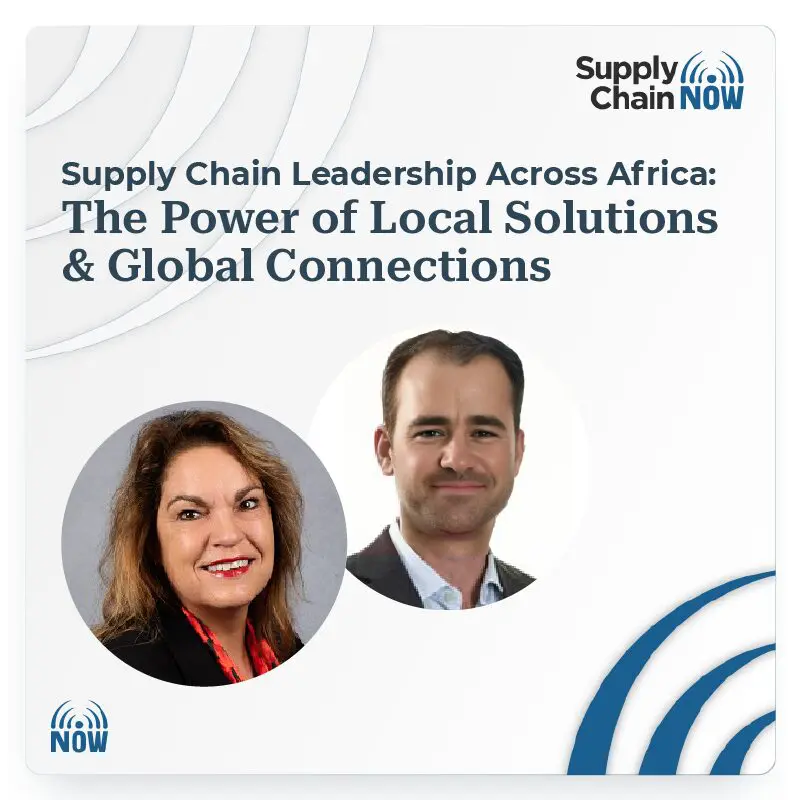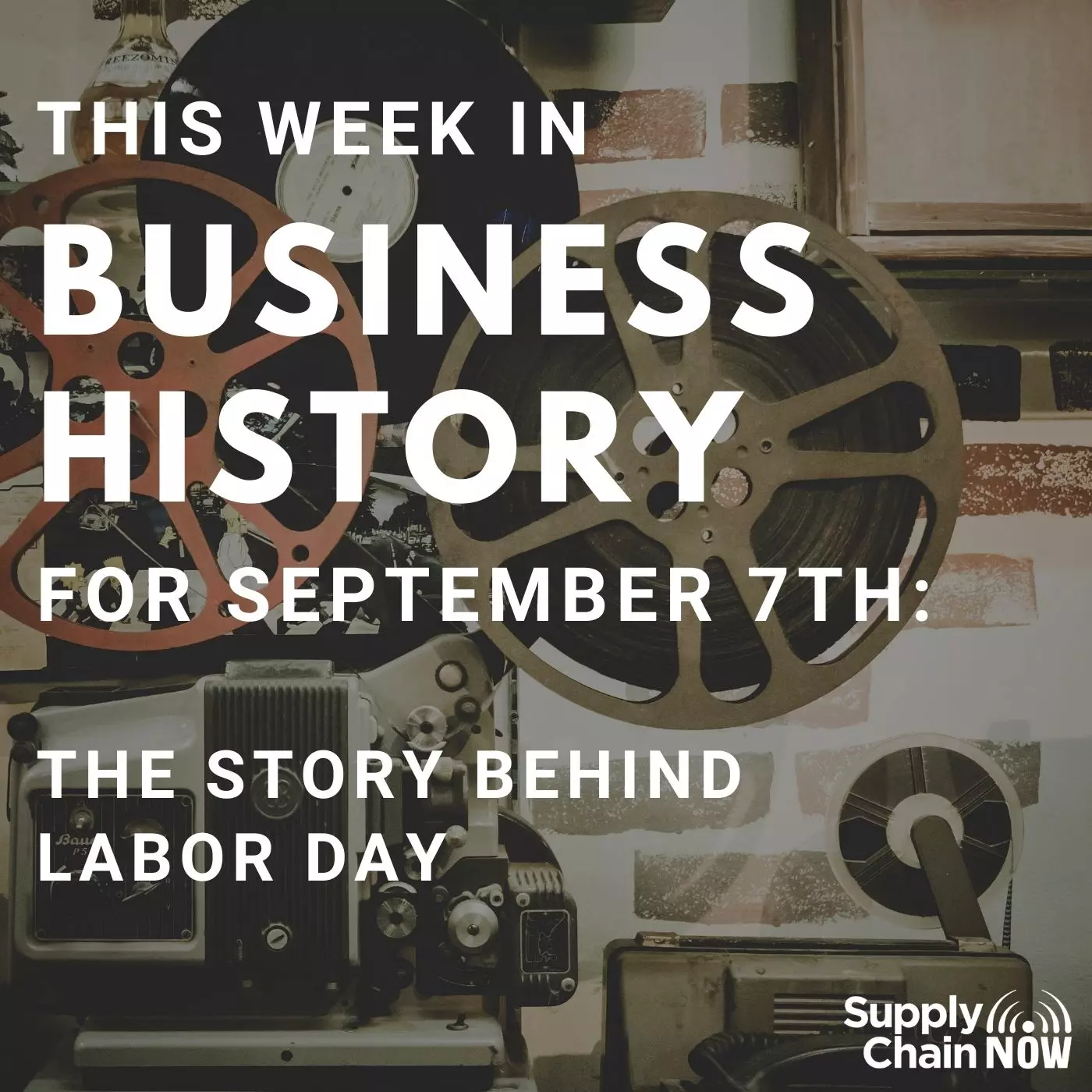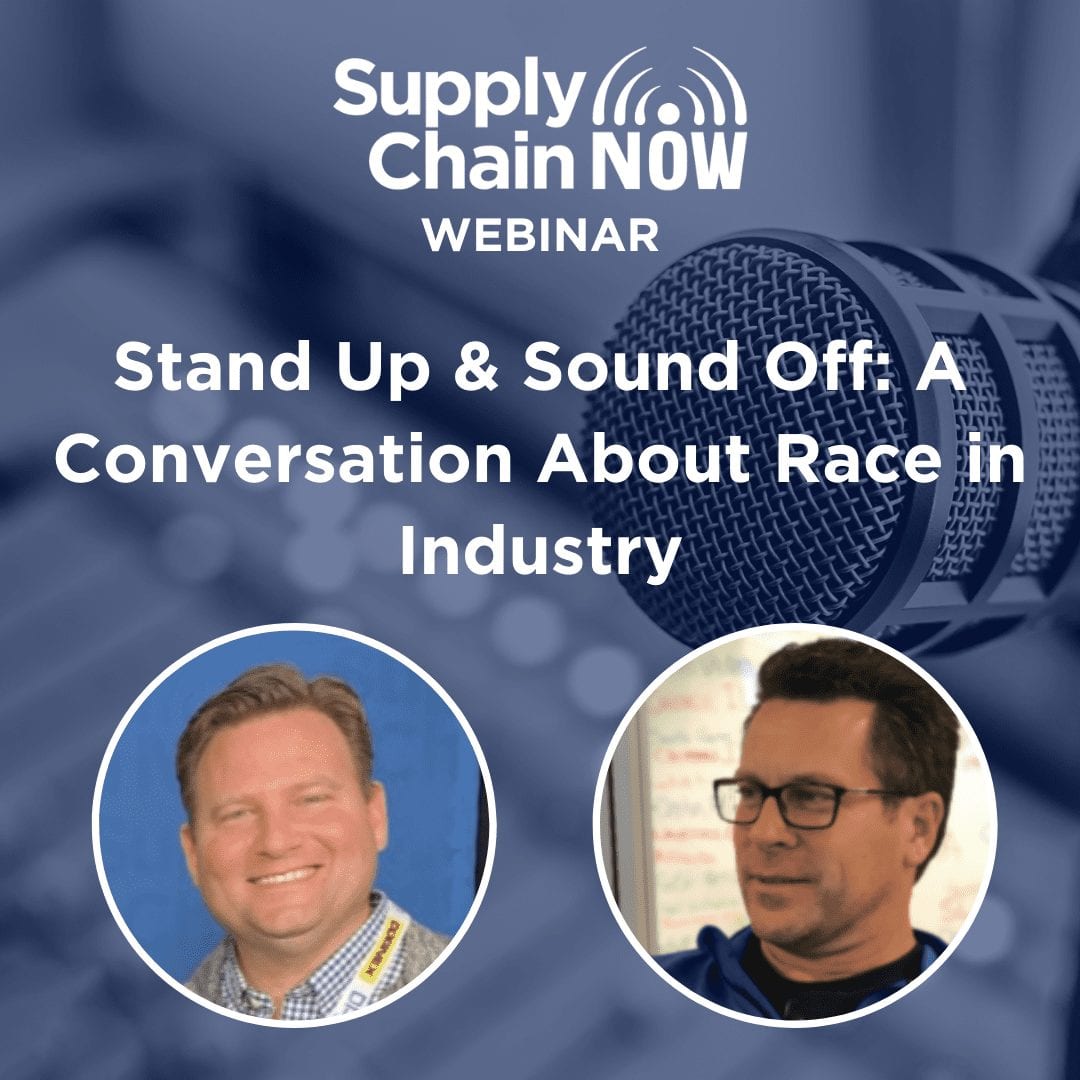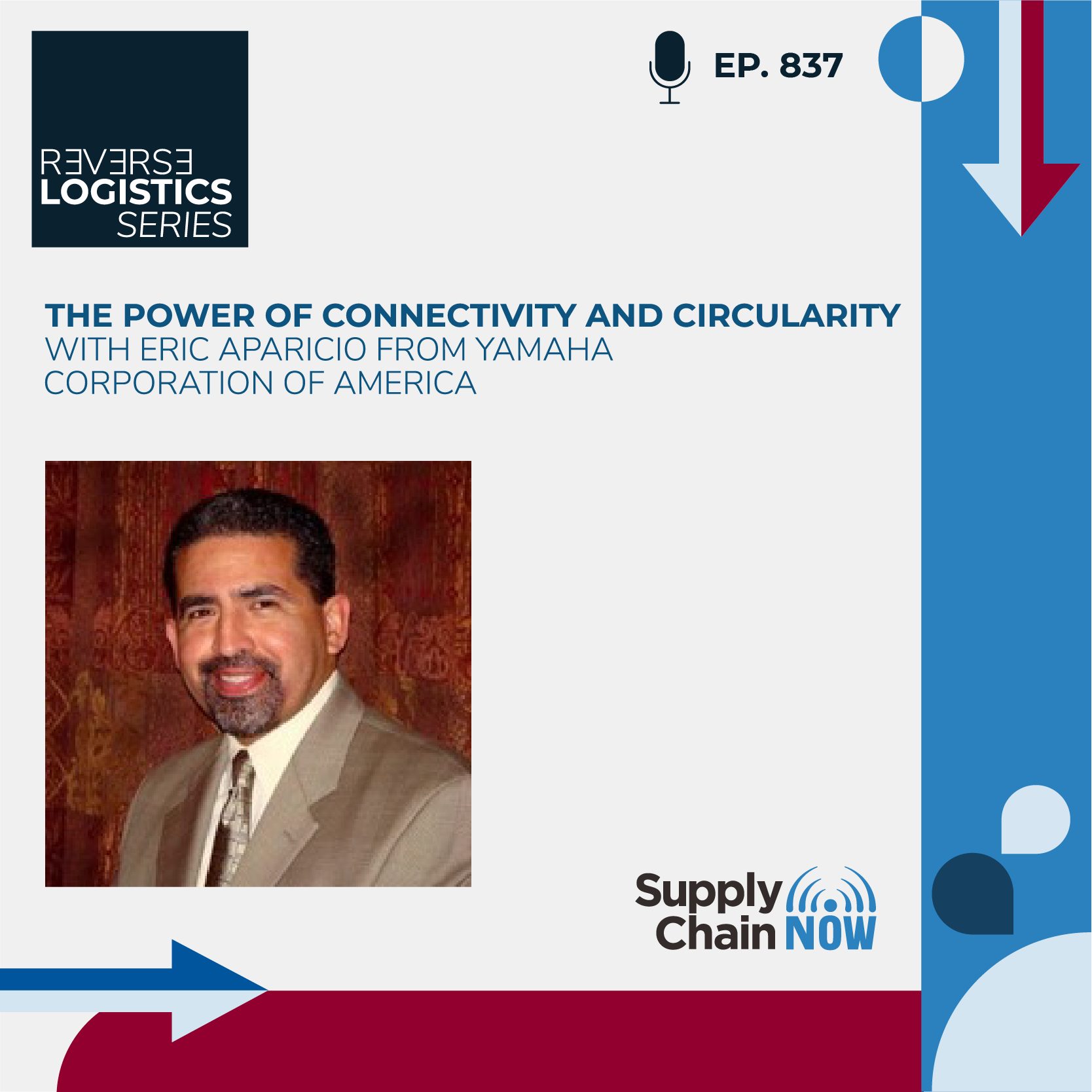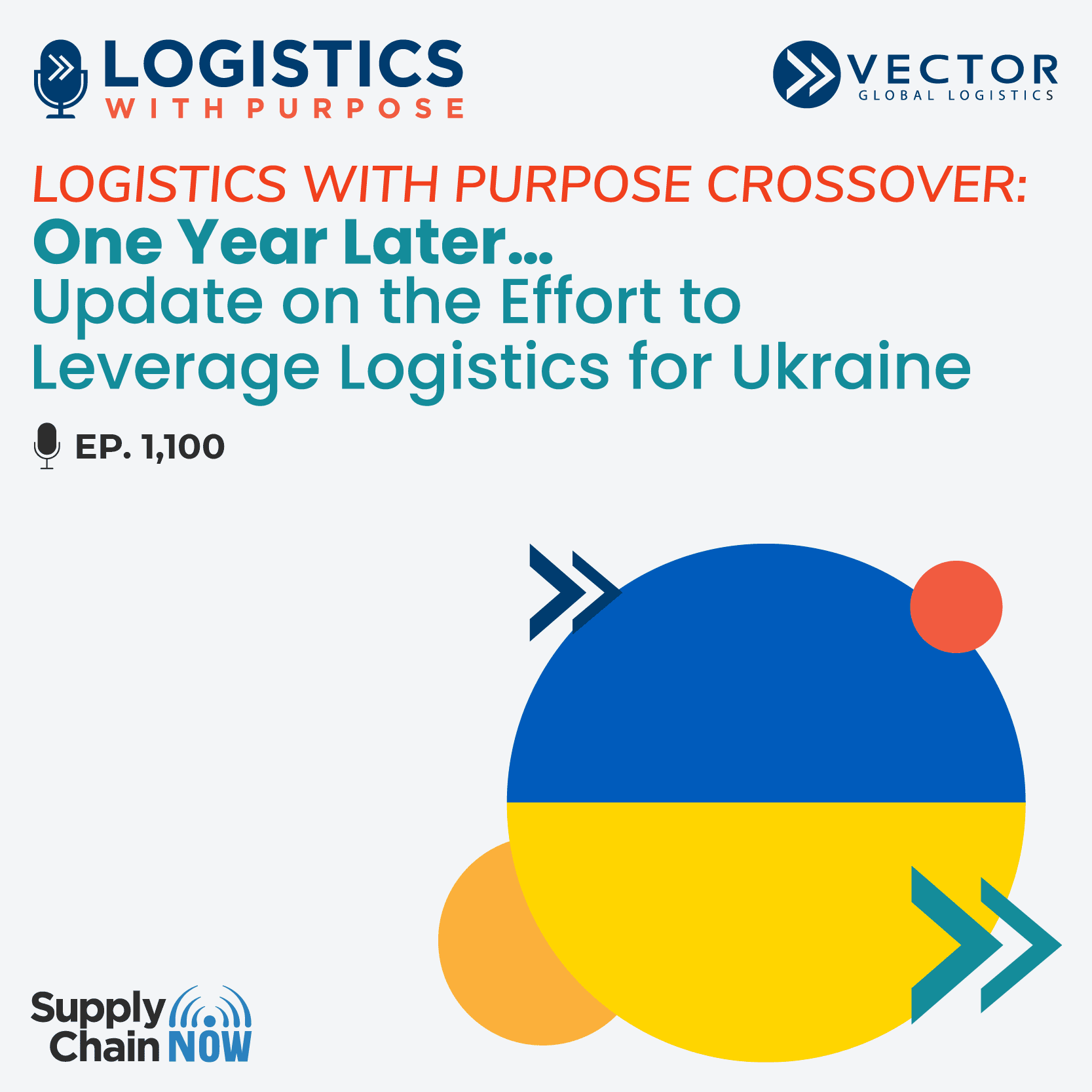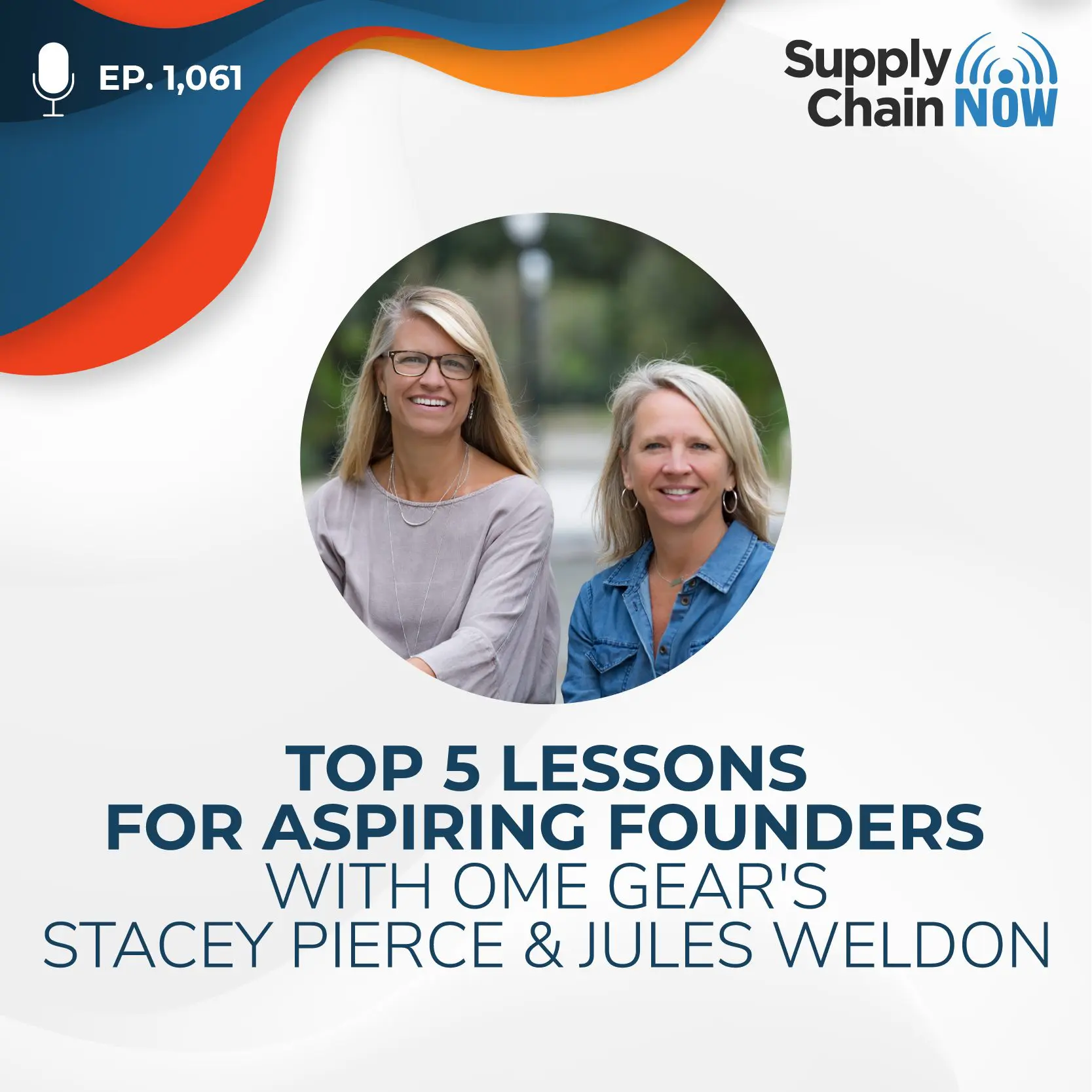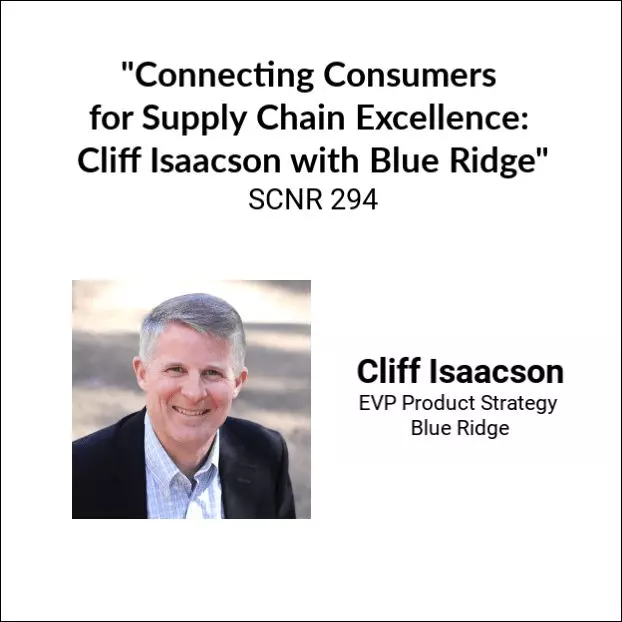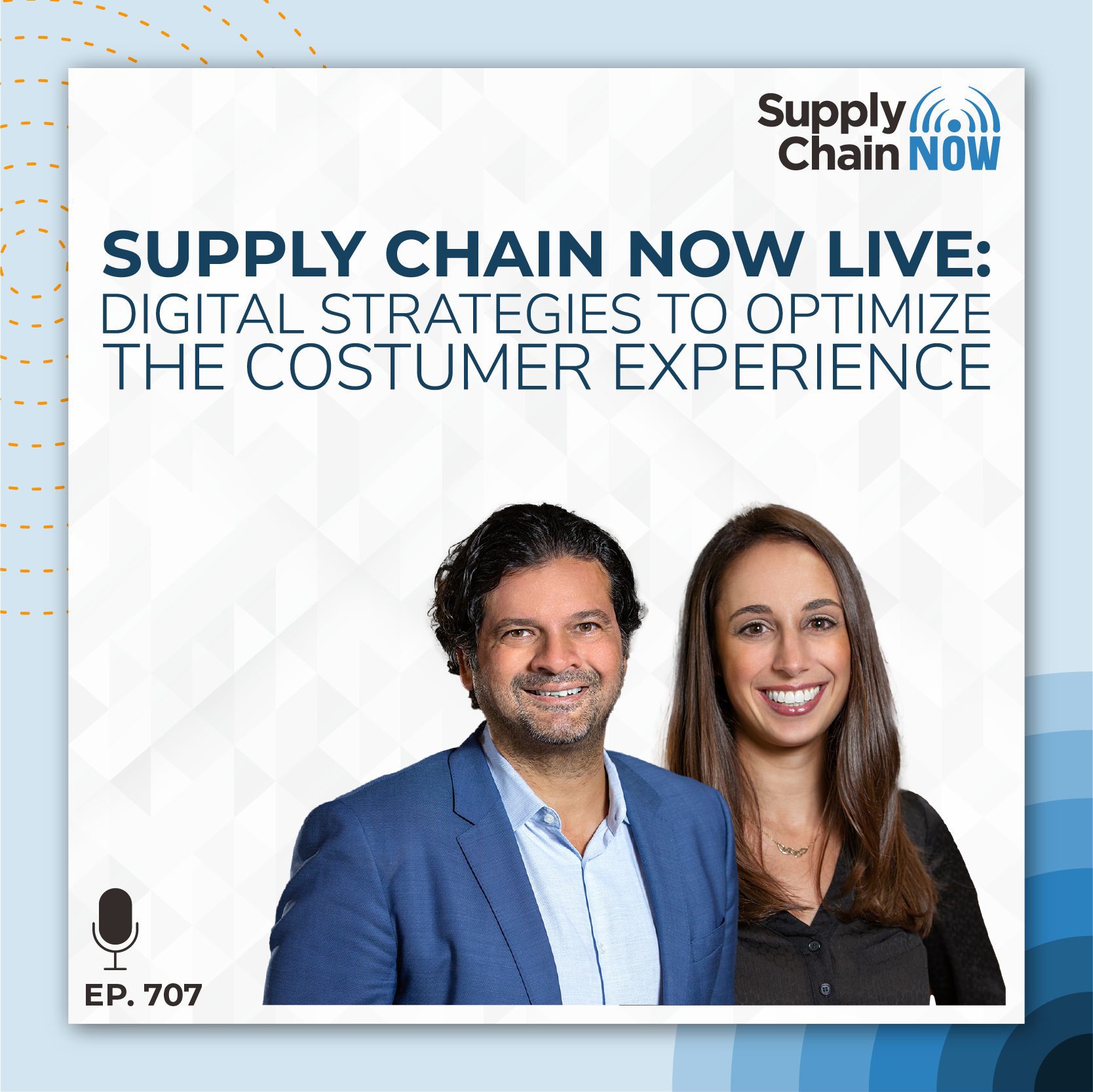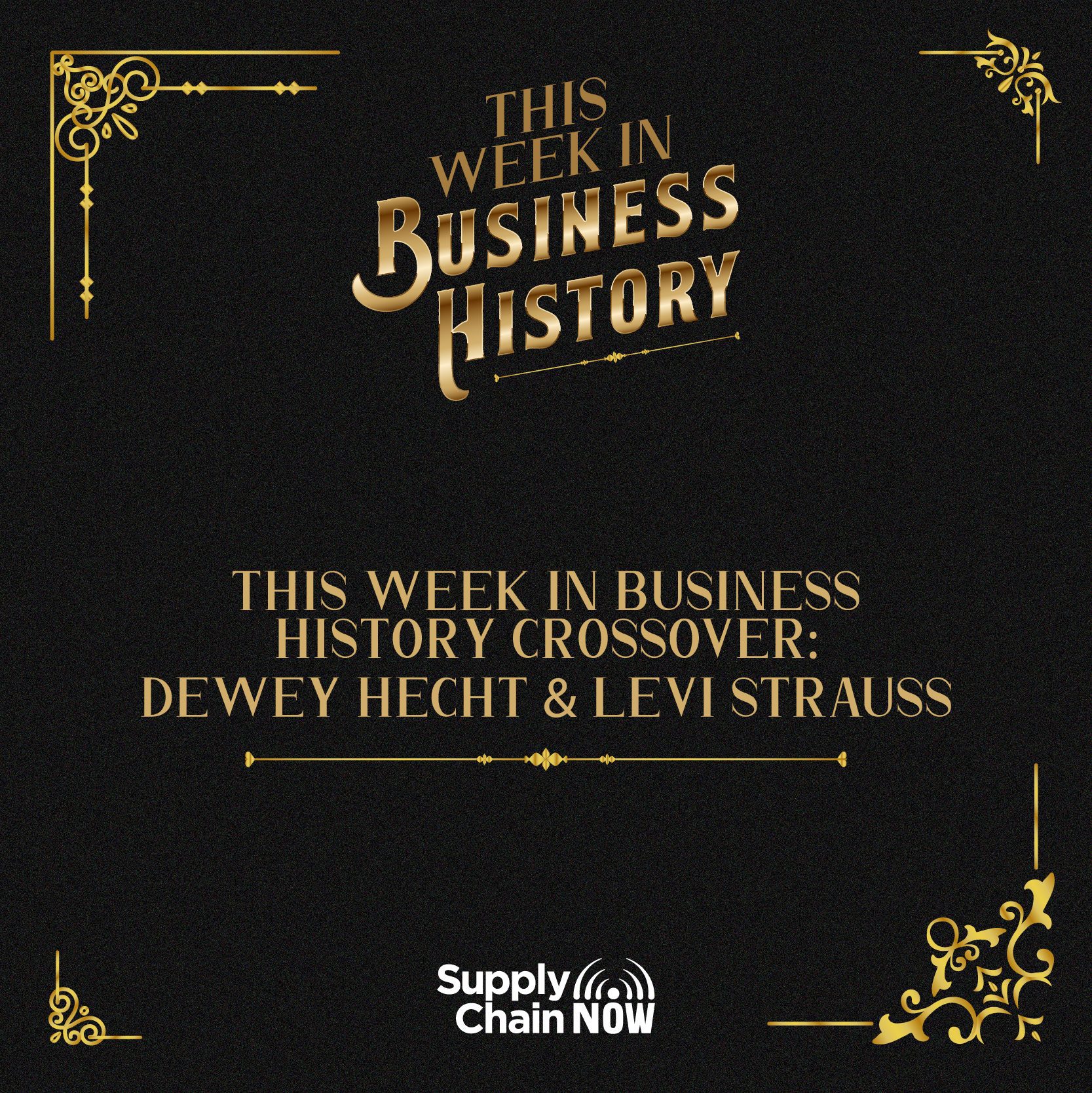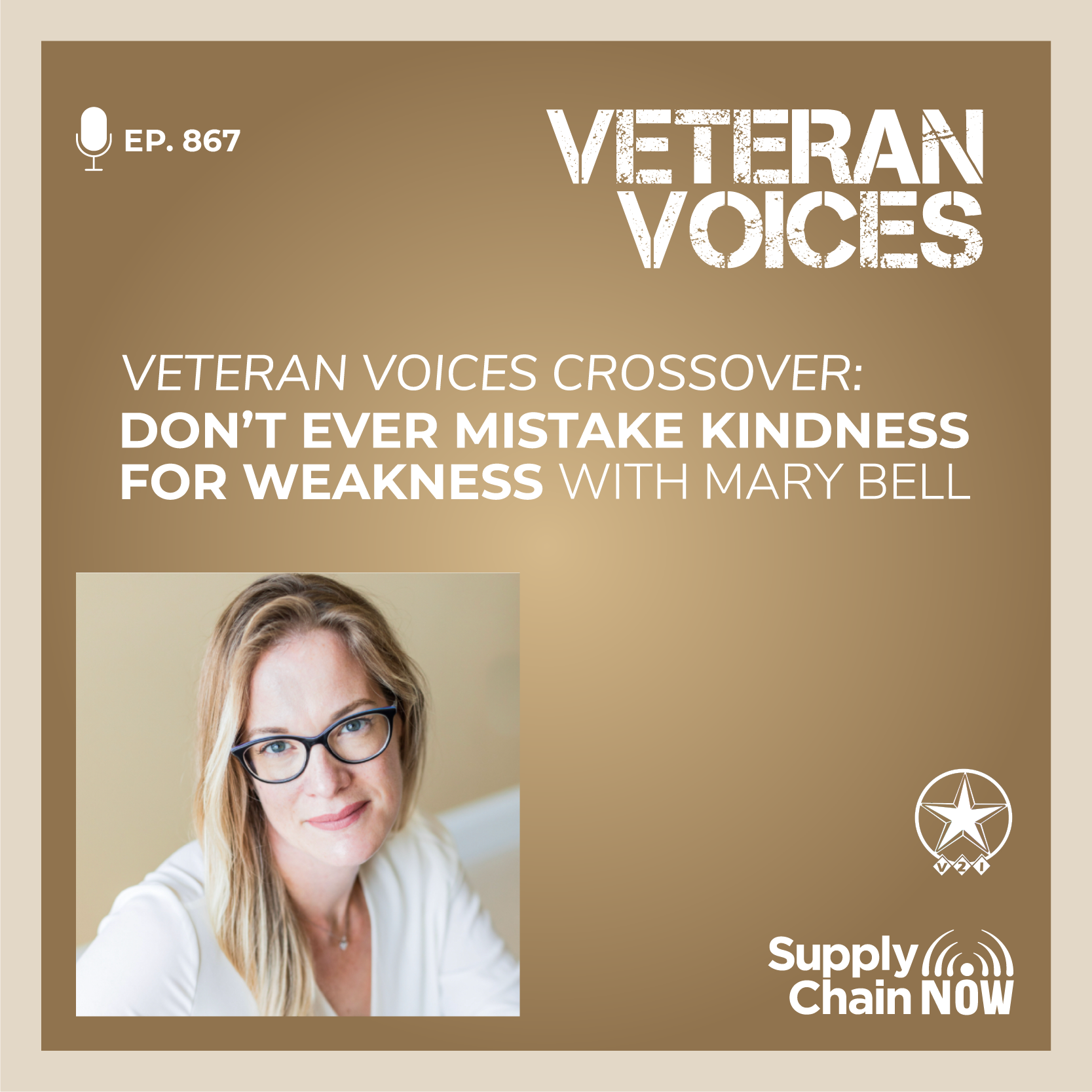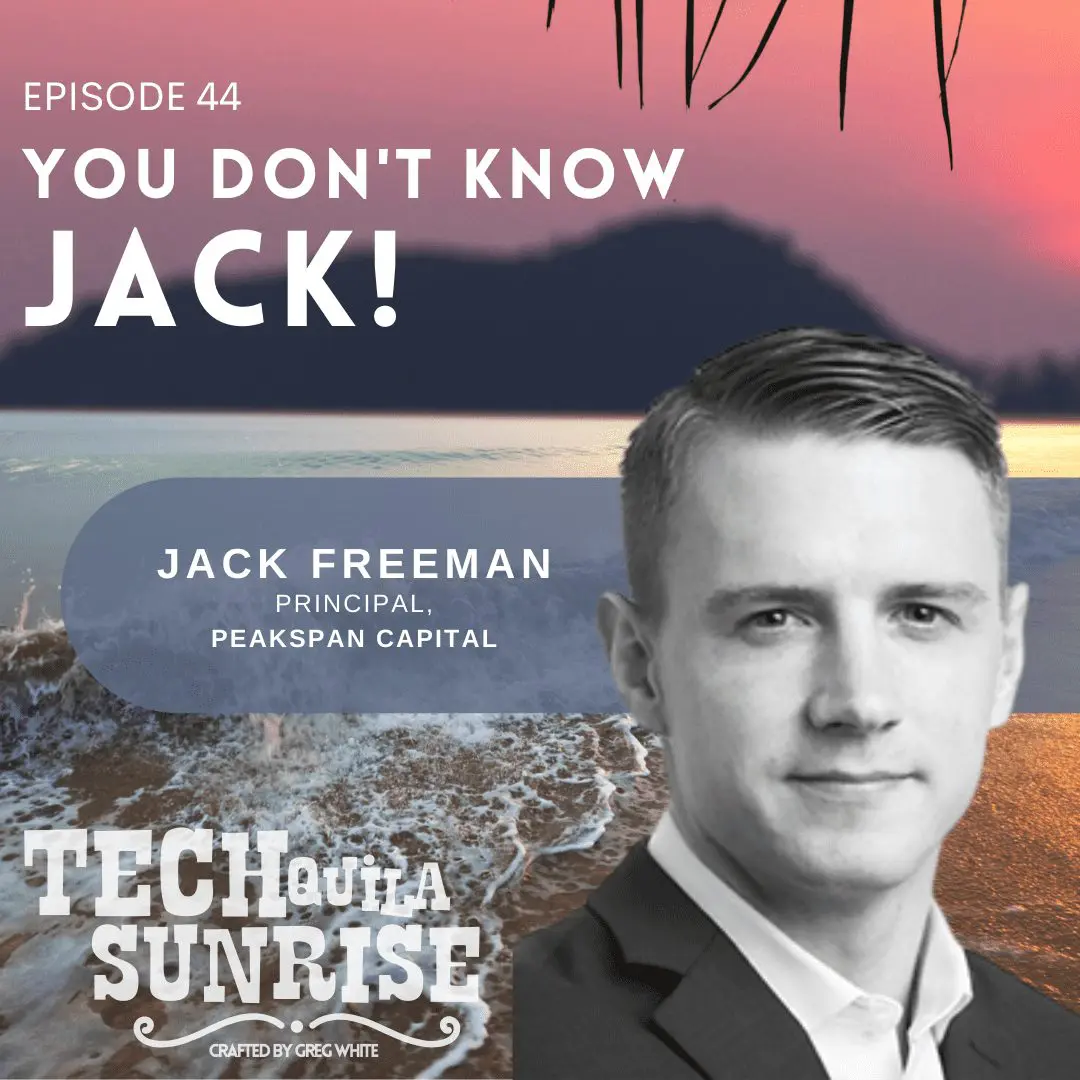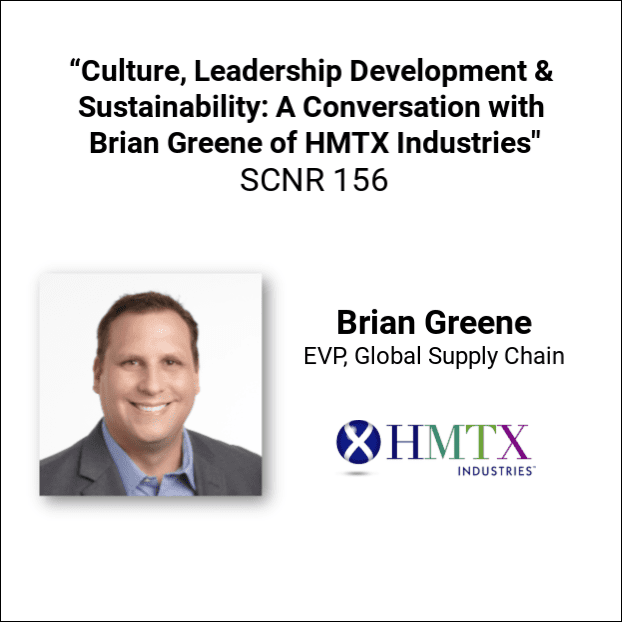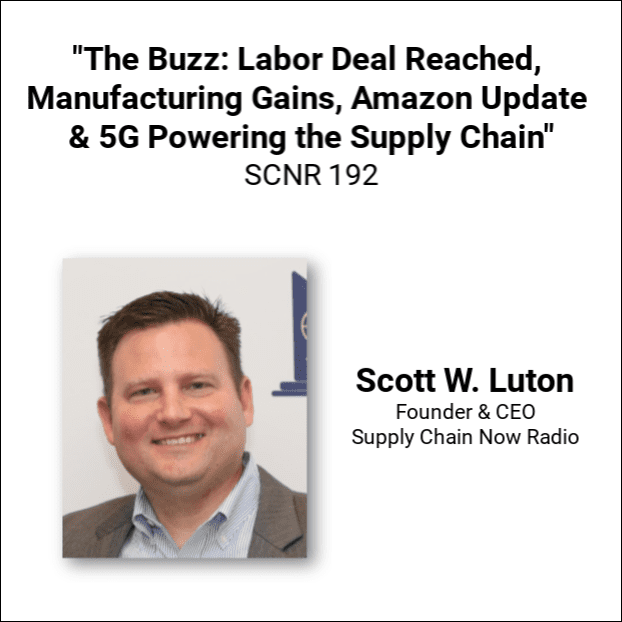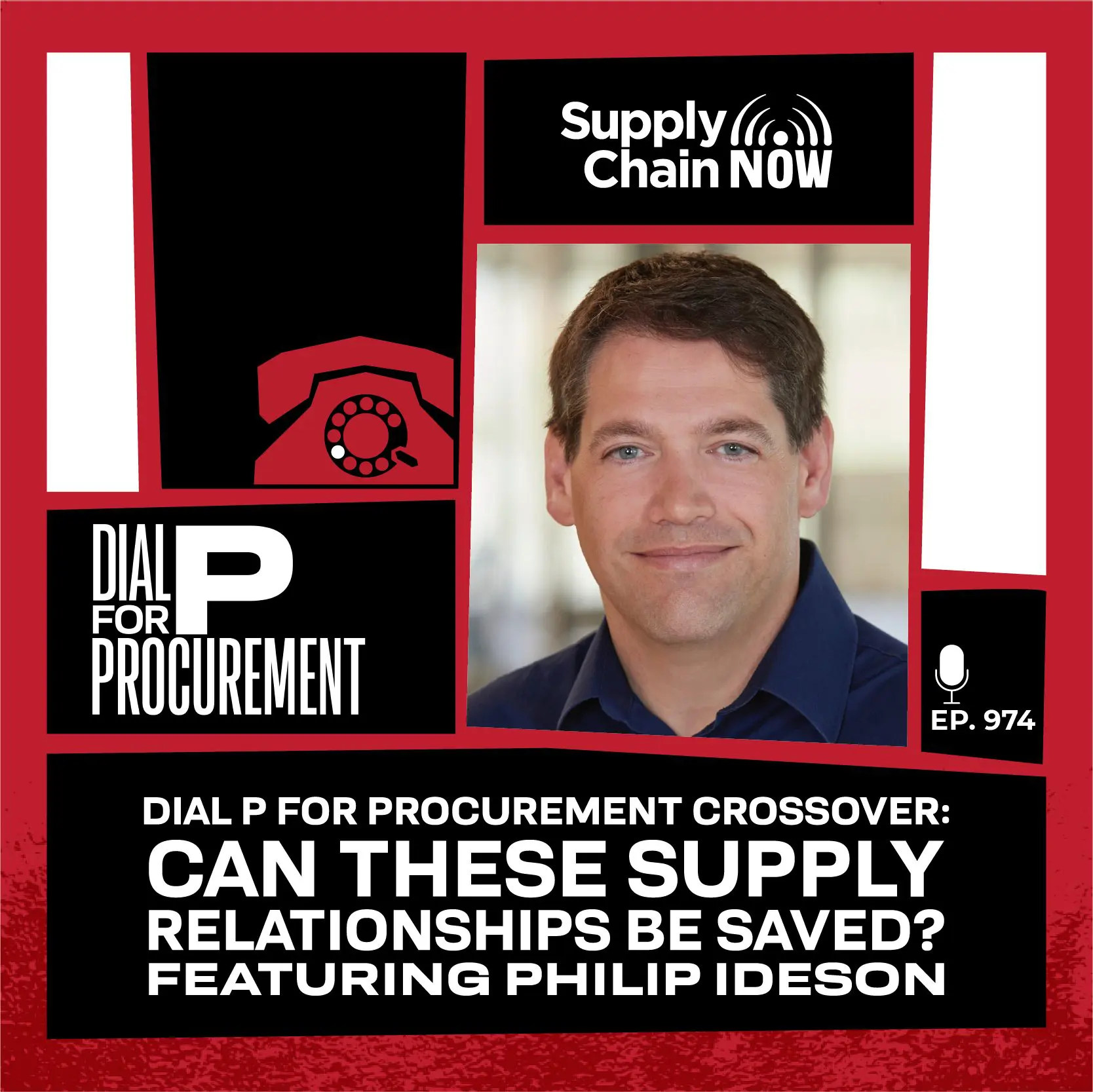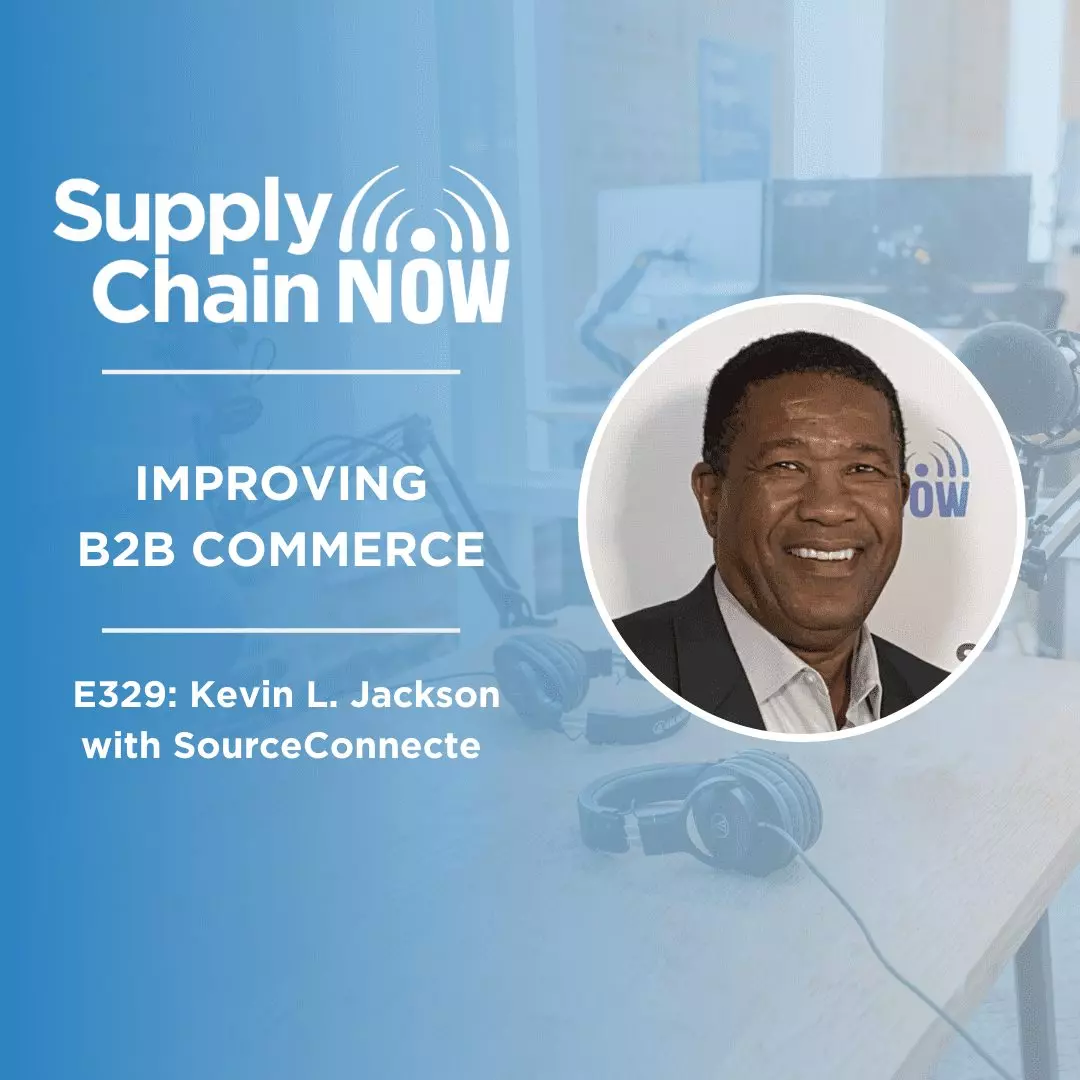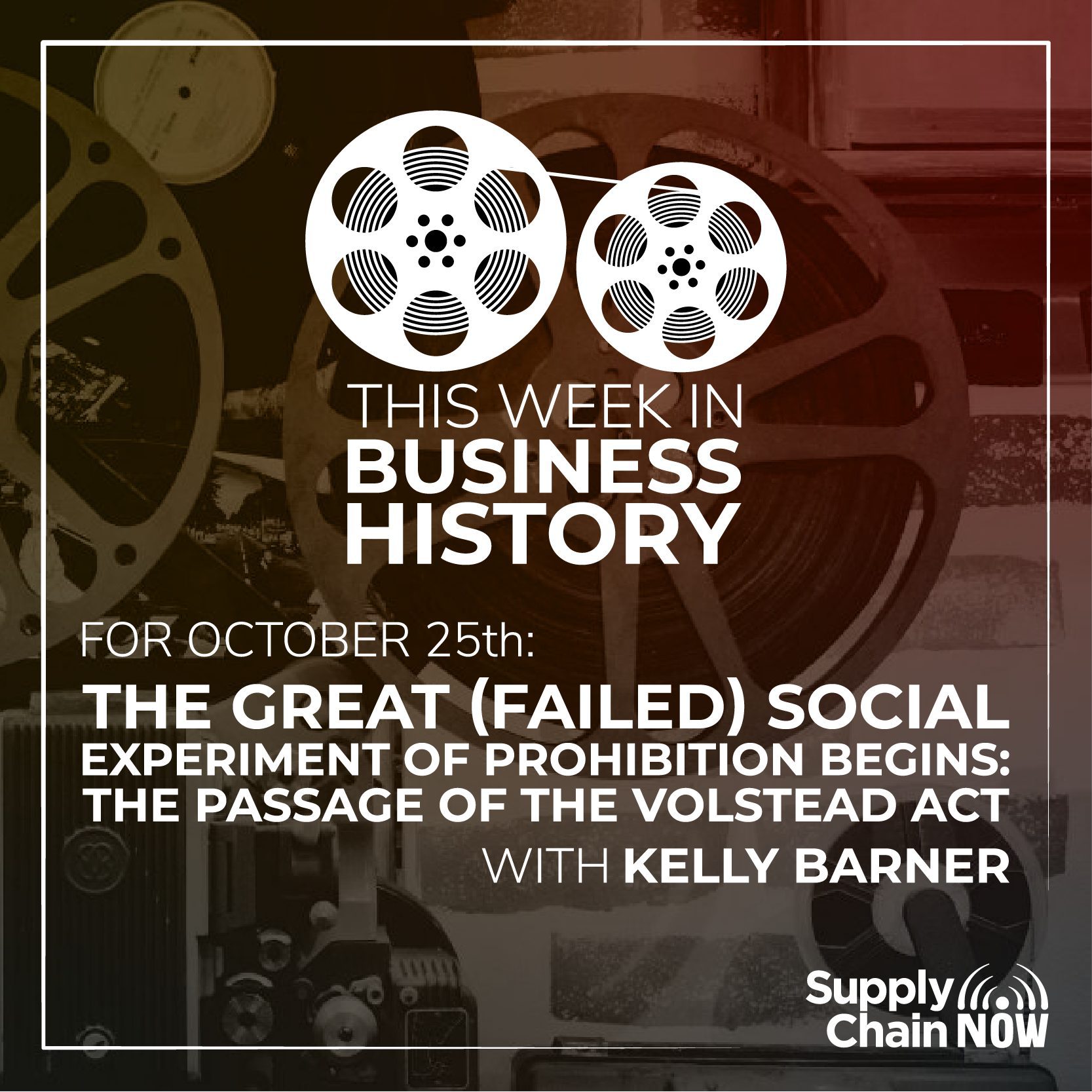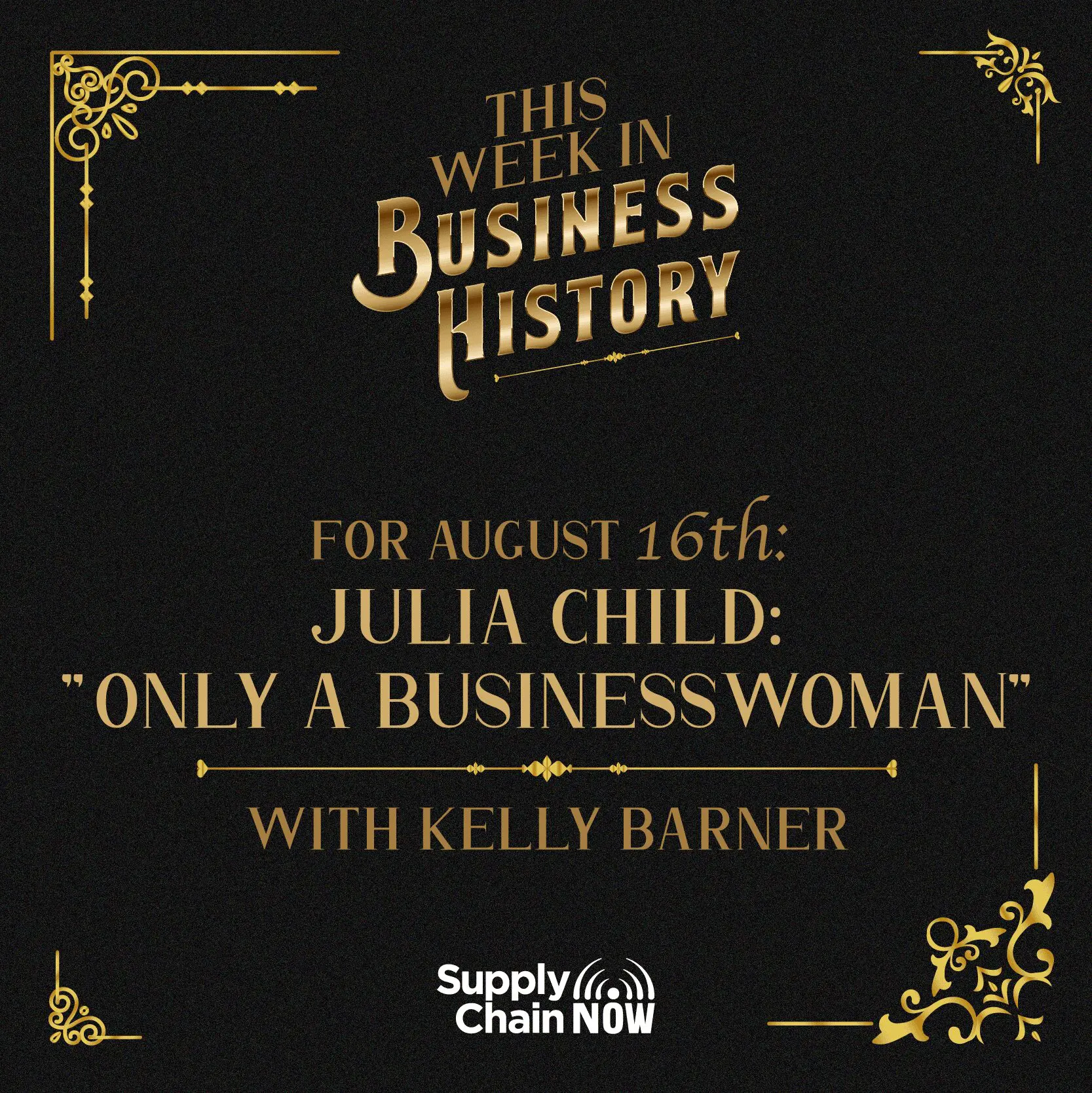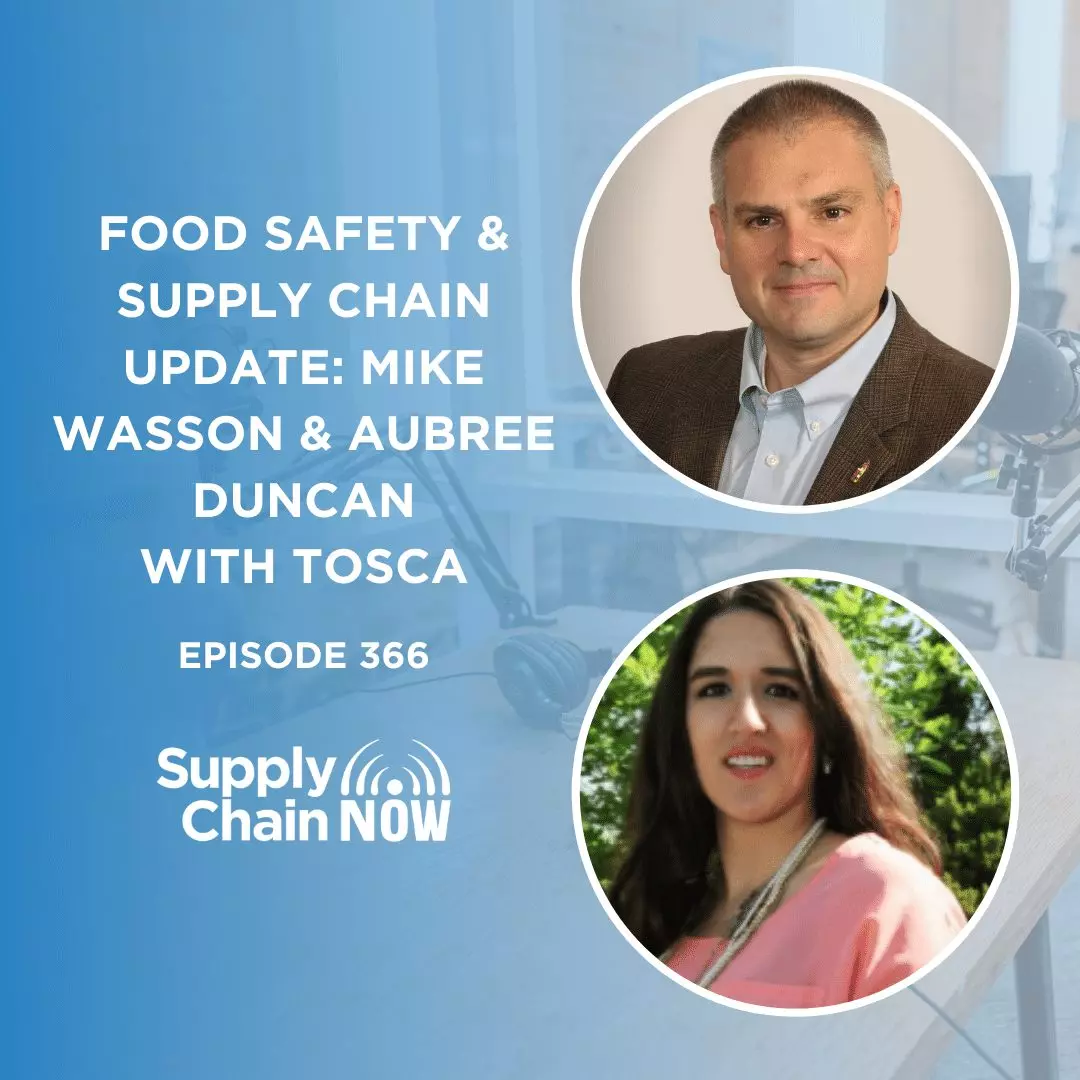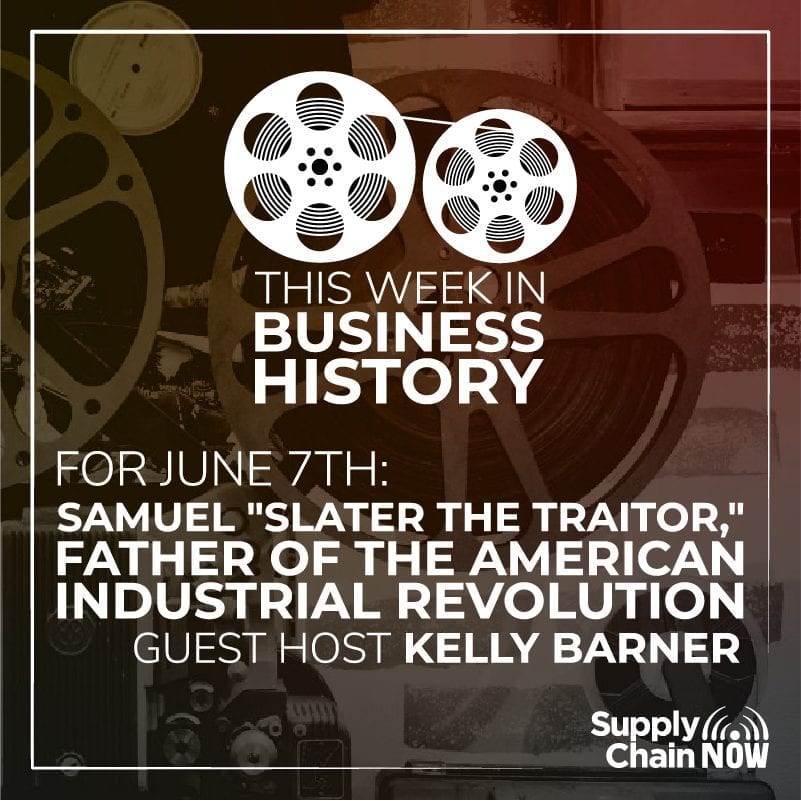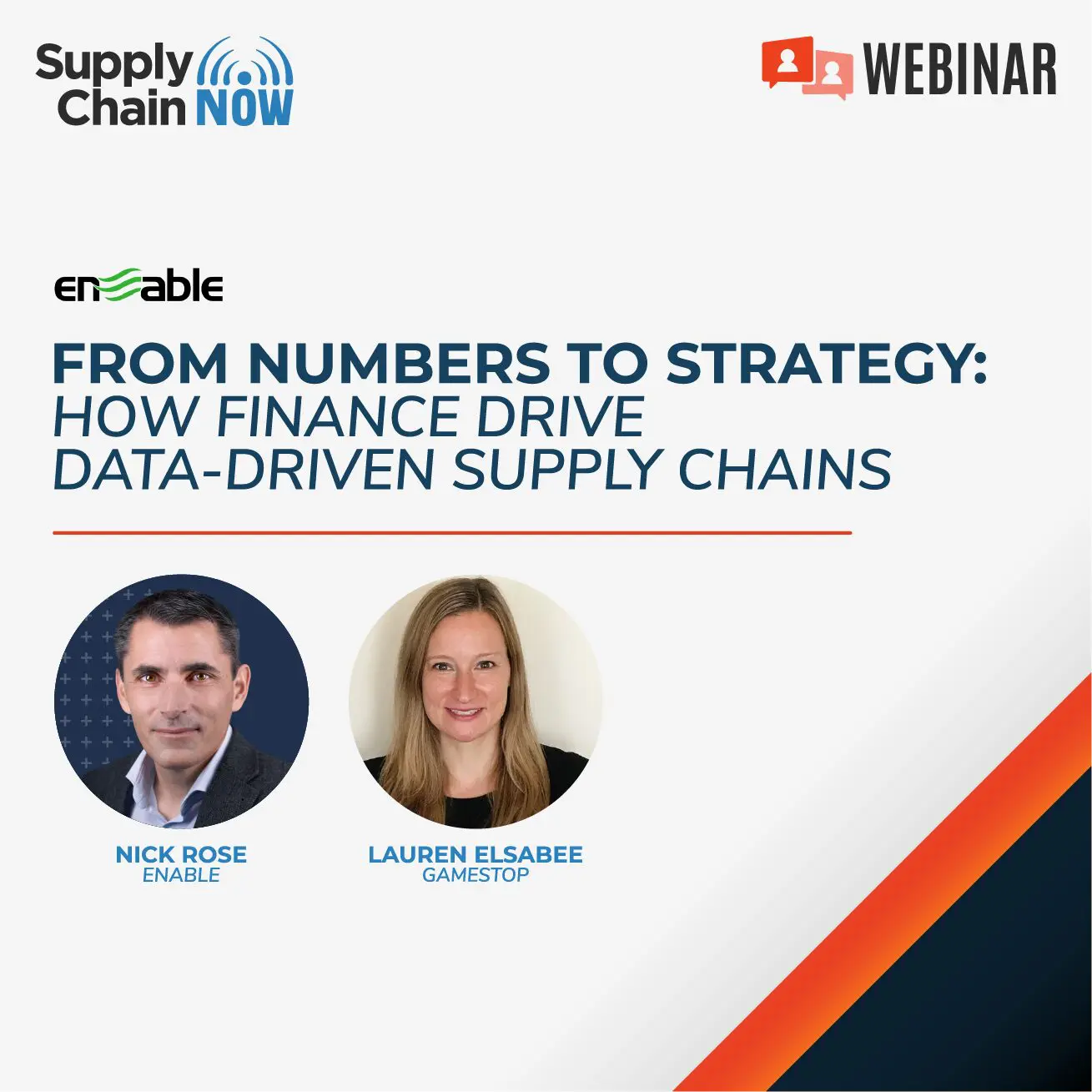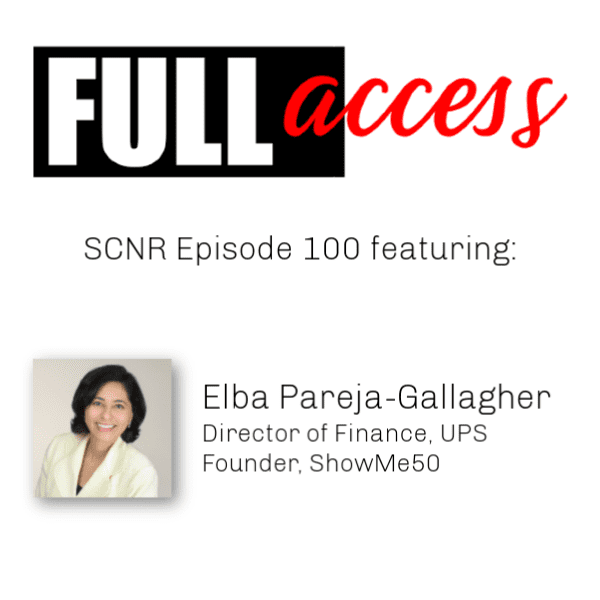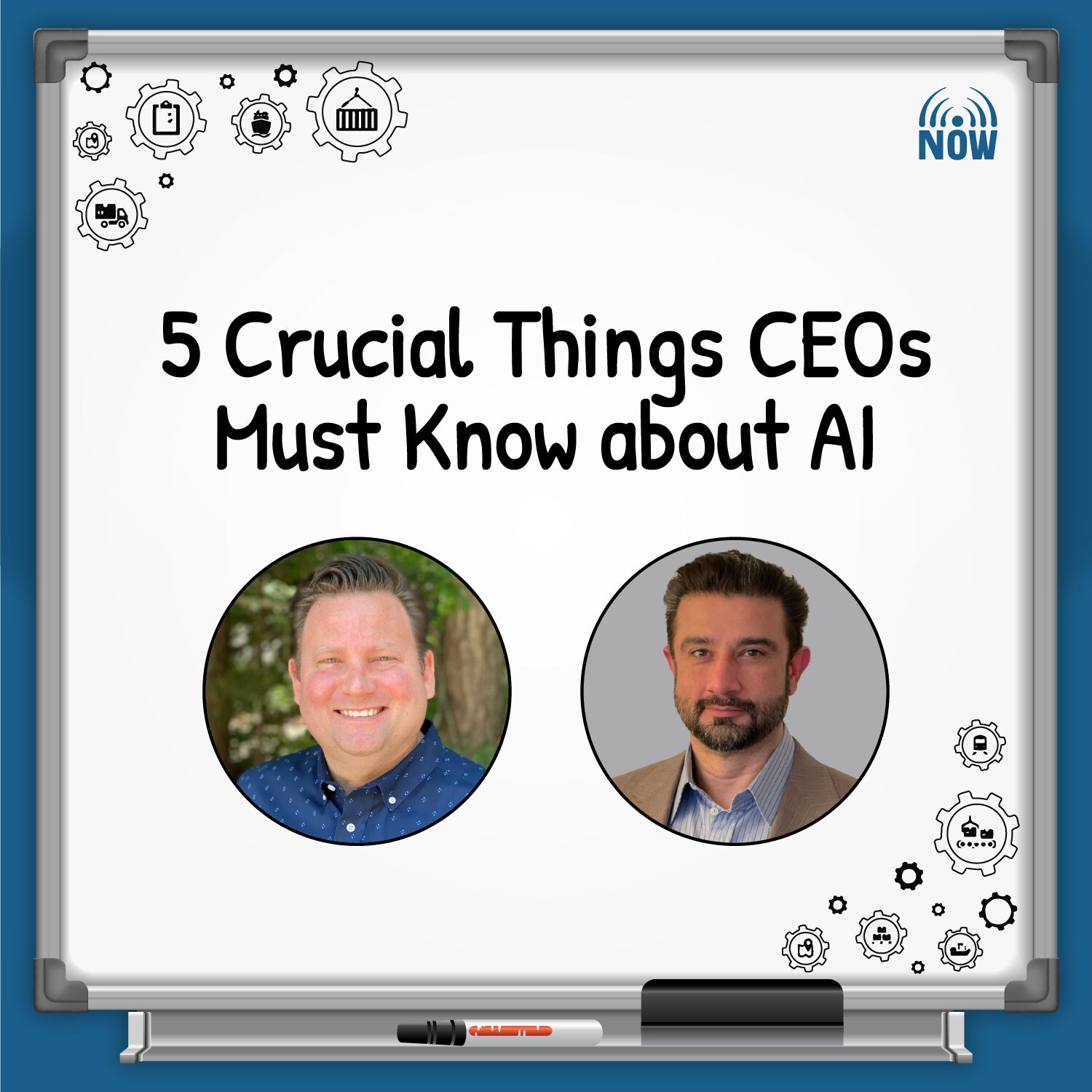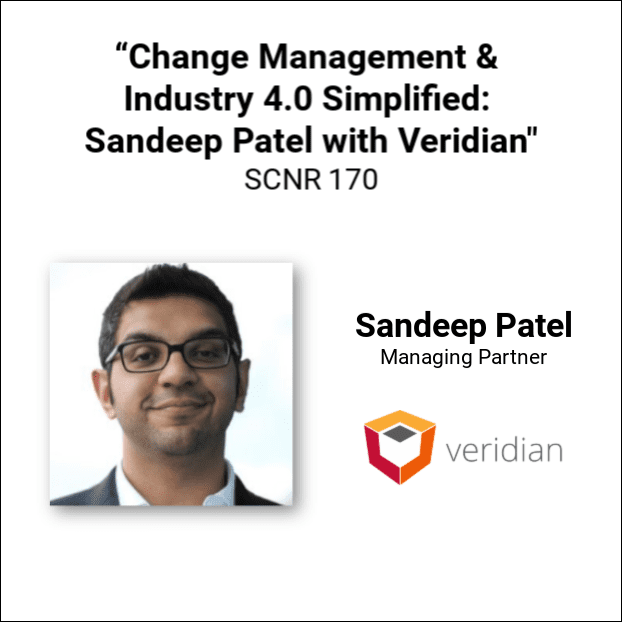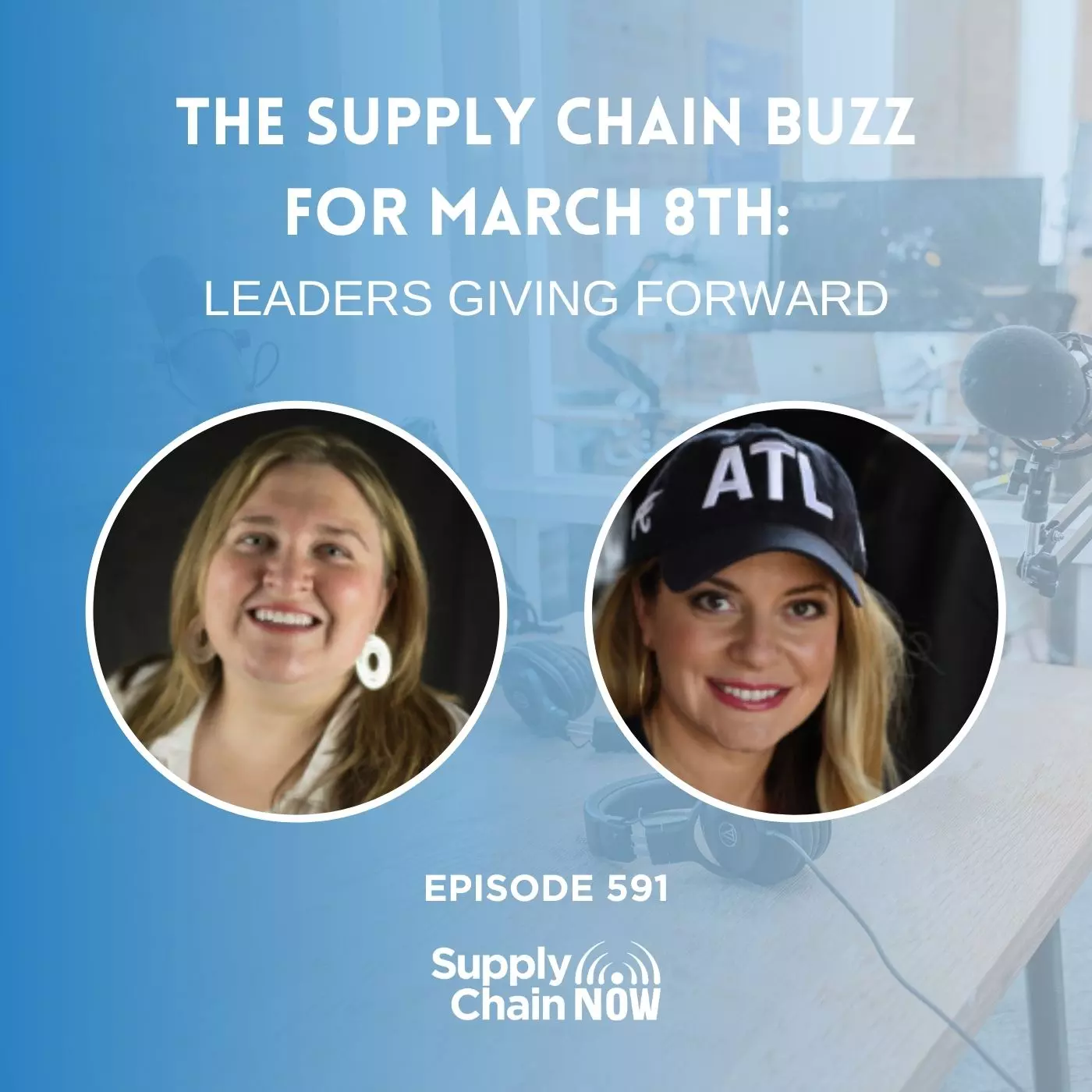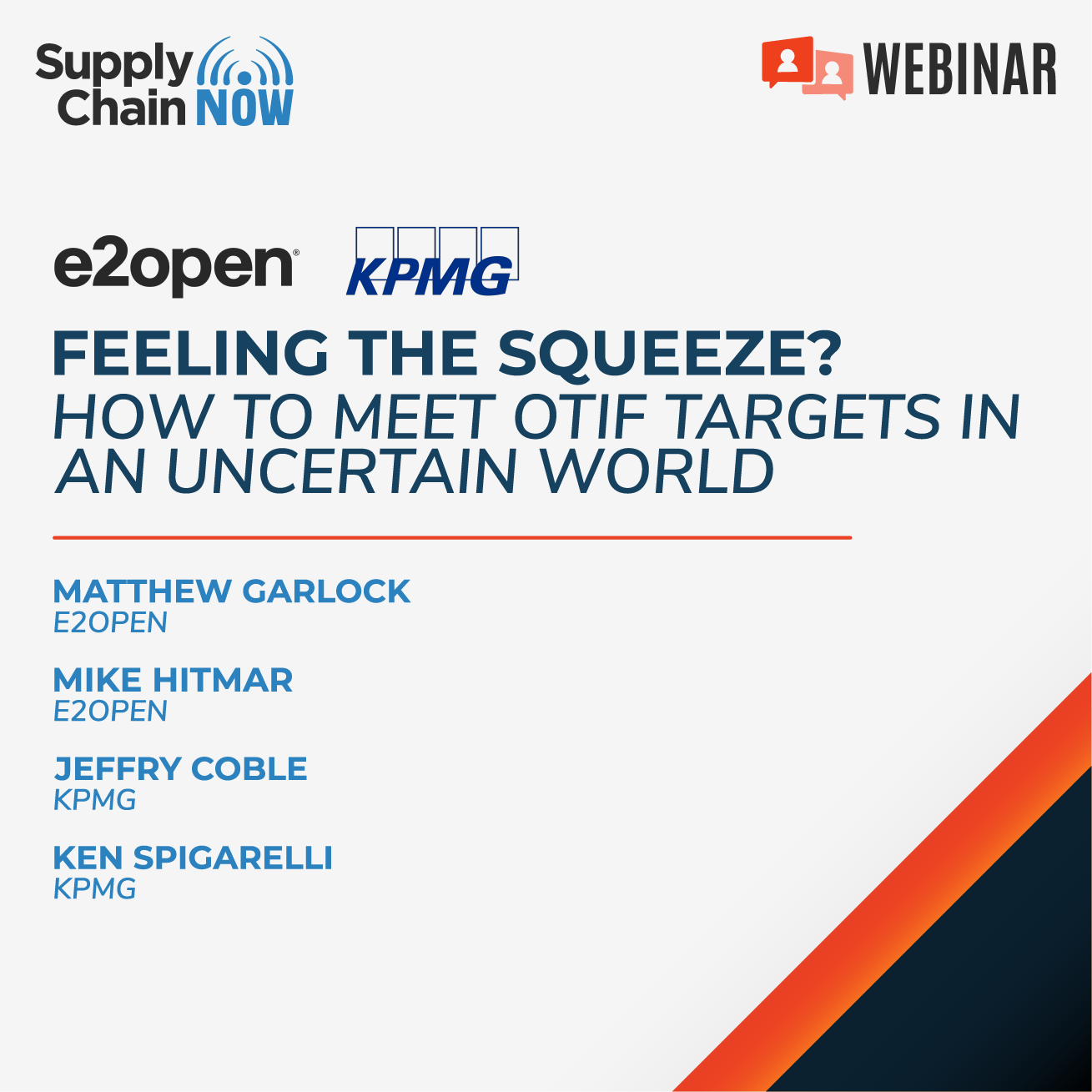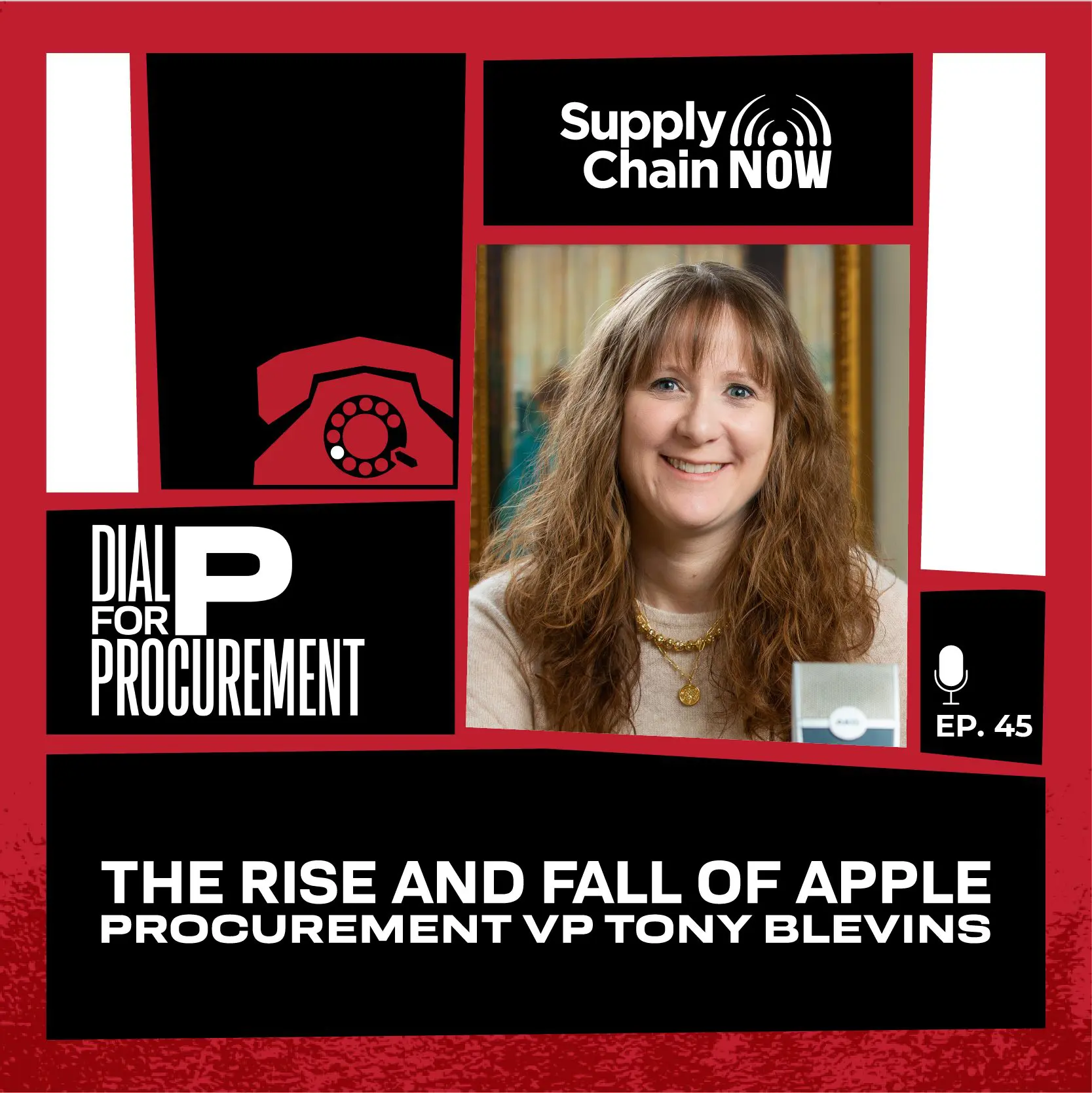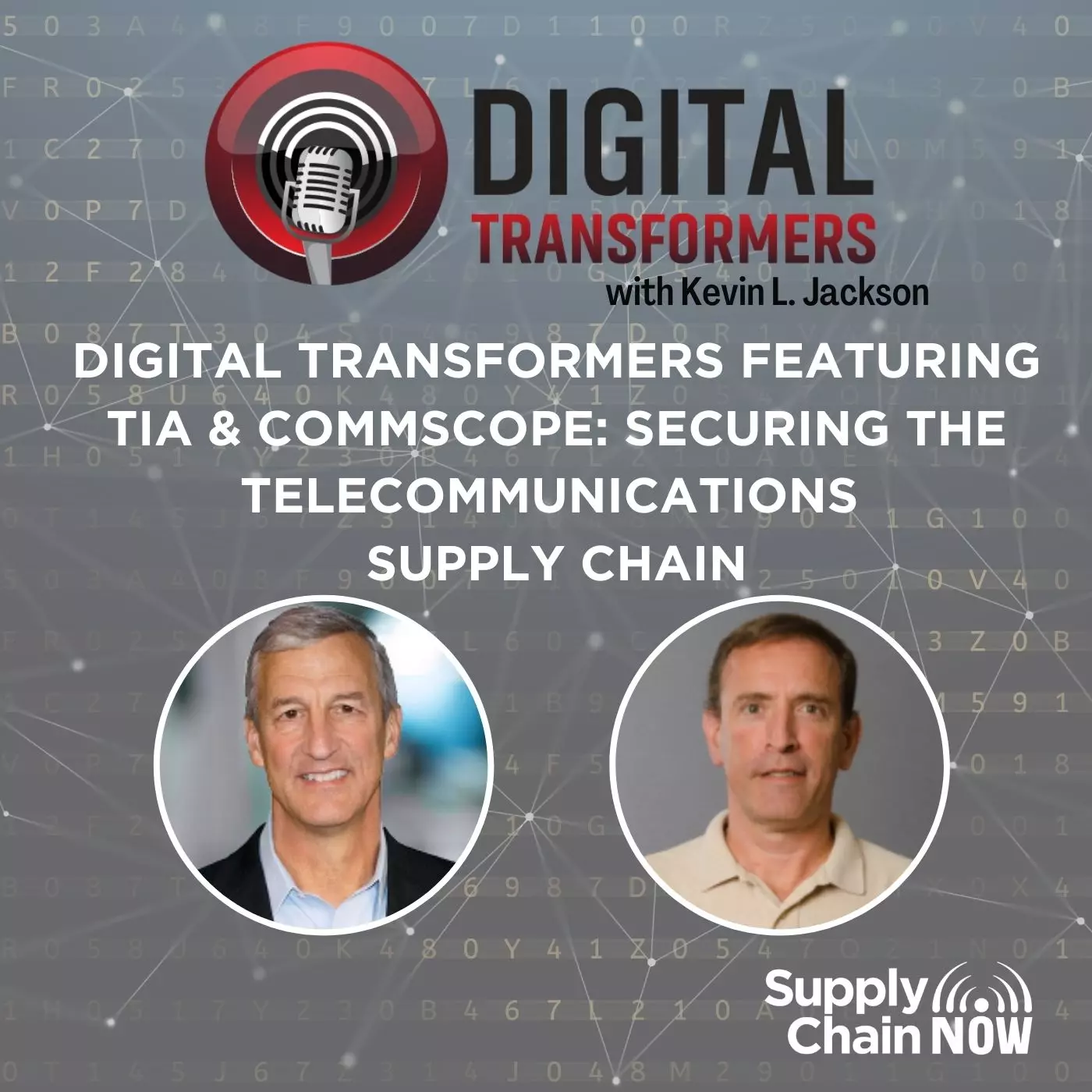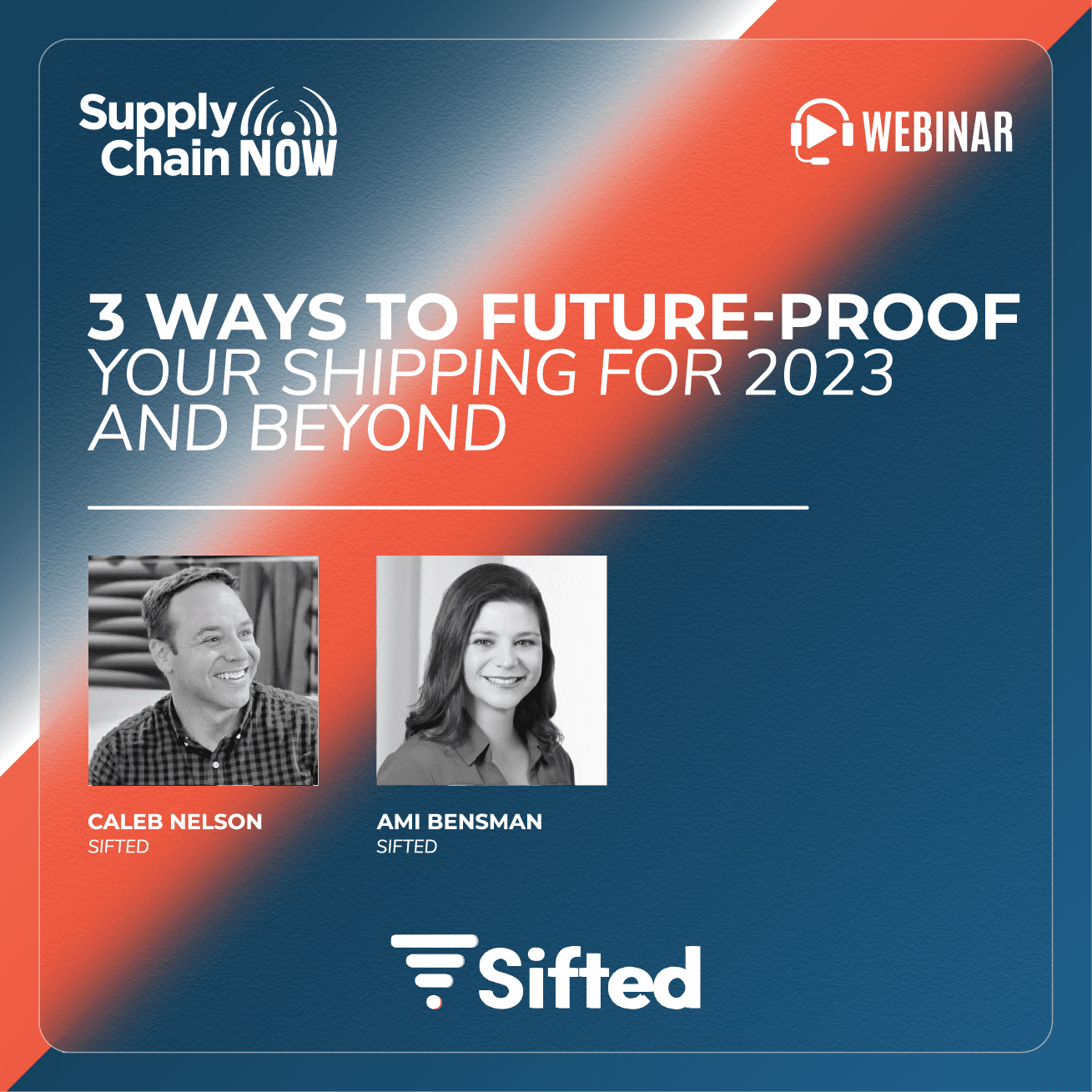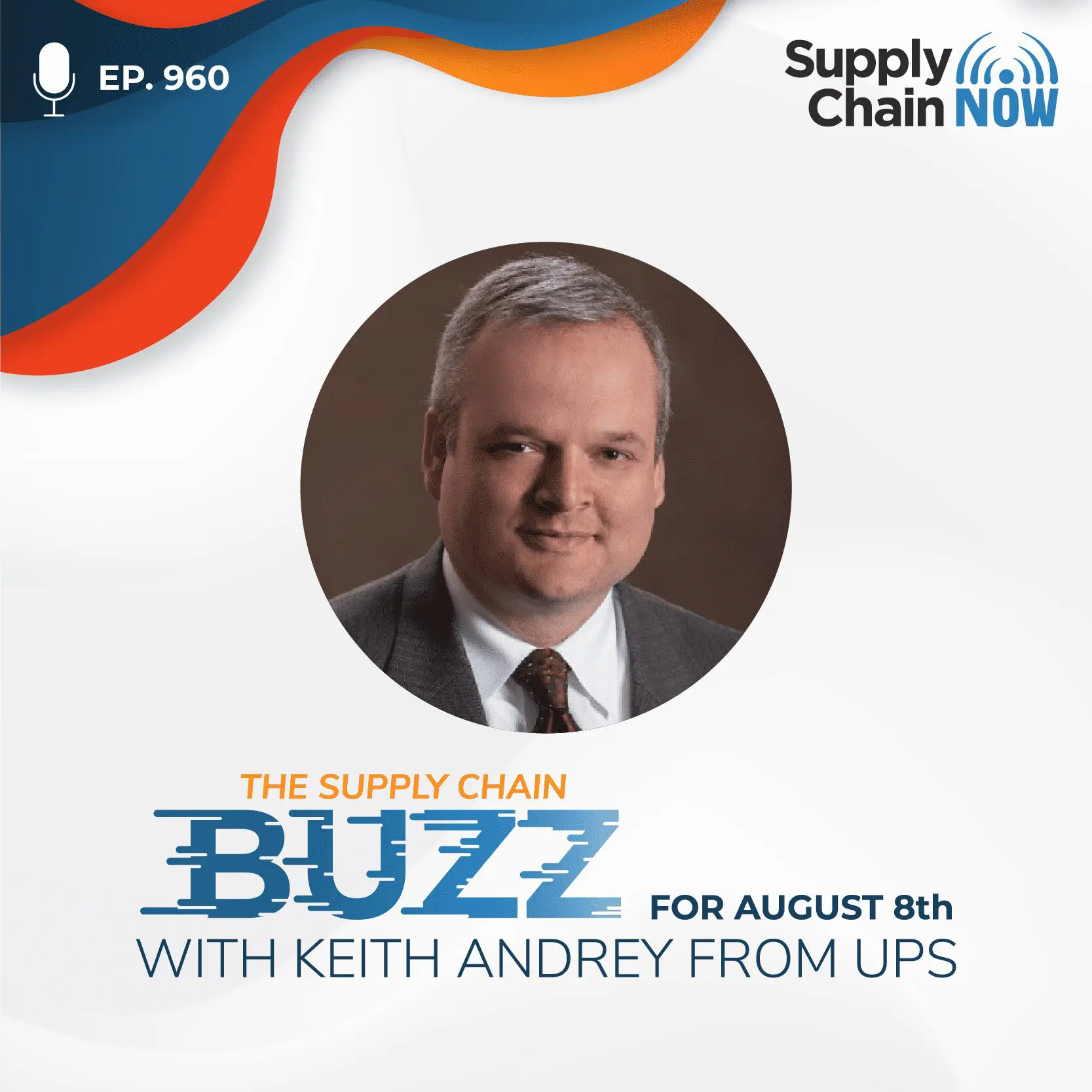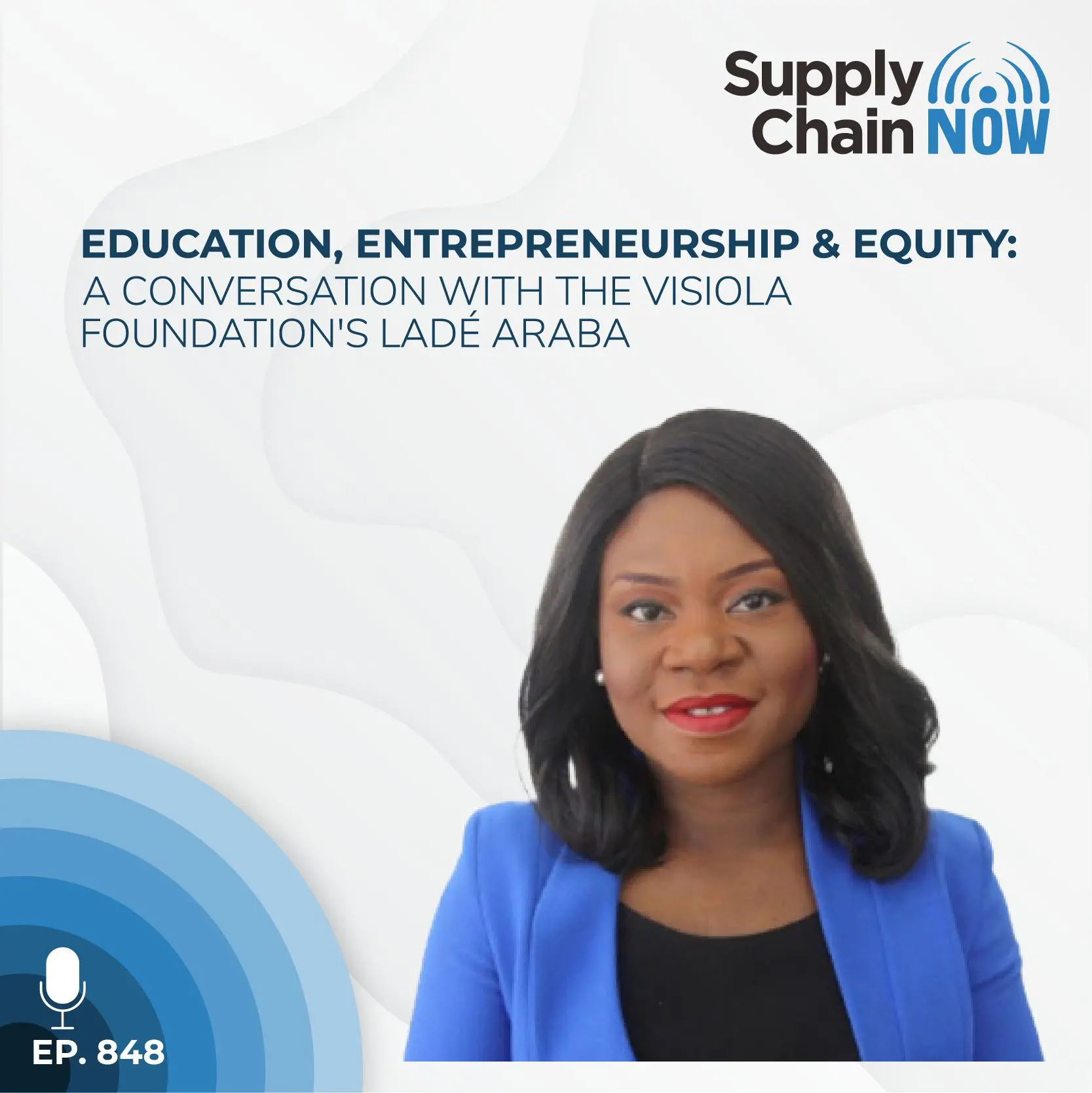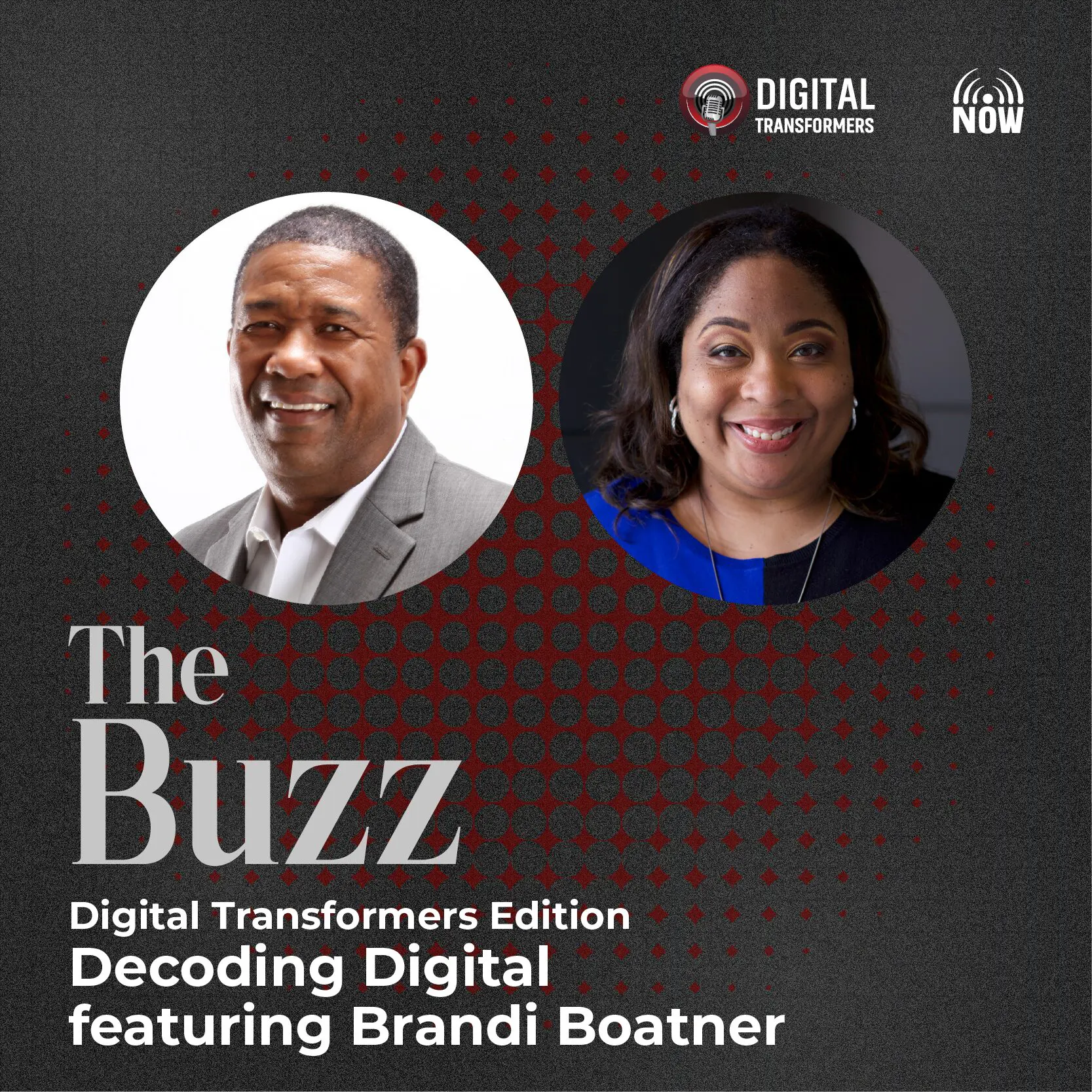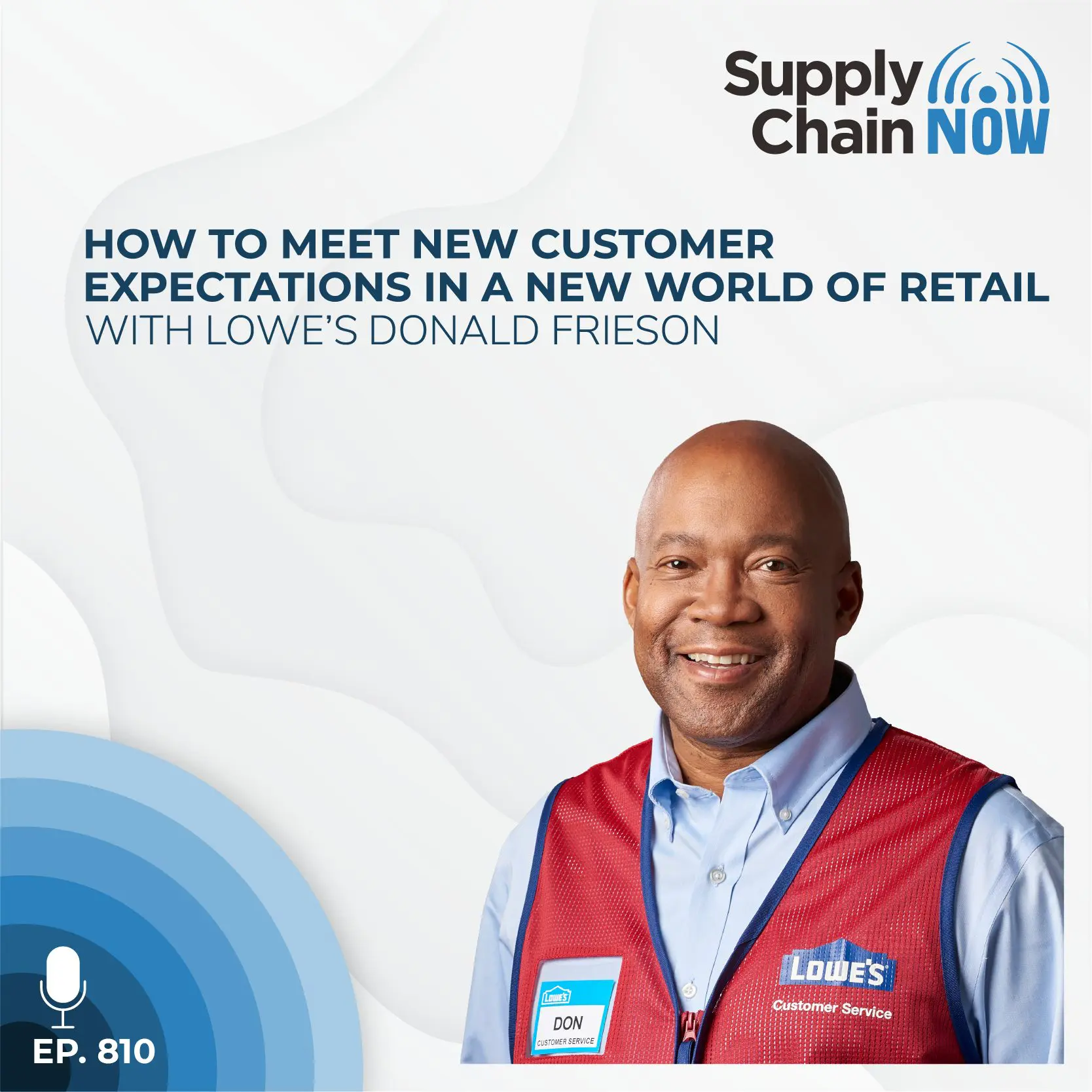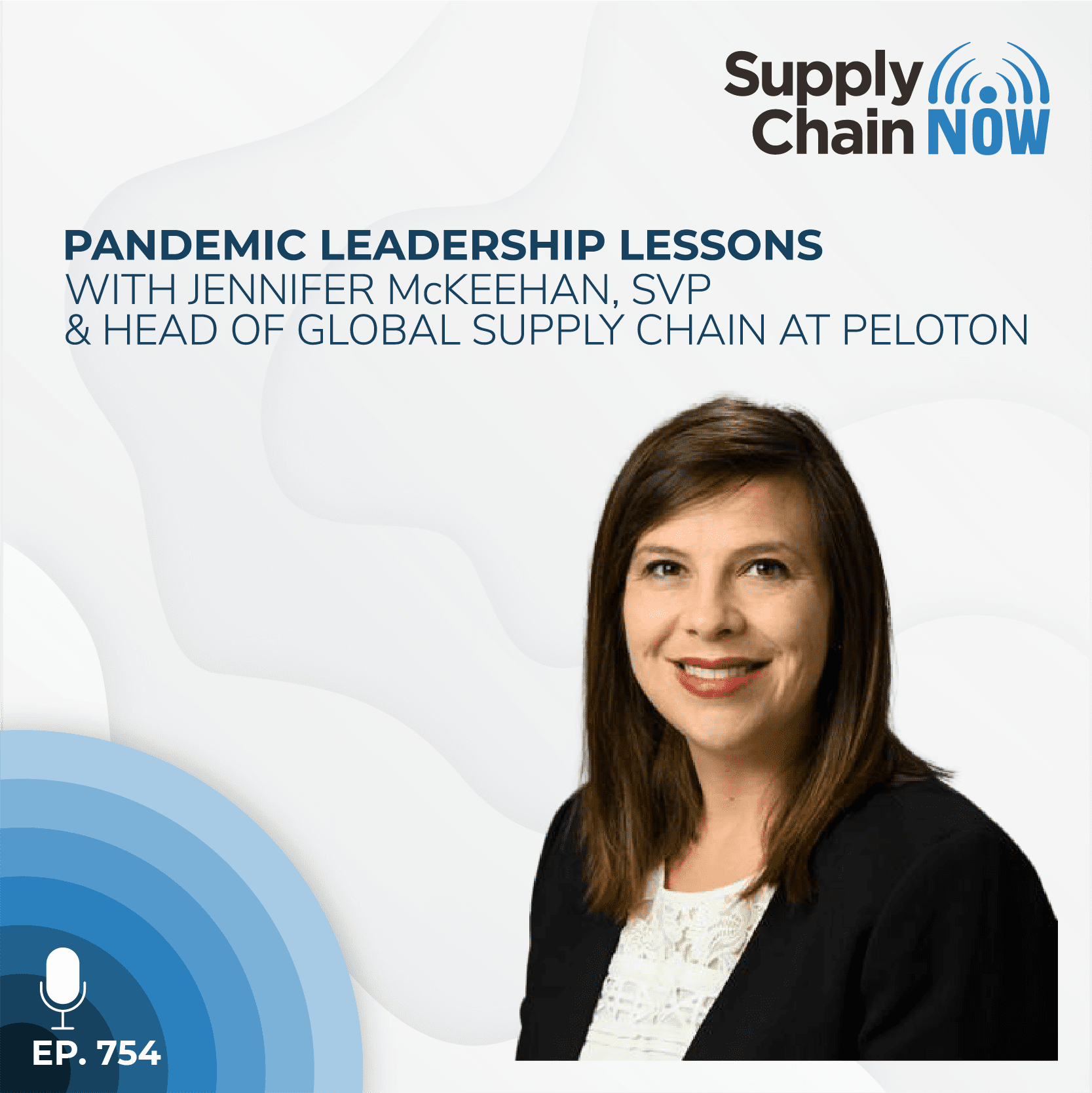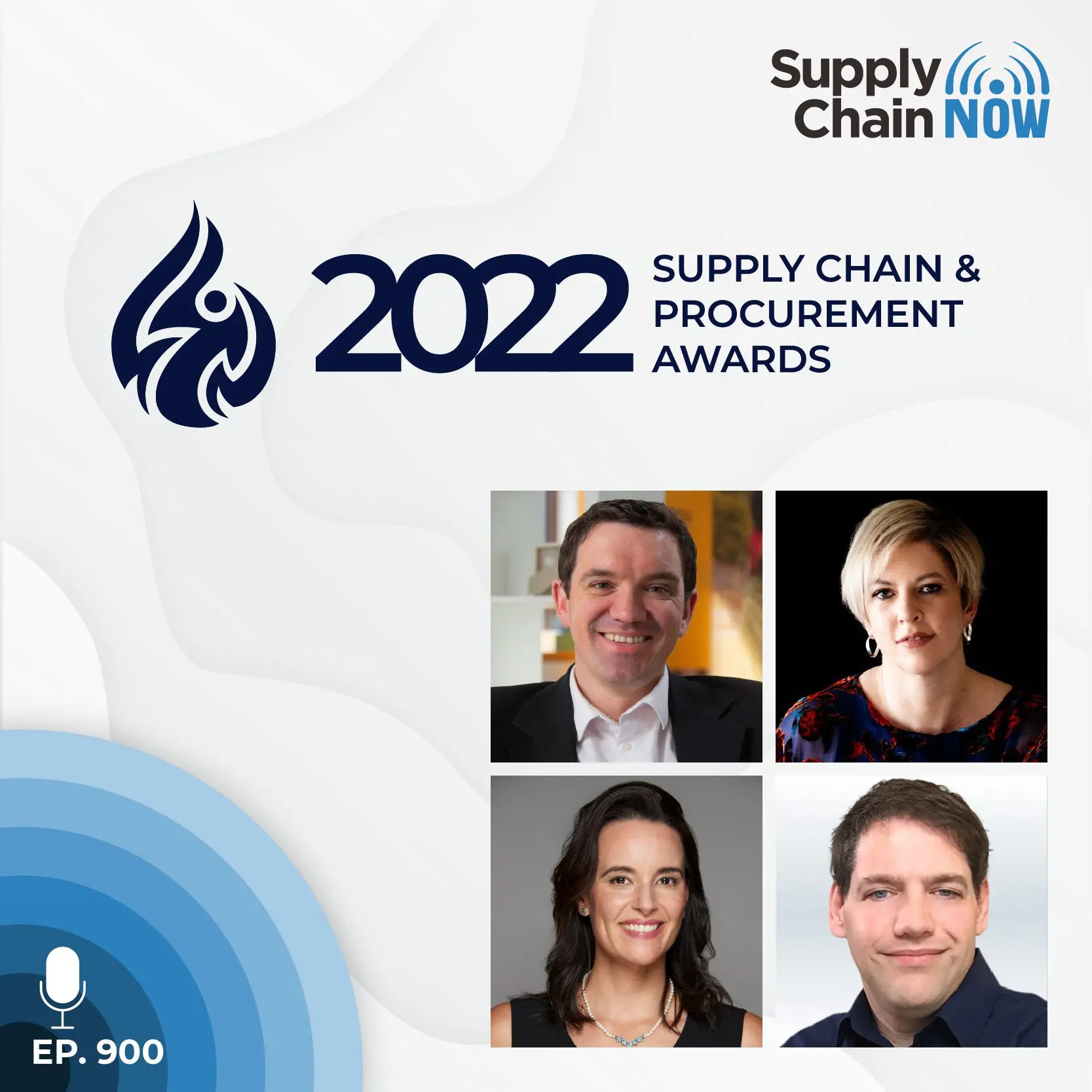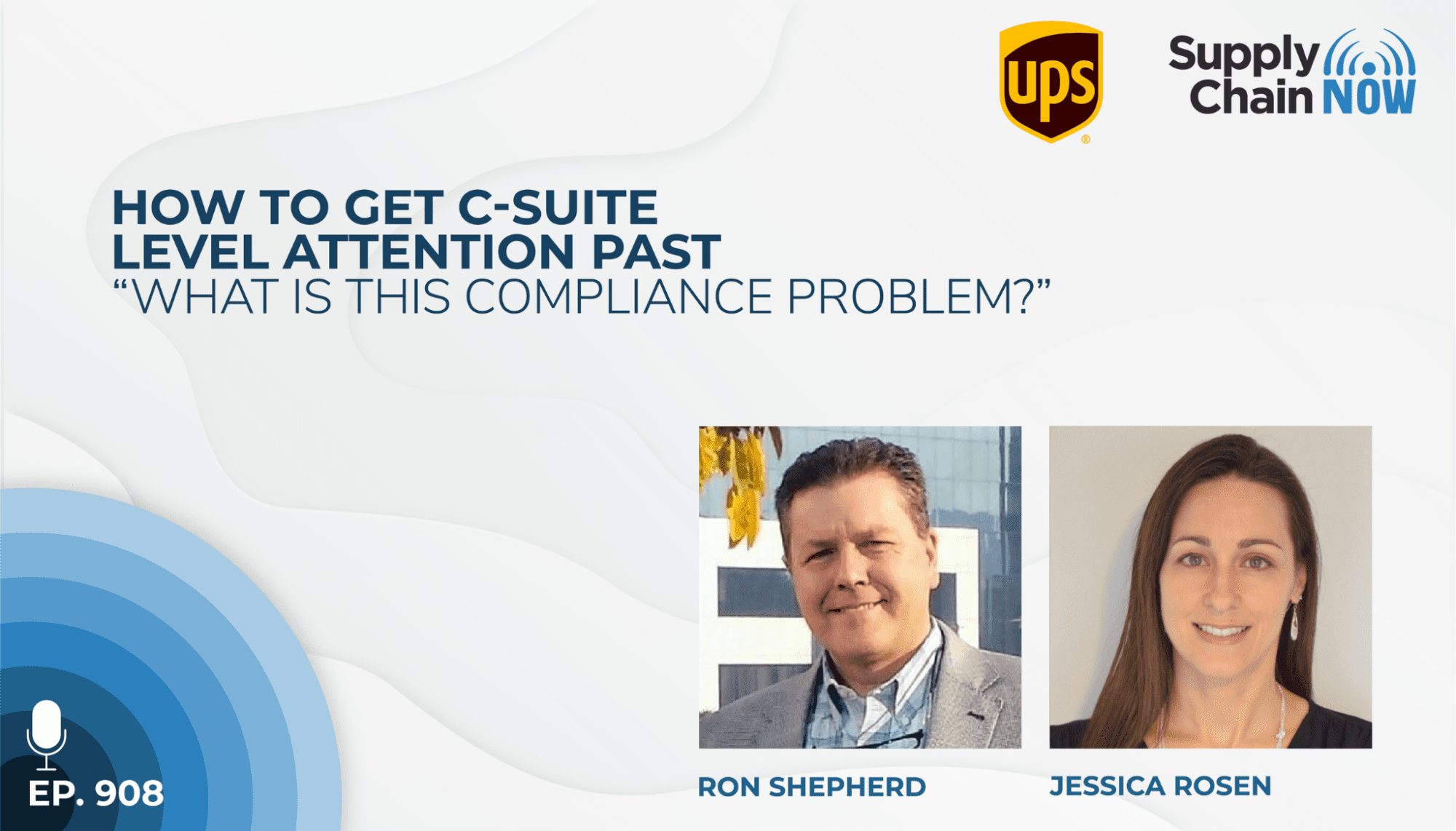
One of the other things we are seeing is the ability of a business to make a change. If you can't source from a certain location, do you have the agility to source from another location, swiftly and quickly change your supply chain, vendors, suppliers, and service providers? We’re starting to see more organizations with contingency plans.
-Jessica Rosen, President of UPS Trade Advisory Services
Episode Summary
Trade compliance can easily be overlooked by the C-suite – especially given the number of competing priorities and supply chain challenges companies must navigate. At the same time, compliance can be a key component in creating resilience when faced with disruptions in cross-border trade.
In a recent Supply Chain Now livestream, Scott Luton and Greg White were joined by Jessica Rosen, President of UPS Trade Advisory Services, and Ron Shepherd, Director of Global Trade Compliance at UPS Supply Chain Solutions.
They took this opportunity to share their perspective on what a robust trade compliance program can do for a supply chain and how to make a convincing case to key decision makers.
• The importance of knowledge and information to a company’s ability to navigate compliance challenges with confidence and agility
• Why outreach and employee engagement are critical to ensuring compliance issues are not managed in a silo
• Keeping messages about compliance consistent and simple will help everyone in the organization absorb and retain key messages
Episode Transcript
Intro/Outro (00:03):
Welcome to Supply Chain Now, the voice of global supply chain. Supply Chain Now focuses on the best in the business for our worldwide audience, the people, the technologies, the best practices, and today’s critical issues, the challenges and opportunities. Stay tuned to hear from those making global business happen right here on Supply Chain Now.
Scott Luton (00:28):
Hey, good morning. Scott Luton and Greg White with you here on Supply Chain Now. Welcome to today’s live stream. Greg, how we doing?
Greg White (00:39):
Doing fantastic. Keeping track of what’s going on the open seas out the window here.
Scott Luton (00:47):
You always do, and you’re keeping your finger on the pulse of our to be named index. What’s the latest?
Greg White (00:54):
There are 17 ships waiting outside the port of Savannah today, only about a half dozen in Charleston, so I’m not sure exactly what’s going on, but an interesting shift of kind of backups there.
Scott Luton (01:06):
Undoubtedly, undoubtedly.
Greg White (01:08):
And you know we expect more as China starts to release some of the goods and ships that they’ve been holding back while they’ve locked down Shanghai and other municipalities.
Scott Luton (01:18):
That’s right. And more to come in 11 with our chief correspondent, Greg White, down at Hilton Head.
Greg White (01:24):
Right, Scott.
Scott Luton (01:25):
So, hey, on today’s show though, folks, we’re going to be talking about a topic that might just be overlooked from time to time by top levels of leadership, trade compliance. However, Greg, as we know, with a solid strategy in place, trade compliance can be a key component in creating resilience against disruptions, all these disruptions in cross border trade. So, today, we’re going to be having Jessica Rosen and Ron Shepherd from UPS joining us to share a lot more. Greg, should be really intriguing, but also a highly informative discussion, right?
Greg White (01:55):
Yeah. It’s a great way to learn how not to hurt yourself. I mean, I’ve even read an article recently about a federal agency, federal prison industries or Unicore, that inadvertently violated federal law in terms of trade compliance by not consulting their general counsel or having the information readily available. So, it can happen to anybody.
Scott Luton (02:19):
That’s right. And not knowing—ignorance is no excuse, right? Ignorance is no excuse.
Greg White (02:25):
That’s right. That’s what they told us in second grade, right? Ignorance of the law is no excuse.
Scott Luton (02:27):
That is right. It’s almost like that old NBC campaign, the more you know, we need one of those graphics, the more you know with the stars shooting across the screen there. Well, folks, stay tuned. We’ve got a great discussion. We’re all going to learn a lot more from pros that know all about trade compliance. But before we dive into that conversation, we want to say hello to a few folks, winner, winner, chicken dinner, the very first person to show up today, Greg, was Timothy Archer, right?
Greg White (02:54):
Yeah. I wonder—I didn’t even know he could arrive as early as he did, so clearly, he takes that old rule, if you’re five minutes early, you’re already 10 minutes late, very seriously.
Scott Luton (03:04):
Very. Well, Timothy, let us know where you’re tuned in from. Clearly, you’re connected via LinkedIn, one of the five channels we stream on at the same time, but let us know what part of the world that you are tuned in from. Of course, we’ve got Catherine Hints, and Chantelle, and Amanda behind the scenes helping to make production happen. Appreciate what they do every day. And, hey, we got Michael Avra back with us here today. Michael, Greg, I think is as big of a fan of The Wall Street Journal as I am. I don’t know if you get—and, Greg, you may get them as well, the logistics report comes out every morning at 7:00 AM, every weekday. That’s great information. And of course, I still get a paper version, the weekend version, which I’m a big fan of.
Greg White (03:48):
Wow.
Scott Luton (03:49):
Yeah, really good stuff. But he says-
Greg White (03:51):
There’s lots of valuable information in there. I’m just having this—look, I can be a little weird about these things. I wonder why we need to pay for a subscription to somebody who makes like $40 million a year in advertising. So-
Scott Luton (04:06):
Excellent point, excellent point. I’ll take it up next time, The Wall Street Journal.
Greg White (04:09):
I keep shouting into the forest about that.
Scott Luton (04:12):
Well, the good news, it’s a very eclectic read, too. That’s why I like the weekend version. Anyway, Michael talks about, per The Wall Street Journal this morning, the port of Savannah said, one dock was out of service, so there you go.
Greg White (04:24):
There it is right there. That’s a great heads up. Darn it. Now, I don’t need to go down there and do some investigation on River Street.
Scott Luton (04:31):
And you don’t want Greg coming down, do an investigation on any part of your operation, but I kid, I kid. Hey, Gene Pledger is tuned in with us here today. Gene, I appreciate your note the other day, Gene of Northern Alabama. Gene also, of course, teaches the next generation, what we call the now generation, already doing big things in supply chain. Tim said he’s in Blaine, Washington. Ever been there, Greg?
Greg White (04:54):
I don’t know.
Scott Luton (04:55):
Okay. Yeah.
Greg White (04:56):
I’m not sure exactly where it is. I used to work for a company that had a lot of presence there.
Scott Luton (05:02):
Really?
Greg White (05:03):
But I don’t recall Blaine.
Scott Luton (05:04):
Yeah. Well, Timothy, you’re going to fill us in. You’re now the new resident historian of Blaine, Washington here at Supply Chain Now. Michelle is tuned in via LinkedIn. Great to see you, Michelle. Let us know where you’re tuned in from. Rowit is tuned in from India, he’s back with us, via LinkedIn. Great to see you here. Of course, Chantelle King and the aforementioned production team doing great things. Mike tuned in from Birmingham, Alabama via LinkedIn. Mike, great to see you. And welcome everybody. I know we can’t get to everybody here today, but so glad you’re here. Greg, are you ready?
Greg White (05:35):
Yes, Scott.
Scott Luton (05:36):
We’ve got a full plate to talk through today with our guests. Are you ready to bring them in?
Greg White (05:41):
Yes, as you say, with no further ado.
Scott Luton (05:43):
With no further ado, let’s welcome in Jessica Rosen, President of UPS Trade Advisory Services, and Ron Shepherd, Director of Global Trade Compliance at UPS Supply Chain Solutions. Jessica, how you doing today?
Jessica Rosen (05:56):
I’m great this morning. Thank you.
Scott Luton (05:59):
Great to see you. And, Ron, great to see you as well.
Ron Shepherd (06:01):
Thank you very much. Glad to be here. Thank you.
Scott Luton (06:03):
You bet.
Greg White (06:04):
Welcome aboard, guys.
Scott Luton (06:05):
You bet. And by the way, Greg, I see our friend, John Perry, is tuned in, so, John, great to see you here today and you’re with us yesterday as well. So, before we get into the heavy-hitting with our guests here, Jessica and Ron, today, folks, is National Wine Day. National Wine Day. And there’s a great little historical nugget, I’ll save that for a later time, y’all check that out. But I want to start, and, Jessica, I want to start with you. National Wine Day, we all have to, we all must do our celebration, right? So, it’s responsibility. What is your favorite wine or adult beverage, Jessica?
Jessica Rosen (06:36):
Well, I’ll take that responsibility very seriously, so from a wine standpoint, I like a Cabernet, but a favorite beverage of mine would really be vodka on the rocks with some lime. Nice. That’s going to be it for me.
Scott Luton (06:50):
And is there a favorite vodka?
Jessica Rosen (06:52):
A Tito’s or Keter One.
Scott Luton (06:54):
Tito’s or Ketel One, both excellent, excellent choices. So, Ron, same question for you. Favorite wine or adult beverage?
Ron Shepherd (07:03):
I would say, well, I’ve got, adult beverage would be a dirty Ketel One martini, but I used to make wine when I lived in New Jersey, so homemade wine would probably be the best wine I would want to drink, and it’s probably the only wine that I drink, is homemade wine.
Scott Luton (07:23):
Okay.
Greg White (07:24):
Did they do a show about you called Boardwalk Empire, by any chance?
Ron Shepherd (07:31):
A couple of my friends back in Jersey.
Greg White (07:33):
Yeah.
Scott Luton (07:34):
We opened up the can of worms that is Ron in New Jersey way too late. We should have uncovered that much earlier, Ron. A lot more stories there.
Ron Shepherd (07:43):
You wouldn’t have invited me.
Scott Luton (07:44):
Well, great selections. I’m a big fan, back to your answer, of a dirty martini, extra olives, extra dirty, and I like it up, rather than the rocks diluting it, making it watery. Greg, how about you?
Greg White (07:57):
So, I have a very good friend who’s a very educated wine connoisseur, so I have couple of answers. My all-time favorite is called Clos Erasmus. It’s a priorat, which is a Spanish wine, and, as he told me, and I believe him, it’s the best wine I will ever drink. And since he paid for it, it’s probably is unquestionably the best wine I’ll ever drink. Lots of everyday wines. So, my people are from Malbec country, so of course, I’m very partial to Malbec.
Scott Luton (08:25):
Well, I learned a lesson early in life, my first year of college, that the best taste in beer in the world is that that it’s cold and free, so along those lines. But, folks, let us know, it looks like Michael is also weighing in, and Michael and Jessica have this in common, “Tito’s and lime is the way to go”. I’m with you there, Michael. Kedara is tuned in from San Jose via LinkedIn. Great to see you, Kedara. Brett, good morning, via LinkedIn. Let us know. It looks like, I’m going to guess, Greg, it’s either the upper northwest or that might be like the Massachusetts area. Those are my guesses.
Greg White (08:57):
Yeah. It’s hard to tell. That picture’s kind of small at least in my monitor. So-
Scott Luton (09:02):
Brett, let us know.
Greg White (09:04):
Yeah. I think that’s the same, so that would be northwest for sure, but if it’s not, can anybody-
Scott Luton (09:11):
Now, Ron, Jessica, quick guesses where Brett might be from? No? Okay.
Jessica Rosen (09:16):
No guesses.
Scott Luton (09:18):
We’ll all weigh in on Northwest, upper northwest. And by the way, Timothy’s giving us a little bit of geography. Blaine is along the north end of the I5 corridor by the US and Canadian border. Okay.
Greg White (09:27):
Oh, that is up there.
Scott Luton (09:28):
A lot of good stuff there.
Greg White (09:30):
Okay.
Scott Luton (09:30):
It is.
Ron Shepherd (09:31):
Blaine’s the last stop before you cross the border or go to Vancouver.
Greg White (09:33):
Right. Exactly. And they still call it The Five there, right? Once you cross the border, it’s not The anything.
Scott Luton (09:43):
Man, I feel like I’m becoming a honorary resident of Blaine, because I’m in the know with all this insider information, but-
Greg White (09:49):
The whole The thing comes from California and it’s worked its way up the coast, The Five, The 405.
Scott Luton (09:55):
The more you know, the more you know, the more you know, right? Okay. So, let’s move on though. We’ve got two experts in supply chain, but especially trade compliance. And I think, folks, break out your favorite notebooks, we’re going to learn a lot from Jessica and Ron here today, and y’all keep your comments coming. Looks like Tim is a big fan of coffee, black coffee, and Anton Vernice, big fan of Anton Rupert Merlot. Okay. We’re going to learn more about that. But let’s talk trade compliance. And before, we need to do some level-setting, and I want to start with Jessica here. When it comes to the key pillars of a successful compliance program, let’s start there. There are three of them from my little homework I’ve been doing, Jessica, let’s start talk about the first pillar.
Jessica Rosen (10:41):
So, when you’re thinking about trade compliance, information reign is king, right? Knowledge and information, making sure that you have all of the key parties educated, and the right folks empowered to make decisions and to be informed. So, when you talk about knowledge and information within businesses that want to conduct trade compliance in the most efficient, effective, and compliant way, they really need to rely on trade experts, have the expertise in house, and also lean into technology from a certain standpoint, right? If you have the right backup, that’s really going to support all of the other pillars and kind of be part of that one of three pillars of foundational information. So, a WMS is always ideal from a larger organization that has complex multinational supply chain issues. And that, really, for me is kind of number one, right? Number one pillar is knowledge and information. How else do you make informed decisions? Being nimble and agile as business changes. Look at the trade today. It’s all over the place, right?
Greg White (11:46):
Yeah, and changing frequently, and it can change yet again in the fairly recent future, right?
Scott Luton (11:53):
Well, kind of what you were just saying, Jessica, and where Greg started the show earlier, we all have plenty in our blind spot, and that can bite you. And also, as we’ve established, Greg, time and time again, informed individuals make informed decisions, and oftentimes, much more timely decision. So, Jessica, I love that first pillar, information and knowledge. Ron, talk about the second pillar.
Ron Shepherd (12:17):
So, engagement is the second pillar of our conversation here today, and it’s really vital to the success of the compliance program. Going back to Greg’s example, I think it was Department of Corrections or something like that where they weren’t even in sync with what their requirements were. And one of the biggest reasons for that is because the people who are responsible for trade compliance, sometimes, aren’t as engaged with the broader organization to help them understand the aspects that they need to follow in order to navigate around some of these hurdles of trade compliance or the things that are in place to manage it compliantly. And so, what I see often are a couple different things and it’s harder now with work from home and remote workplaces to be engaged with your partners.
Ron Shepherd (13:08):
But I think if you really understand the goals of today, what are we trying to accomplish with our organization? What are the things that are happening right now? And if the compliance team is engaged with those individuals and understand the impact that the compliance program has on their ability to do that, to do whatever they need to do. So, relief aid, in some cases, getting materials sourced from different places because of WRO rules or whatever. So, understanding the organization goals, and what they’re trying to accomplish today, and the impact that the compliance program has on those goals is really vital. So, the second part is just the true engagement. So, how do you get—especially now with being remote in some ways and being in different parts of the country, how do you stay engaged to really understand what your organization’s trying to do, yet you have to do a lot of outreach and you have to make sure that what they’re trying to do is not go around you and go around the trade compliance team. So, if you manage trade compliance and you have a team of people, it’s trying to get them to be part of conference calls of team reviews, be part of meetings, that kind of stuff, and the networking, so that they know that you’re not going to try and disrupt their whole world, but you’re actually trying to understand what they’re trying to accomplish, and really be part of the solution and not be part of a blocker.
Scott Luton (14:39):
Okay. A lot of good stuff there on the first two pillars. Greg, weigh in on what you heard there from Ron.
Greg White (14:45):
Yeah. I think there’s a lot of opportunity to preempt problems. Think about how often we are reactive in the supply chain world, oops, I didn’t know about that additional charge or I didn’t pay attention to this kind of guideline or the guardrails, right? And I veered off path, so I think that connection, that engagement is critical, not only from the compliance team, but also, for the team that is usually just hustling to get the work done for them to be aware of how to communicate with those folks, to engage with those folks, and to prevent what are usually far more costly errors than the time loss to try and prevent them. So, yeah, I think that’s a critical aspect of it, but that’s hard to accomplish, right? I mean, as, Ron, you said, that engagement has to come from the people who know to the people who need. So-
Scott Luton (15:39):
Well, the good news is, folks, there is a growing ability to jump on a plane and go have these face-to-face conversations, which makes up probably part, if you can, of a successful engagement approach being the second pillar of what you’re working through here. So, Jessica, with that said, we’ve talked about the first pillar, information knowledge, the second pillar being engagement, your comment on the second pillar, and talk to us about the third.
Jessica Rosen (16:06):
So, I want to just kind of tie in a comment to what you all were just talking about in regards to the actual engagement. The engagement has to come through all parties within an organization. It’s one thing to have a compliance team and a team of experts, but how are they engaging with your legal teams, your tax teams, your logistics teams. Are they viewed as a restrictive entity inside of your own organization or an actual support structure that’s going to help you be compliant and facilitate trade in the right way? So, I think that that kind of ties into actually the third pillar, which is continuity, right? Making sure that you have business continuity, also needs to lean into the fact that you have information to share with the right people across the organization, not that you’re working on a compliance island, and again, viewed as that outside entity within your own business, right? That happens sometimes. And when you think about the continuity, that in the virtual world we just were talking about, everybody’s remote. I shouldn’t say everybody, but a large portion of us.
Scott Luton (17:08):
All folks are.
Jessica Rosen (17:09):
We’re remote, right? So, being proactive and making sure that you’re reaching out to those different divisions within your organization as a compliance professional, and they can understand your perspective and how you can just work together, work together for that continuity within your business.
Scott Luton (17:27):
Yes. I heard you say they kind of build that multiverse trade compliance program, right? I invite a lot of folks-
Greg White (17:35):
Somebody’s been to the movies in the last week.
Scott Luton (17:38):
I’m still learning what that is, Greg, quite frankly, but kidding aside, make it a big table and invite a lot of folks from a variety of front functions there and at all levels of the organization, and also, part of the point Jessica was making. So, three pillars there, information, knowledge being the first one. Engagement being the second one. And then, that continuity, which is so vital, being that third pillar. Now, Greg, that we’ve got kind of a foundation built that helps I think all the folks that are new to trade compliance kind of level-set a little bit and lean in, where are we going next?
Greg White (18:10):
Yeah. Jessica, to your point, you said, how you view your compliance organization is critical. I think most people view it as more of a burden than a help. So, I’m curious how companies—and, Ron, let’s ask you first, but I I’m curious how companies do handle trade compliance today, and also, how should they? I’d love to hear from both of you on that.
Ron Shepherd (18:39):
Sure. I mean, that’s what we’re all about, right? So, how they typically would handle it is that they’re going to take their own priorities or they’re going to bring their own priorities, their background, and their references of where they’re from and bring that to the organization, because that’s how they see value that they bring, right? The company hired me for my expertise and I’m going to put in these processes and controls in order to make sure that nobody goes to jail or we don’t pay penalties and that kind of stuff. So, typically, they’re going to go into it looking at a myopic approach to trade compliance irregardless of its effects on the rest of the organization. So, getting back to what Jessica is saying, you really need to understand what’s happening in legal, what’s happening in marketing, what’s happening in all the other different areas of the organization.
Ron Shepherd (19:31):
So, what would typically we’d want to do, and it goes back similar to what that engagement is, is try to make sure that your goals are part of the organization’s goals and that the organization understands that you have skin in the game on how successful they are. And when you look at the broader aspect of what the organization’s priorities are and try to fit them in, then you’re no longer, Greg, to your point earlier, seen as an obstruction. Typically, people will put, like when emergencies happen, what is the first thing that everybody does? They lock it down. They put the major control on everything that they have possible. And what that does is it sends ripples effects throughout the organization of things that you can’t do. We can’t do this, we can’t do that, don’t ask any questions, we’re just going to keep doing this here, put up the walls, and block everything from happening.
Ron Shepherd (20:27):
And those things affect your customer experience. They affect your cost picture and your profitability. They affect manufacturing. All these things affect that and they slow down your supply chain velocity. And so, you want to really make sure that you understand what are the effects of what you’re trying to do to mitigate some risks in certain areas, but also be open and approachable, and try to work together to get to how to—okay. We have customers that are in Eastern Europe and there’s a major conflict going on there. How do we get material to them that they need? The first thing that anybody might do is say, well, we can’t, there are major conflicts going there, when there are sanctions going on with people who might want to do that, and you have to really understand and really push yourself to find what are the options and alternatives, and measure the risk versus the reward.
Scott Luton (21:18):
Excellent point. And really quick, Greg, before you throw it over to Jessica, that supply chain velocity around what Ron’s talking about, so vital to protect it and increase it. Let’s see here. Bonita Lee, great to see you here today. She says, “I see many leaving it to their customs brokers or freight forwarders.” That’s a great comment. Larry Klein is back with us. Larry of South Georgia, I cannot remember the town, I always mispronounce it. Now, what’s the town down in South Georgia, Greg?
Valdosta?
No, no, no. Larry, fill us in, but great to have you back with us via LinkedIn. Tim Wing. Tim says-
Greg White (21:51):
Oh, was it Albany?
Scott Luton (21:51):
Yes. I always mispronounce that.
Greg White (21:54):
Albany. It’s not Albany. In Georgia, basically, it’s Albany.
Scott Luton (21:59):
That is right.
Jessica Rosen (21:59):
Good to know.
Greg White (22:00):
It’s an accident thing.
Scott Luton (22:01):
And if you don’t get it right, folks will tell you, so-
Greg White (22:05):
They will correct you.
Ron Shepherd (22:06):
It’s not Louisville in Georgia either. It’s Louisville.
Scott Luton (22:09):
That is right.
Greg White (22:10):
Yeah, that’s right. Very good.
Scott Luton (22:11):
Out the west side. Very nice, Ron. Wing—I’m sorry, Tim Wing. Tim says, “Need top-to-bottom buying support.” Excellent point there, Tim. Greg, you mentioned movies, Donna saw Dr. Strange last week.
Greg White (22:23):
The multiverse, yeah.
Scott Luton (22:24):
Yeah. We’ll have to find out—get her review on that film. Okay. So, Greg, I think you’re about to toss it back and get Jessica’s comments.
Greg White (22:30):
Yeah. Well, Ron got my attention pretty squarely when he said nobody goes to jail, and I don’t think everybody understands that that is one of the consequences of failure to comply. So, this is serious business, what we’re talking about, so, Jessica, I toss the same question to you. How do companies—have you seen companies typically address these challenges, and what’s your guidance on how they ought to?
Jessica Rosen (22:54):
So, I’ll echo some of Ron’s comments in my response back to you, but a lot of companies view compliance as scary. It’s scary. It’s unknown.
Greg White (23:04):
I’m scared as soon as he said jail.
Jessica Rosen (23:06):
And yeah, there’s definitely caution that needs to be taken, but it’s less scary if you unravel at a piece at a time. Lean into industry experts, right? We’re out here. We’re available, association support. And as soon as it becomes more known and more common, it becomes less scary. And it really breaks down those barriers for global trade. It breaks down the barriers that may be prohibiting you from growing as an organization, and that’s really critical. So, basically, don’t be scared, right? Just know the right steps to take. And when you talk about what should companies be doing, and it really is, lean into trade experts, make sure you have compliant team. Don’t ignore compliance, thinking that it’s going to go away. Those are the times that’s going to come back, and trust me, those are the times that compliance becomes a common name within any organization, because it becomes front and center. You really want risk mitigation in your strategy of managing your business.
Scott Luton (24:04):
I love that.
Greg White (24:05):
Yeah. I see trade compliance as similar to the IRS. You might rush headlong to build a really great business, but if you forget something as important as trade compliance, somebody comes knocking on your door and you could inadvertently, I mean, as you talked about it, pillar three is continuity, you could inadvertently impact the continuity, the viability of your very business by ignoring it. So, I think it’s important for folks to recognize that.
Scott Luton (24:34):
Excellent. And really quick, if I could add, we were talking an auto parts store pre-show, right? Catherine, her family ran one. You don’t take your Aston Martin to your CPA to get car work done on it, just like you don’t take your taxes to your garage shop, right? You got to go to the experts, right? You got to involve getting at the table, like Jessica and Ron both are speaking to. It only behooves you as a business leader to be more informed, and make better decisions, and limit the risk that is found in anyone’s blind spot. So, Greg, where are we going next with our esteemed panel?
Greg White (25:10):
There is a lot of comfort in handing things like this to an expert and allowing them to preempt problems. So, I’m curious, I know there are a lot of companies that are reactive to this, or maybe they’re not even really prepared for managing compliance, and, certainly, then not prepared for the issues that occur from failing to manage compliance effectively. So, Ron, share with us a little bit of—oh, let’s have some—let’s dish some dirt and talk about what happens. I mean, when that happens. Obviously, you’ve said the J word, jail, but I mean, there are other consequences that aren’t as scary, but still pretty impactful to your business, right?
Ron Shepherd (25:56):
Yeah. The biggest consequence is the customer experience. And if you’re not managing your trade compliance appropriately, even who your vendors are, where the materials are coming from, and all that kind of stuff, I mean, you’re looking at it right now, which vessels are backed up or can’t be loaded or unloaded and all that other kind of stuff, but trade compliance has a similarly impactful type of experience for your supply chain. And you guys talk about it all the time, your customers are looking for a supplier who is going to be there day in, day out, provide the materials, give them the services that they require every day, right? That’s one less problem and headache that they have to deal with. You can only do that if you have continuity in your operating model, so your supply chain. If you leave yourself open to customs exams, delays because of a vessel has dirt in it or a container that your material went has dirt in it, now, it’s got to go through an AFIS exam and all that other stuff, you’re leaving yourself vulnerable to supply chain disruptions, additional costs, and those types of things that is going to affect your customer experience.
Ron Shepherd (27:11):
And then they’re going to look for somebody else who has a more robust or redundant type of trade compliance program. And if you’re reactive to those types of things, you often are going to put an excess amount of cost into your process that then, who’s going to pay for it? It’s either going to affect your profitability, which is going to affect your stock price or whatever, and it’s going to affect your as well, because now, you’re going to have to charge them more, as opposed to an increase in your—or a decrease in your profitability. So, that’s another pain point if you’re not managing your trade compliance with a very robust compliance model, but one that helps the organization. And I’ll go back to it again, it’s the engagement. If you try to go back, and lock things down, and put all these things in place, what’s going to happen? Eventually, they’re going to see, alright, nobody went to jail, and because nothing ever happens because of some emergency, they’re going to go around you again, because your model, your trade compliance model is not engaging enough to warrant them pulling you into this conversation.
Scott Luton (28:20):
Greg, I got to share just a couple things from the comments here, because no one—as appealing as those orange jumpsuits are in jail, it’s not worth, it’s not making a trip. And Bonita-
Greg White (28:29):
So, 10 years ago, orange is the new black, right?
Scott Luton (28:33):
Oh, is it? That’s right.
Greg White (28:33):
Orange is not the new black now. Do not wind up in orange, yes.
Scott Luton (28:38):
Bonita also says, “Good point, Ron. Once you’re flagged, you’re flagged for future shipments.” That is great to know. And she also mentions this ICPA association as a great resource. Larry says, “Don’t try to memorize all this stuff. Always have a guy or a gal-” websites is what he meant to type there, websites, whatever, and Larry ads, “Right is right no matter what. Proactivity is much cheaper.”
Greg White (29:01):
Unquestionably. I think about some of the experiences we’ve had recently. I mean, CBP, the Customs and Border Patrol, they have changed their policy on things like slavery, right? If you don’t pay attention, you could source goods out of Xinjiang Province that will be stopped and rejected or seized upon entry into US water. So, I mean, it’s important from a company credibility standpoint, all of those things, Ron, you mentioned are of course important, but just think about your credibility in the larger marketplace, as my favorite clothing line used to be an offender in the Xinjiang Province, and they have cleaned up their act, so now, I’m able to wear Adidas clothes again. But the other thing that, Ron, you spoke to, and I’d love Jessica to get your thoughts on this and whatever other insights you have in regard to the responsive or lack of knowledge kind of approach that many companies take is this pendulum swing where you are completely out of compliance, and then you’re completely locked down, and companies tend to kind of swing back and forth. There is and has to be a happy medium, and you’ve described these three pillars that I think bring that equilibrium to the pendulum. So, I’m curious, tell me a little bit about what you’ve seen and maybe even some ways that companies overcome this pendulum swing.
Jessica Rosen (30:27):
Yeah. So, when we talk about the pendulum swing, you’re absolutely right. As soon as you’re in hot water, as said before, compliance is the word that’s just buzzing around your organization. By then, it’s too late. All hands on deck, and we need a compliance program, and it really is hair on fire. So, of course, the ideal thing is to avoid that, right? And when you start thinking about, if you look further upstream, Ron made some really good points in regards to the customer aspect, but don’t forget your internal customers, right? So, you have things all the way up through the supply chain, even to the point of dealing with vendors and suppliers that could be impactful all the way through and all the way down. The cost of goods sold, the risk of having goods delayed, the time of cost—the cost of time of goods just sitting there, all of those things really start adding up.
Jessica Rosen (31:20):
And when you look at this pendulum swing, if you have a program that includes auditing, oversight, information, accuracy, those are the things that are going to help you, so you don’t end up in that one end of the pendulum with the hair on fire. What you can’t afford to do as an organization is put your head in the sand, and really not look at it, and hope nothing’s going to happen. Nothing’s happened. Nothing’s going to happen. It’s somebody else’s problem. And you cannot give your risk to another entity. You are, as an importer of record, ultimately responsible for what’s happening within your organization. So, lean into expertise, lean into experts, we are out here, and those are the types of things that really help that pendulum kind of sway a little bit shorter, where if you find an issue, you address that issue and it’s no longer a huge response to a major situation, it’s a minor tweak to an overall stable and healthy compliance program.
Scott Luton (32:25):
Wow. As she was talking about—there’s so much goodness in what she just shared there, but it reminded me of our arsonist phrase we got from Mike Griswold, Greg, we can’t reward the arsonist, right? And-
Greg White (32:40):
That’s been the supply chain of the past, is we fail to acknowledge this kind of risks, and then we wind up taking pride in and even rewarding the arsonist, right? We start the fire by not being preemptive as Ron and Jessica are talking about, and then we reward ourselves for saying, yes, we got through that, right? So, yeah, I think I had exactly the same picture, Scott, and we do have to be more preemptive. And I think what Jessica, you and Ron are promoting is it is so much cheaper to prevent a fire than to rebuild the building after it’s burned down, right?
Scott Luton (33:15):
Stronger foundation, to, again, go back to improving, increasing that supply chain velocity. Couple comments here, Peter Bole. Great to see you, Peter Bole, all night and all day. “Very true, Jessica”, he says, “or you get a day like I’m having today, chasing issues all morning”. And I should point out, and, Peter, we got to compare notes, I appreciate your comments on my airport comment. Peter spent about 30 years, Greg, I’m going to get this number wrong with Air Canada. And so, all kinds of compliance conversations that we had there. Bonita says, “Thank you, Jessica. No ostrich is allowed. Auditing is key.” Excellent comment. And I don’t know, she’s got a couple acronyms here, and maybe my neurons aren’t firing, Bonita, you’re going to have to-
Greg White (34:01):
Know your source and know your customer, I think.
Scott Luton (34:04):
Nice. And Peter’s genuinely spent 25 years, Air Canada. I apologize. Giving you a few extra years prestige there, Peter.
Greg White (34:12):
Better pension for 30.
Scott Luton (34:14):
That’s right. Finally, and I wish we get everybody’s comments, but y’all keep them coming. Shintara says, “Courts are increasingly holding shippers liable under theories of vicarious liability, negligent selection, or entrustment, as well as a contractual assumption of risks.” Shintara just might be an attorney. Those are some big words for me to say, at least, but excellent point.
Greg White (34:36):
And that’s going to reflect on carriers, and forwarders, and that sort of thing, because once it starts impacting Walmart, and Target, and Amazon, they’re going to rain hellfire down on whoever caused them to have that liability.
Scott Luton (34:52):
That’s right. Excellent point.
Greg White (34:53):
And they got the bucks to do it. So, you can seriously get hit from both sides, right? The government compliance side, and then from your ultimate customer.
Scott Luton (35:02):
We’re just after that equilibrium that Jessica mentioned, part of that pendulum illustration.
Greg White (35:06):
Yeah, let’s focus on that.
Scott Luton (35:07):
Yeah, let’s focus there. So, Jessica, let’s get back with you and talk about some of the key trends that you see in trade compliance today that our viewers and listeners should be more aware of.
Jessica Rosen (35:19):
So, I think one of the things that’s really been prominent and has—I guess it’s not even new, but multinational organizations are having global oversight from a compliance standpoint. They have regional expertise, but global oversight or centralized governance in order to make sure there’s continuity from beginning to end. No longer is it the origin is doing their piece and the destination is doing their piece, with the onset of all the technology that’s out there and customs agencies around the globe becoming more automated, it’s even more important to make sure that there’s continuity in information all the way through, from point of exported origin to point of import at destination and even from a post-entry standpoint.
Scott Luton (36:03):
Well said. Ron, what would you add? I’m sorry, Jessica, go ahead.
Jessica Rosen (36:06):
No, that’s okay. We want to get Ron’s comments, I can chime in after.
Scott Luton (36:09):
Well, please. I didn’t mean to cut you off. You shared so much in that first snippet. What else are you seeing trend-wise?
Jessica Rosen (36:17):
So, I think that there’s also a trend in making sure that you are leaning into experts. The responsibility has increasingly been embraced within multinational organizations in a broader understanding. If you think back about trade compliance, it was an unknown word even five years ago. We fast forward to some of the global disruptions that we’ve seen in five years. I’m not going to go into specifics, but it is much more common industry and no longer are you the complete outsiders, and what does that mean? What do you do? I don’t understand. So, there’s definitely a trend of more awareness and knowledge, which I personally think is helpful to organizations that are trying to advocate for compliance programs within their companies.
Scott Luton (37:03):
So, sometimes, I misread the pauses, but what I heard in that second segment Jessica is you’re saying that trade compliance gurus, they’re cool now, they’re hip. It’s cool to be in trade compliance. Is that right, Jessica?
Jessica Rosen (37:15):
We are the cool kids now. Absolutely. We’ve been waiting for our time, and here it is.
Scott Luton (37:20):
It is here.
Greg White (37:22):
At least in supply chain, we can relate, being that sort of black box that everyone was afraid of, right?
Scott Luton (37:28):
Oh, so true.
Greg White (37:29):
And now, with the benefit of exposure, broad-based exposure, now, people understand it and they fear it a lot less. I think, obviously, there are some challenges where you guys are operating, but I think the sooner that that happens, the better, that people know that there are people who can keep them out, not just get them out, keep them out of these trade compliance issues.
Scott Luton (37:51):
I’m with you.
Jessica Rosen (37:52):
Absolutely. And I have one more, Scott.
Scott Luton (37:53):
Yeah, please. Yeah, please. It’s like some of those folks that were misreading the PJ Open Greens last weekend, man, sometimes, my putts just fly past the hole. So, Jessica, please, what are the trends?
Jessica Rosen (38:07):
I need a cue card over here, right? I need to have like a little cue card.
Greg White (38:10):
A little talking—yeah.
Jessica Rosen (38:11):
But one of the other things that I was going to comment on is just simply the agility of a business to make change, right? So, you’ve seen a lot of trends with, if you can’t source from a certain location, having the agility to source from another location, swiftly and quickly change your supply chain, vendors, suppliers, and even service providers to some extent. We’ve heard a little bit about nearshoring. We’ve, in general, seen just supply chain. You were talking about earlier, Greg, right? Oh, there are containers sitting out there, what’s the trend? Goods aren’t getting into the country the way they used to, so making sure that organizations have a contingency plan is another point that I wanted to make as far as what we’re starting to see.
Scott Luton (38:50):
So much, yeah, critical. And these new opportunities require, I would think, those that are experts in trade compliance, like both of y’all here as, let’s see here, Tim Wing states, “You have two outstanding resources addressed in group here.” I agree with you, Tim. As I mentioned, we were walking away with a lot smaller blind spot after talking with Jessica and Ron here. Ron, keeping things moving forward, you weigh in, if you would, on some of the key trends you’re seeing.
Ron Shepherd (39:18):
So, certainly, using data to be able to understand your compliance picture and its effects that it has not only on your risk mitigation picture, but using data to understand what’s the cost of your trade compliance program in terms of your customer experience, your true cost, and those types of things. So, we’re seeing that more and more people are taking all of their different key points of their trade compliance or parts databases, their FTAs, all that kind of stuff. And then, they have it, and a lot of times, in their GTM, or notes, or whatever, but now, they’re trying to engage with their providers to make sure that, now, you have the useful information they need in order to act on their behalf, whether it’s a customs broker from an import entry or forwarder for filing exports around the world, and those types of things. So, we’re seeing the digit-to-digit-
Scott Luton (40:14):
I can never say that word either, Greg.
Greg White (40:16):
Yeah, I’m glad you said that word, Ron.
Scott Luton (40:17):
I can never say that and-
Ron Shepherd (40:18):
Jessica said, cool kids, I keep thinking of that song in the back of my mind, it just threw me way off.
Scott Luton (40:24):
Digitization.
Ron Shepherd (40:25):
Got it. So, being able to supply that information to the providers, but then take it back, consume it, and make sense of it, and what are the impacts that it’s had? So, that’s the first thing. The other thing is with the effect of sanctions going on through globally affecting different parts of the world, and I’m not just talking about the Russia, Belarus sanctions that are occurring now, but you can go back a couple years ago with the US, Zimbabwe. and China. and all different types of things. And, Greg, you talked about it with the forced labor, right? So, where are the supplies coming from, and whether or not it’s impacted by those forced labor laws and WRO. So, now, the trade compliance teams, where most of their focus was on import compliance, are expanding.
Ron Shepherd (41:13):
And now, they’re looking at what is our effects from an export perspective? What is our supplying and distribution in different parts of the world, different countries, how’s that being affected by different things? So, they really have to wear lots of hats and bigger hats. And Jessica talked about it before, they have different regional experts that are able to pull in to the global process. And the last thing is not just risk mitigation from a trade compliance perspective, but we’re having input on brand risk. I think you talked about a little bit earlier, Greg, so that brand risk is going to come a lot from the legal group as lost trade compliance, and what happens if we don’t follow our trade compliance program, and then things were to be exposed about our holes in our trade compliance program and the effect it’s going to have on our bottom line?
Scott Luton (42:07):
So much to dive into, and we only have y’all for a few more minutes here. I want to share a couple quick comments. Peter Bole says, “Keep preaching it, Jessica. I’ve been screaming this from rooftops for many years, a diversified supplier base wins the day, not to be confused with supplier diversity.” Excellent point there, PB. Kim Winter, our dear friend from Dubai. Kim, great to see you. Enjoyed our show last week, I think it was. “Greetings from the Dubai team. FYI, one of our fastest growing global, Canada-based clients, is all about legal and document compliance, data integrity, cross border info validation.” Big issues. That data integrity in particular, we all know the old adage, garbage in, garbage out, that part of what I did in the Air Force was spend some time each day ensuring data integrity in terms of the maintenance actions that went into our massive databases. And Bonita says, “Now, you can talk about the metaverse, Scott, regarding the data”. The data. Okay. Let’s keep driving. Really quick, because we got some resources, and we want to protect Jessica and Ron’s time here. Jessica, how do we sell effectively the importance of trade compliance to decision makers who, these days, are focused on a variety of different things?
Jessica Rosen (43:22):
Yeah, absolutely, because there sparks all over the dry woods, right? So, how do you know which one to address at which time? I think there’s a couple different pieces to this. You build internal champions. We talked about it earlier. Make sure that you’re communicating with the different departments within the organization, know the organization’s goals and strategies, and align your compliance efforts to support those goals and strategies. They’re going to see that you are a facilitator versus, potentially, a blocker, right? Being on the same team. If everyone’s on the same team, you’re going to be much more successful than, of course, if you’re not. And when you’re talking to high executives, they’re busy, keep it simple. Let’s not get into all of the details, quantify it, keep it simple, and repeat it. So, make sure that you understand who your audience is, what the impact of the topic is that you’re going to be talking to, and how it ties into those overall strategies?
Jessica Rosen (44:18):
And quantifying, I think, is really important as well. If this happens, this is the impact to our business and our business strategy. This is why we need to take our time to focus on compliance, because it’s going to facilitate growth or facilitate trade in other areas, all of those different pieces that organizations are looking at. And I edit in there again, and it’s worth saying, repeat. And I don’t know what the saying is, but there’s a certain amount of times you hear something and a certain percentage sticks. And you have to be consistent with your messaging, right? You have to be consistent with what you’re saying and who you’re saying it to. And I think those are going to bring the overall foundation, pulling all together the information, the technology, the data, and the continuity, and it all kind of ties in together with those points.
Scott Luton (45:05):
It should-
Greg White (45:06):
Very nice, Jessica. You often have to tell somebody something seven times before they hear you for the first time.
Jessica Rosen (45:10):
There’s a good stat.
Greg White (45:12):
I mean, that sounds crazy, and I think to your point, keep it simple and continually communicate it, because as you said brilliantly, there’s a lot of, what did you say, sparks on the?
Ron Shepherd (45:25):
Embers on the dry wood.
Greg White (45:26):
Embers on the dry wood, right? And it’s going to take a minute for you to get through to somebody when they’ve got this many many problems and probably more. So-
Scott Luton (45:37):
And, hey, John Boglino is confirming the data. “Seven times, I have it stick.” Thank you, JB, and great to see you here today. Larry Klein talks about. “Just the facts, just the facts.” And someone mentioned big hats, Bonita says, “Just different colored hats, like Kentucky Derbylike. I love that. Okay. For a second time, Ron, really quickly, add to what Jessica shared about, how do we sell it internally, kind of?
Ron Shepherd (46:03):
You got to force yourself to say, our trade compliance program needs to be broader than just risk mitigation. It needs to help our ability to grow. It needs to increase our customer experience or our supply chain velocity. It needs to help with our cost picture and risk mitigation. So, risk mitigation is always going to be at the heart of a trade compliance model, but you can’t throw the baby out with the bath water, you need to understand what’s going on in the organization, how you impact the organization, and how you can help them be better, because if not, you’re going to go back to the beginning of this conversation, where people just go around you, and they avoid you, because what you’re going to tell them is probably bad news, right?
Ron Shepherd (46:50):
They have to know that as the director or the person that’s responsible for supply chain, you’re there to really help make sure that we’re legit, we have continuity in our supply chain and our trade compliance program, but that we’re trying to figure out what’s the best way to do that all compliantly. And once you get that reputation and pull your people out of that comfort zone that they have and really push them to where they need to be, which is be supportive of the entire organization, then you’re really going to get the attention of the organization, especially nowadays, all the different media and things that you can do. I mean, our marketing group is really helpful in trying to get the message out to lots of different people within the organization about how helpful we can be. So, there’s lots of cool things that the cool kids can do.
Scott Luton (47:40):
Snackable right there, right there. Hey, don’t avoid trade compliance at a fear of bad news, because there are worse things, like worse news, right? Going back to the jail situation. So, lean into these outstanding resources. And I misspoke earlier. It’s not just selling internally, if you got a big organization, that’s probably part of what you got to do, or for that matter, if you have a small organization, but it’s also showing the value, and the value proposition, and the resources, and how you can add velocity to your customers and suppliers outside the four walls. So, a lot of stuff here. And, Bonita, I’ll tell you, this is something she is passionate about, I love it. She says, “I like to say comply or die. Should I stop?” I’ll leave that to the experts, Bonita, but a lot of good stuff here.
Scott Luton (48:26):
Okay. Really quick. Y’all have got some great resources. We want to share those with all of our listeners and folks viewing from the cheat seats. And first up is if you’re like me, I mentioned The Wall Street Journal. I get the daily logistics report every morning. I also get these emails from UPS Supply Chain Solutions, these freight market updates and more, and we’ve got a link where you can go and sign up for that. Production team, if we could drop that in the comments, make it easier for folks, right? We’re all debating what port was listed here. You’ll have to tune in for the next live stream to get the answer. And then, secondly are the UPS Tradonomics webinar series. We also have a link where you can sign up for that as well. And, Ron, we believe we—I think we heard from your agent that you were a part of one of these last webinars that are now on demand at the link provided. What was your favorite—what was the webinar about? What was your favorite part?
Ron Shepherd (49:23):
It was about trade compliance in Europe and in the EU. And so, it’s global trade compliance and spotlight on the EU. There was a couple different speakers besides me, but what I really liked about it was that we had an opportunity to talk about not just US sanctions, but global sanctions, EU, Canadian sanctions that are affecting trade compliance pictures in Europe and around the world. But Jessica is regularly on there, so we like to do them and they’re fun to do as well. Not as fun as being with you guys today, but you certainly like to have those.
Greg White (50:01):
What could be that fun, Ron?
Ron Shepherd (50:02):
Yeah, you are too kind. Jessica, speak to—so you’re making appearances as well, which we’ve heard about. Tell us what’s your favorite part of getting this information out there.
Jessica Rosen (50:11):
By far, my favorite part is the awareness, right? It’s eliminating the unknown and providing tools that are going to help individuals, organizations. That’s what this is all about, is sharing, having that network of support. So, this is a great opportunity to hear more information, lean into some more experts, and share ideas.
Ron Shepherd (50:37):
Going back to the very beginning of the—not the very beginning, but towards the beginning of this conversation that we had today, it was about, how much experience does someone bring to the program, the trade compliance program? And if you actually—the more you can learn, the more input you can get from people, so all the people that are listening today, you’re hearing two more people talk about trade compliance and the effects that it has, all that kind of exponentially increases your value to the organization, because you’re tapping into more people that help you understand the trade compliance aspects of your organization. So, the more you can do that, the better off you’re going to be and rationalize the picture. So, join our Tradonomics webinars, join other webinars, stay on Supply Chain Now, and the more you learn, the more value you bring to the organization.
Scott Luton (51:30):
Yes, the more you know. Again, we need that graphic. We need that graphic. We got to talk to our friends at NBC. Hey, Greg, what do Corvettes, Crocs, candy, and Jessica and Ron have in common? They’re all cool, man. They’re all cool.
Greg White (51:44):
Oh, okay. Sorry. I was going to say they’re cool, but then you said Crocs. So-
Scott Luton (51:49):
Hey, Crocs are all the rage. Also, all my kids won’t.
Greg White (51:53):
Not just kids.
Scott Luton (51:54):
Okay. Not just kids.
Greg White (51:55):
I mean, they make some actually fashionable looking shoes, by the way.
Scott Luton (51:58):
We’re going to get some over the weekend, maybe, as we’re playing golf on Saturday. Hey, I digress. So, Jessica and Ron, let’s make sure, folks, I appreciate—going back to your answer, Jessica, awareness is so critical. It’s a big part of the battle, right? So, I loved your passion there. How can folks connect with both of y’all? And, Jessica, start with you.
Jessica Rosen (52:19):
Yeah, I’m on LinkedIn, right? That’s a great platform to reach out and a huge platform from a global standpoint. So, tap me up on LinkedIn and we’ll be able to start your conversation and engage. And as requests come in, we’ll make sure you get supported.
Scott Luton (52:34):
Wonderful. And, hey, you might want to also be on trade compliance talk Yankees baseball with Jessica Rosen. I really appreciate your time here today. Ron, same question. How can folks connect with Ron Shepherd?
Ron Shepherd (52:45):
They can email me directly at jrosen@ups.com.
Jessica Rosen (52:54):
Don’t actually use that. That’s not my real email.
Scott Luton (52:58):
You never know what’s-
Jessica Rosen (52:59):
No worries, by the way, you can email me too, but use one-
Scott Luton (53:03):
Man, you never know.
Ron Shepherd (53:05):
LinkedIn, we’re right there. I’m usually really good. I got the alerts that pop up on my phone if somebody sends me a message, so that’d be the best way to be able to reach out to me. And I appreciate anybody that does, and I may not know the answer, but I have a wealth of resources within our organization, just as Jessica is, to be able to help somebody navigate an issue or a problem.
Scott Luton (53:28):
Well said.
Greg White (53:28):
Not only is Ron one of the cool kids, he can ask more cool kids to help you.
Ron Shepherd (53:33):
You got it.
Scott Luton (53:34):
Oh, one, two punch here today. Really have enjoyed our time. Gosh, I’m walking away here with a whole different appreciation, and really, a different perception of trade compliance gurus and resources. So, big thanks to Jessica Rosen, President of UPS Trade Advisory Services. Jessica, thanks so much for your time.
Jessica Rosen (53:52):
Thank you.
Greg White (53:53):
And, Ron Shepherd, Director of Global Trade Compliance at UPS Supply Chain Solutions. Thank you, Ron.
Ron Shepherd (53:59):
It was my pleasure. Thanks for having me.
Scott Luton (54:02):
Thank you, Jessica, Ron, we’ll see y’all again soon.
Jessica Rosen (54:04):
Sounds great. Thank you.
Greg White (54:05):
Take care.
Scott Luton (54:05):
Man, I’ll tell you, it feels like—always feels like we’re scratching the surface because is so challenging to make as much headway as we can in an hour, especially in a big, old topic like trade compliance in this global business and beyond this obstacle course that is global supply chain era. But, hey, Jessica and Ron, they know their stuff, huh?
Greg White (54:27):
I learned something. I mean, we learned a little something every single time, but to understand—what I learned was, first of all, this is a big issue, obviously, and the other thing is that they are coming kind of to the enterprise the way supply chain has come to the enterprise, that necessary evil is now part of that greater risk management structure that companies now finally recognize as the fact that they have ignored supply chain compliance and other risk-based aspects of the business, they’ve ignored it to their peril, and it has created the fragility, so much of the fragility that we’ve seen over the last two-and-a-half years in the supply chain in particular, right? And I think what’s important to understand is that as supply chain has kind of risen to that level of esteem, if you will, so compliance should.
Greg White (55:21):
And I talk about this all the time, Scott, supply chain is not—first of all, it’s not a necessary evil, it’s also not a cost-saving exercise, which is where the vast majority of viewpoint comes from on supply chain. It is a risk-balancing exercise, and compliance is a huge part of that risk, and to eliminate fragility in your supply chain, which leads, as they both said, to lost profit, to potential prison sentence, to the detriment of your brand esteem that would actually get someone to stop buying your goods, because you are unreliable or out of sync with ethics and legalities, right? You have to recognize that this is a powerful topic that can really, really impact not just the bottom line, not just the legal line, but the top line and the real true brand esteem of your business. So, it’s important.
Scott Luton (56:17):
Excellent point. Avoid trade compliance professionals, resources, leaders at your own peril. Excellent point there, Greg. Okay. Hey, a couple of quick comments here. Bonita says, “You got to have charms for your Crocs to be cool, okay?” Bonita, I really enjoyed your perspective here today. Let’s see here. Peter Bole also enjoyed Ron, “If you looked into Ron’s background, he had a portrait of Washington and Lincoln, the brain trust of the past”, as PB says. I love that, Peter. And John, “Yeah, Crocs. You got to get on board.”
Greg White (56:50):
No, you don’t have to, John.
Scott Luton (56:51):
John, great to see you here today from Maine.
Greg White (56:55):
We’re keeping the debate alive, Scott. That’s all we’re doing.
Scott Luton (56:57):
That’s right. That is right. And, Timothy, hey, the first and the last comment here today, great to have you here, Timothy, from Blaine, Washington, the product of Blaine, Washington. Okay. So, Greg, we got to leave it there. Folks, make sure you connect with Jessica and Ron. Man, great additions to your network. Check out those links we shared. Those are also great resources. But, hey, whatever you do, take action. Walk through the door. Open the window. There’s so much opportunity out there, and opportunity to be much more informed, so you can make better decisions faster, right? Protect that supply chain velocity as Ron Shepherd mentioned. But folks, equally as important, on behalf of our entire team here at Supply Chain Now, Scott Luton, Greg White, challenging you to do good to give forward and to be the change that’s needed. On that note, we’ll see you next time right back here at Supply Chain Now. Thanks everybody.
Intro/Outro (57:50):
Thanks for being a part of our Supply Chain Now community. Check out all of our programming at supplychainnow.com, and make sure you subscribe to Supply Chain Now anywhere you listen to podcasts, and follow us on Facebook, LinkedIn, Twitter, and Instagram. See you next time on Supply Chain Now.
Featured Guests

Jessica Rosen is the President of UPS Trade Advisory Services, which includes UPS Zone Solutions and STTAS, a UPS Company. Jessica is an Accredited Zone Specialist (AZS), Licensed Customs Broker (LCB), Certified Customs Specialist (CCS) and a Certified Export Specialist (CES). Jessica has over 10 years of experience focusing on international trade and compliance with over 20 years of experience with international logistics. Connect with Jessica on LinkedIn.

Ron Shepherd is the Director of Global Trade Compliance for UPS Supply Chain Solutions and has over 30 years of experience in managing cross-border trade operations and compliance programs with UPS and is a Licensed Customs Broker. Connect with Ron on LinkedIn.
